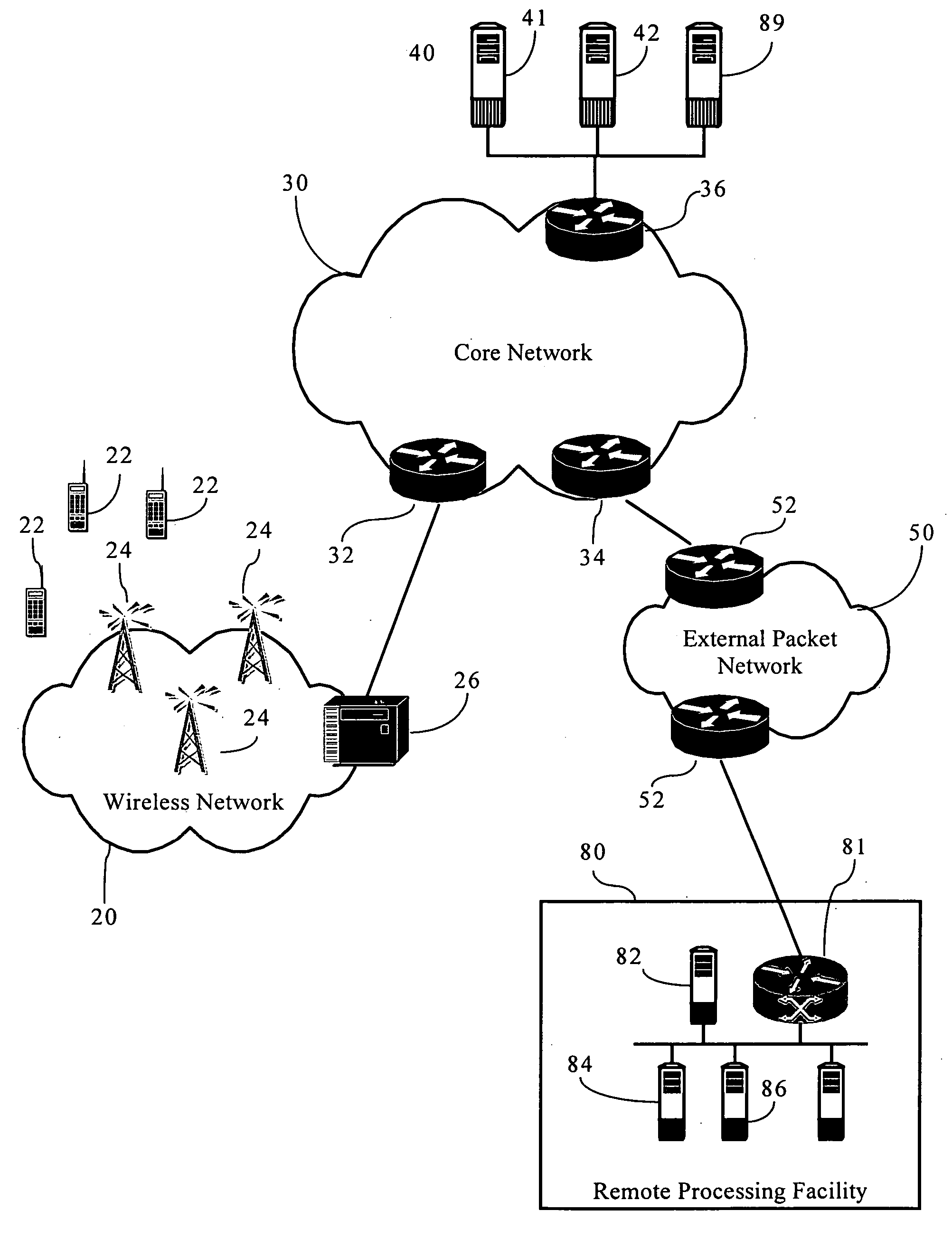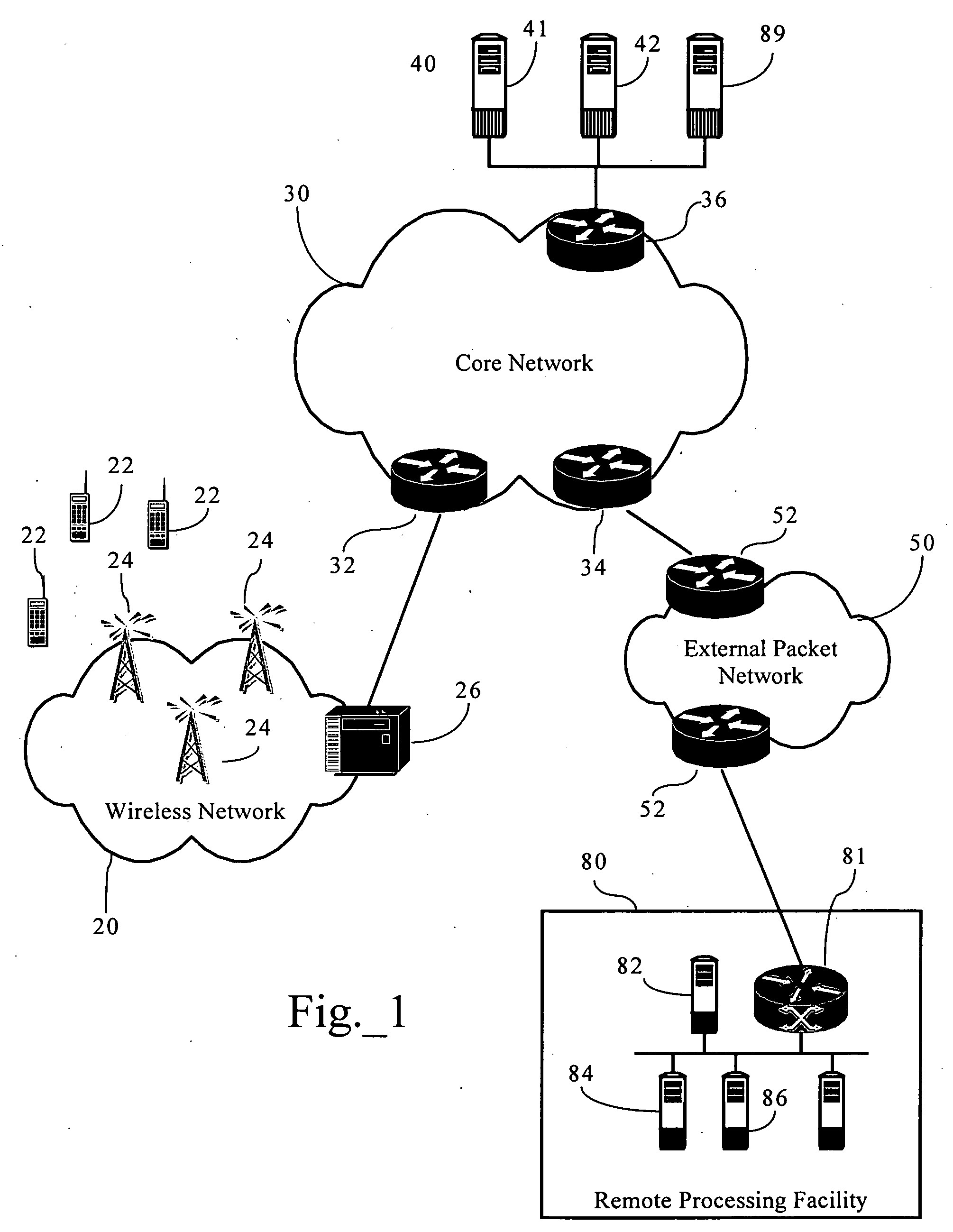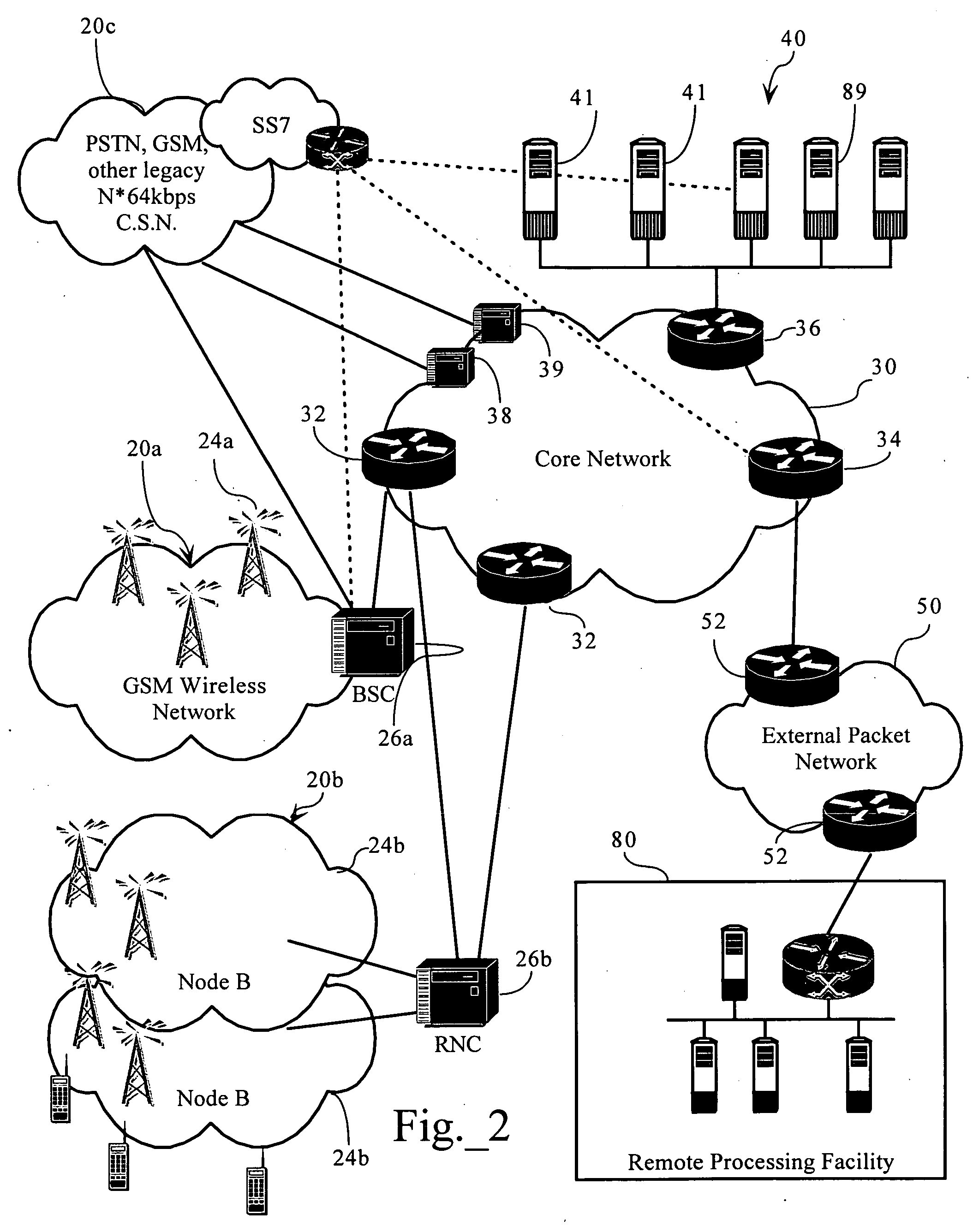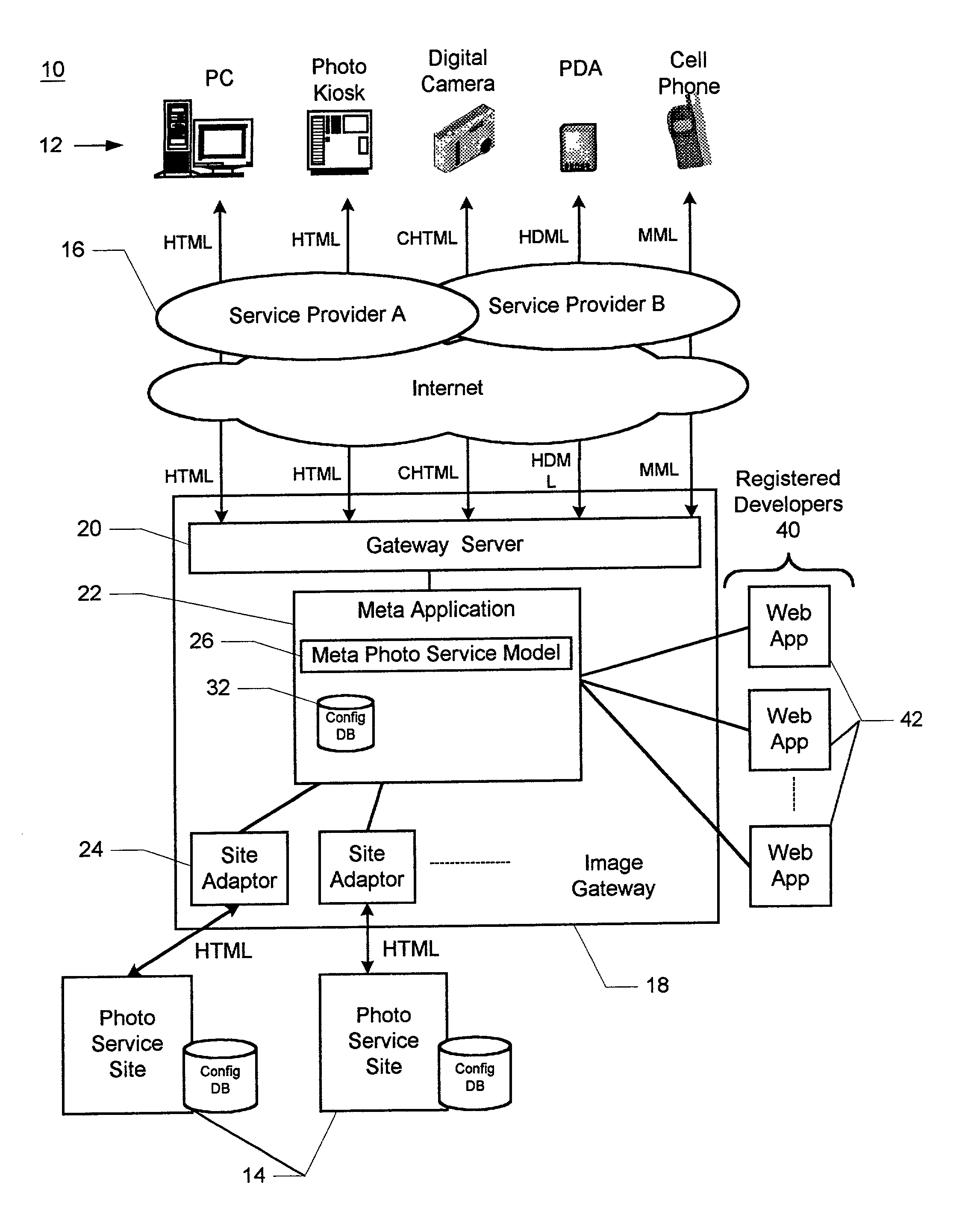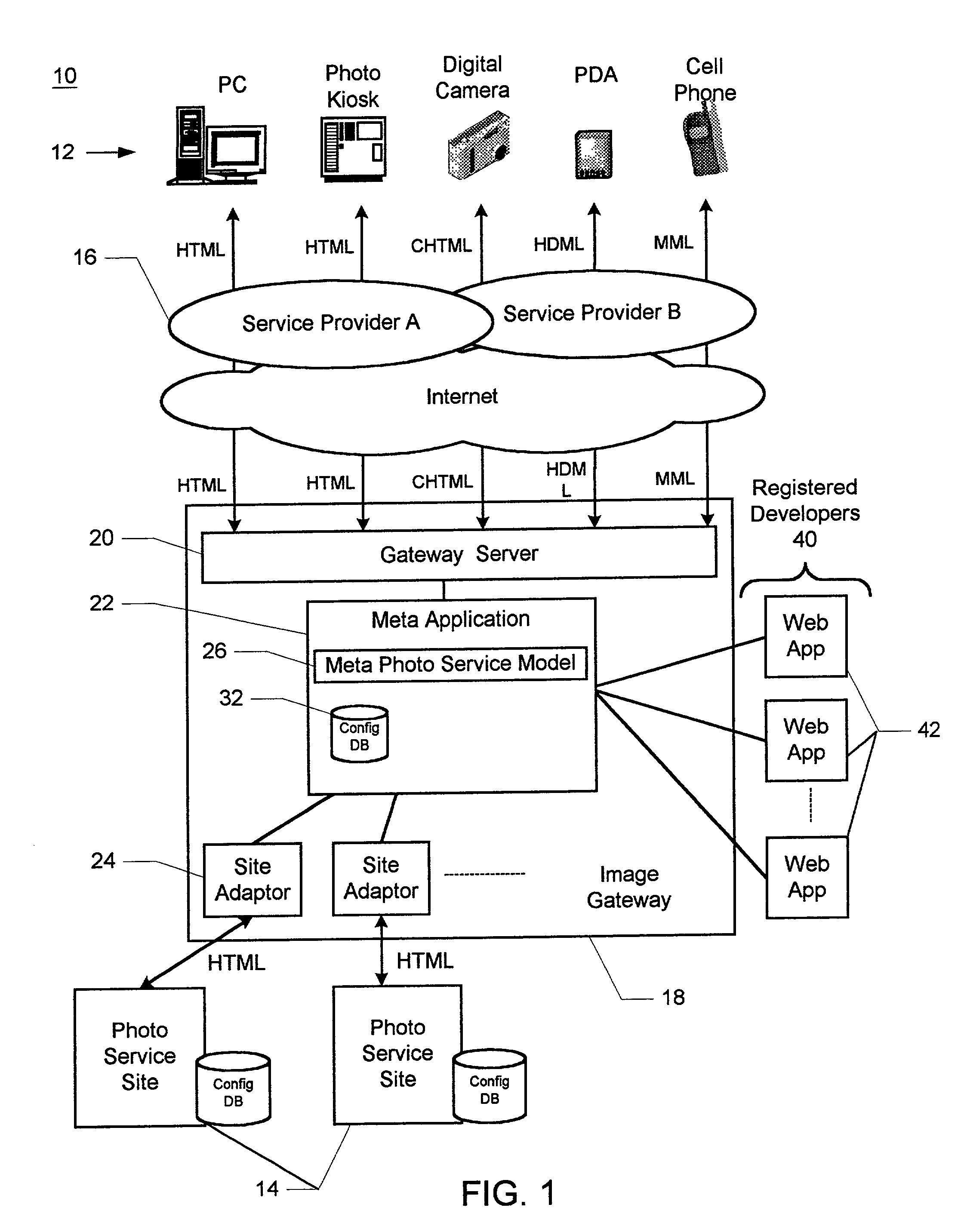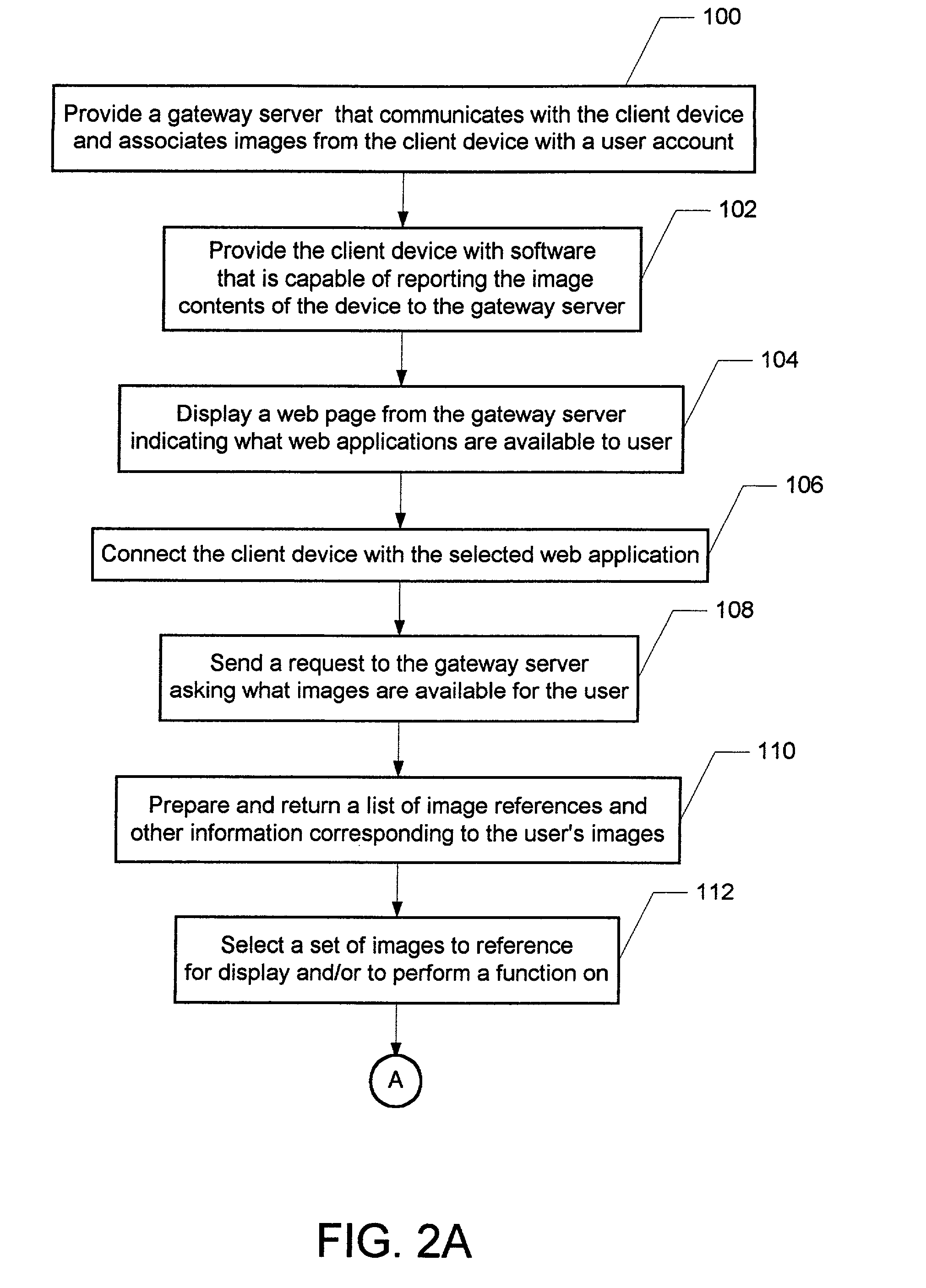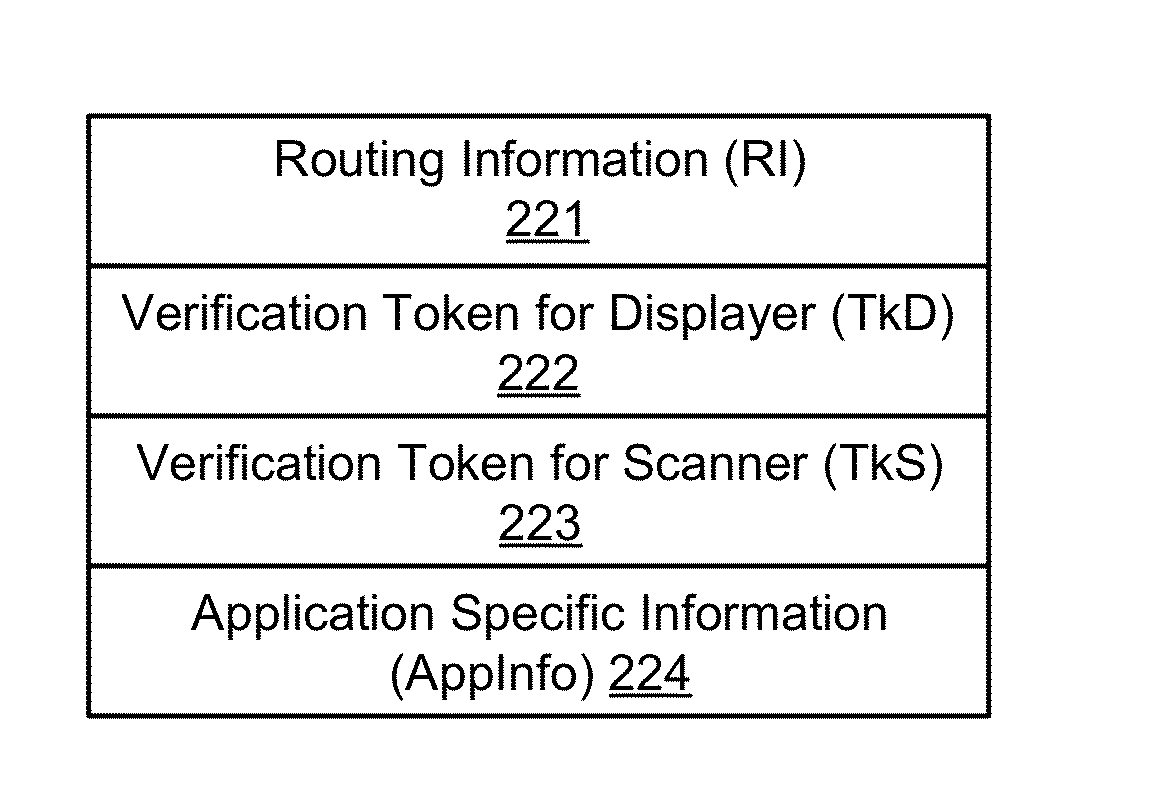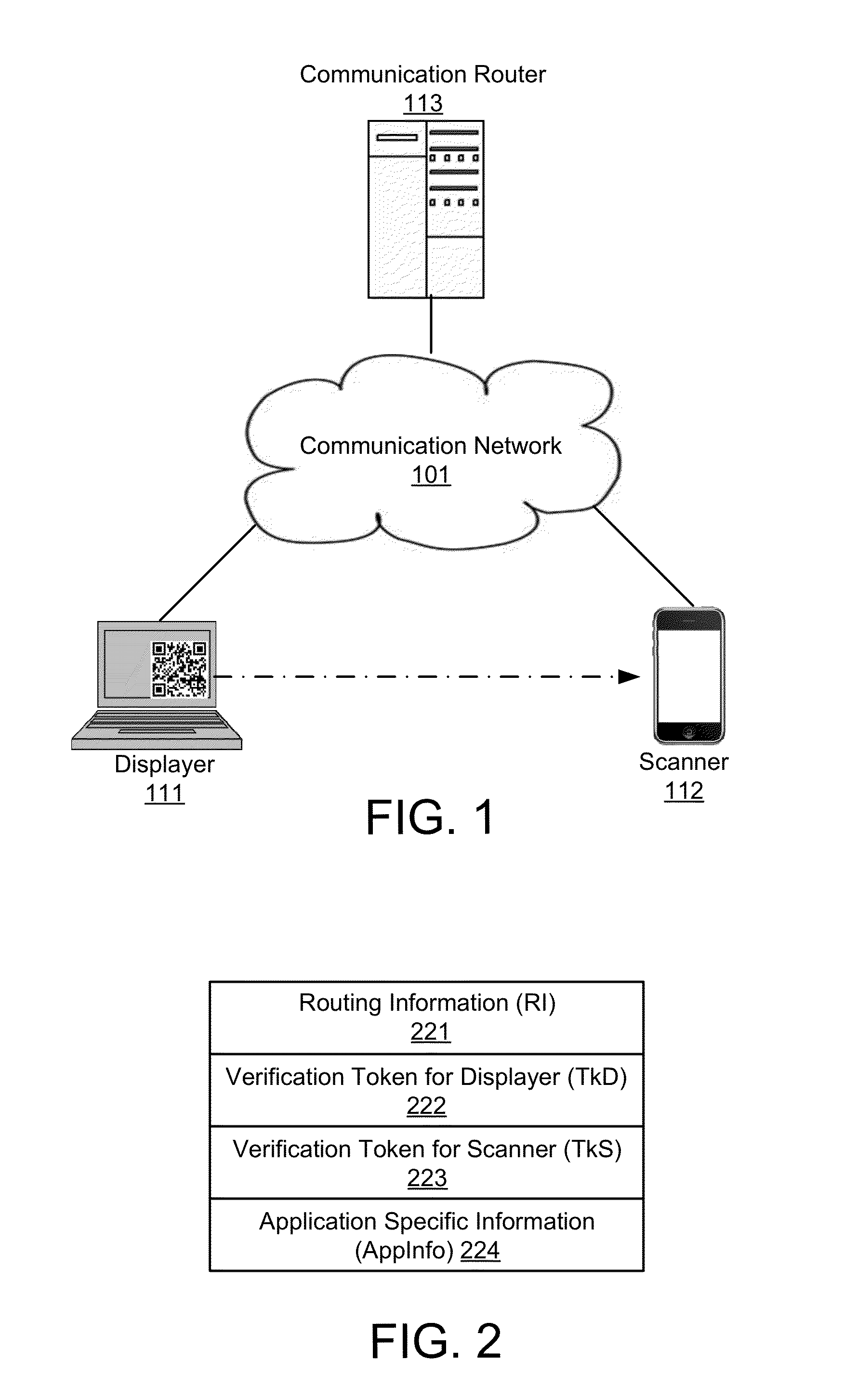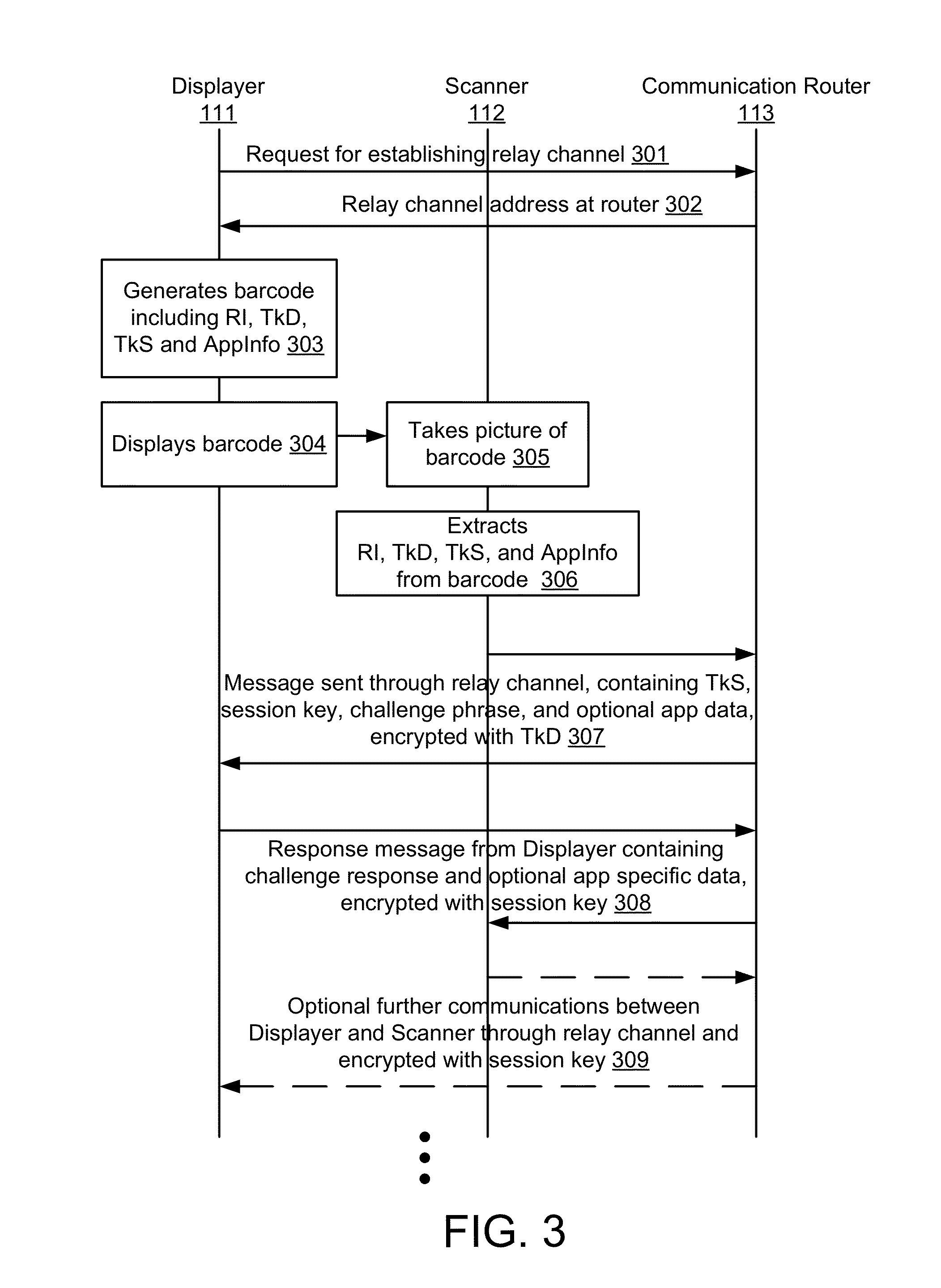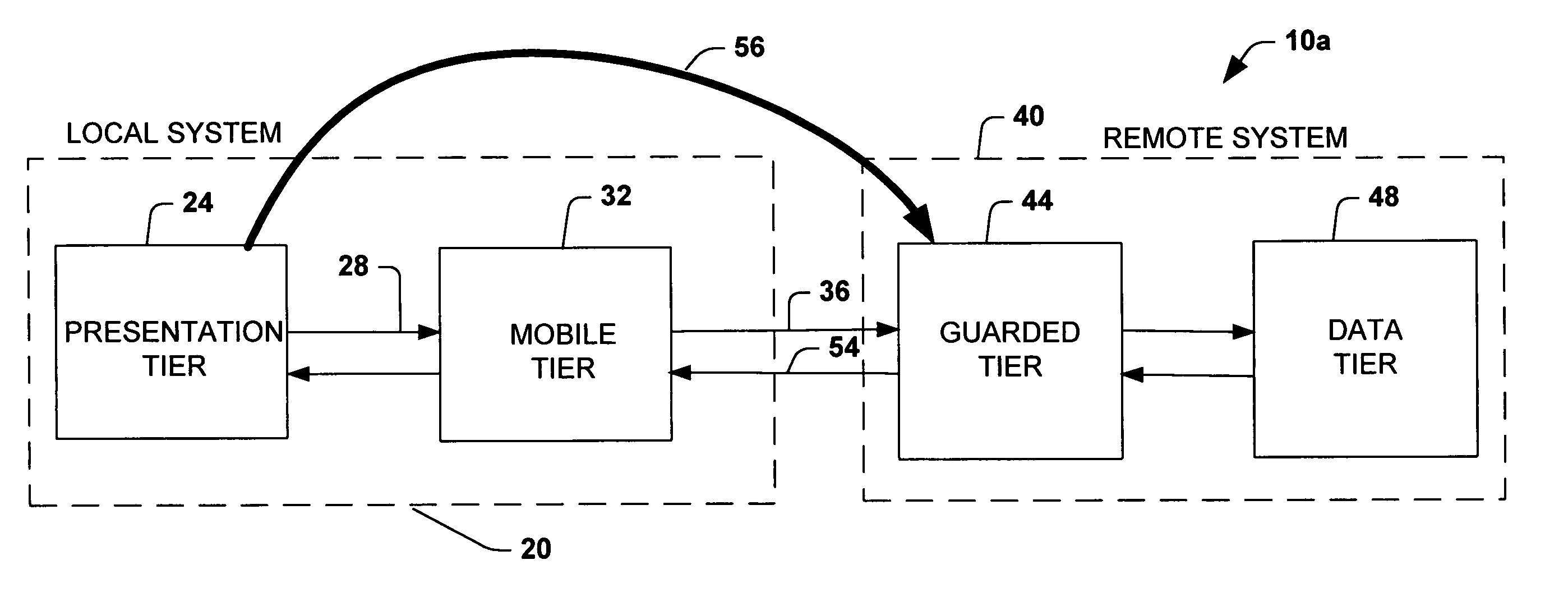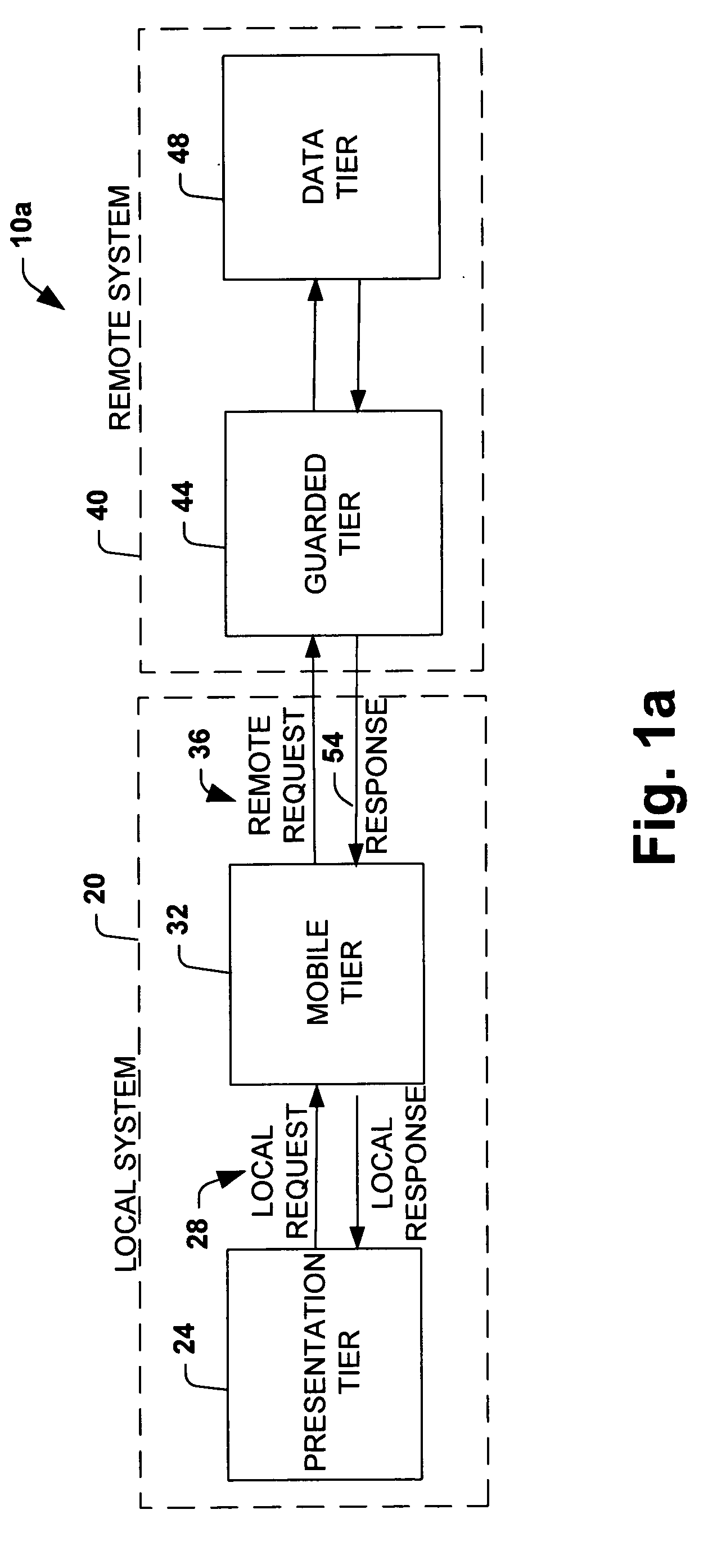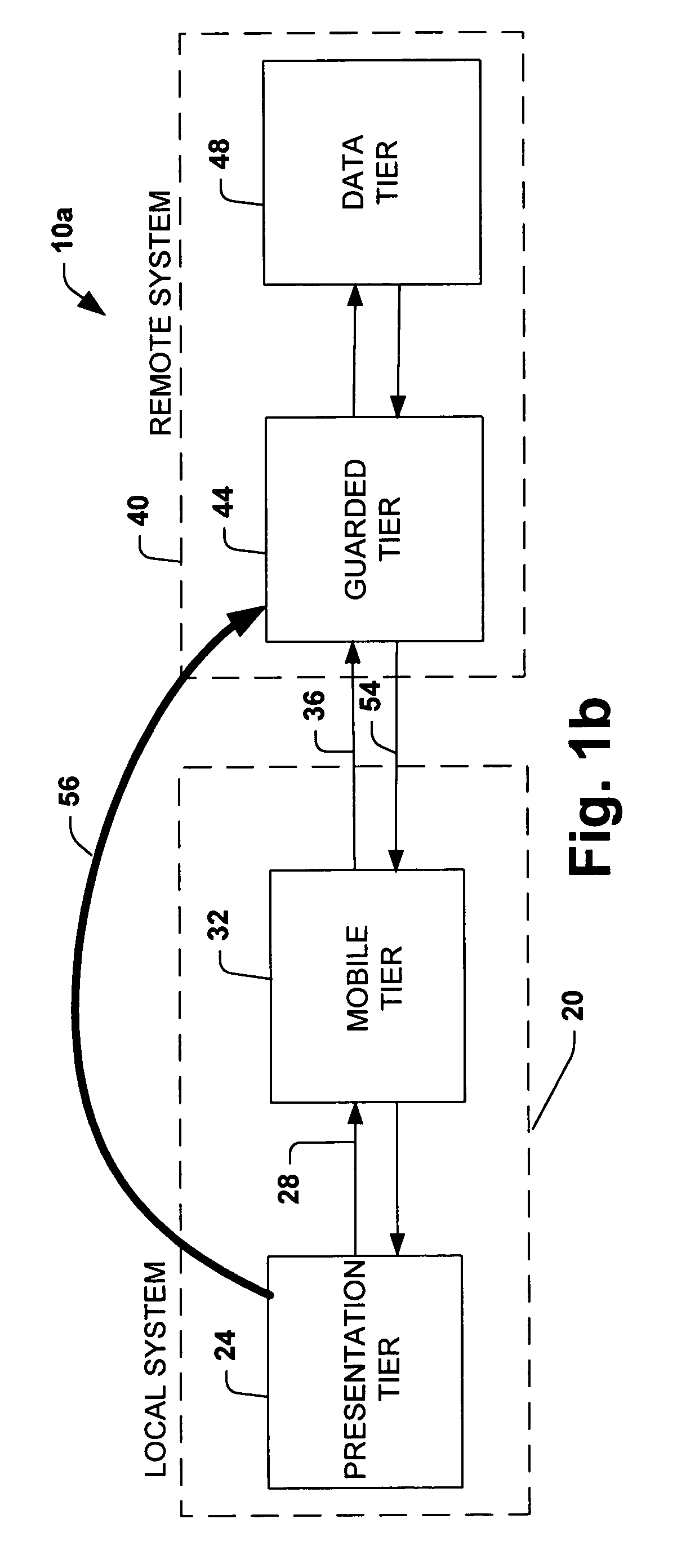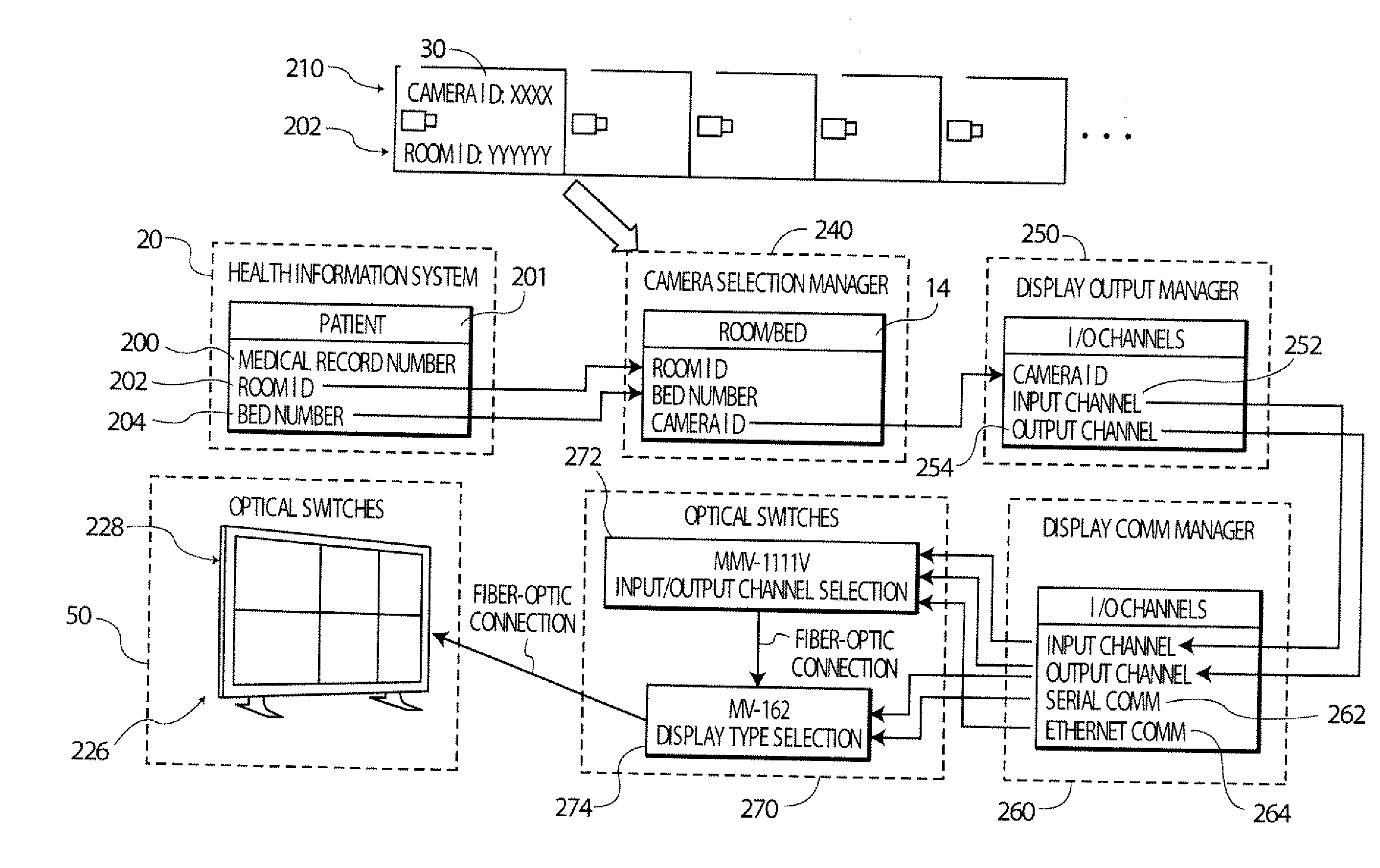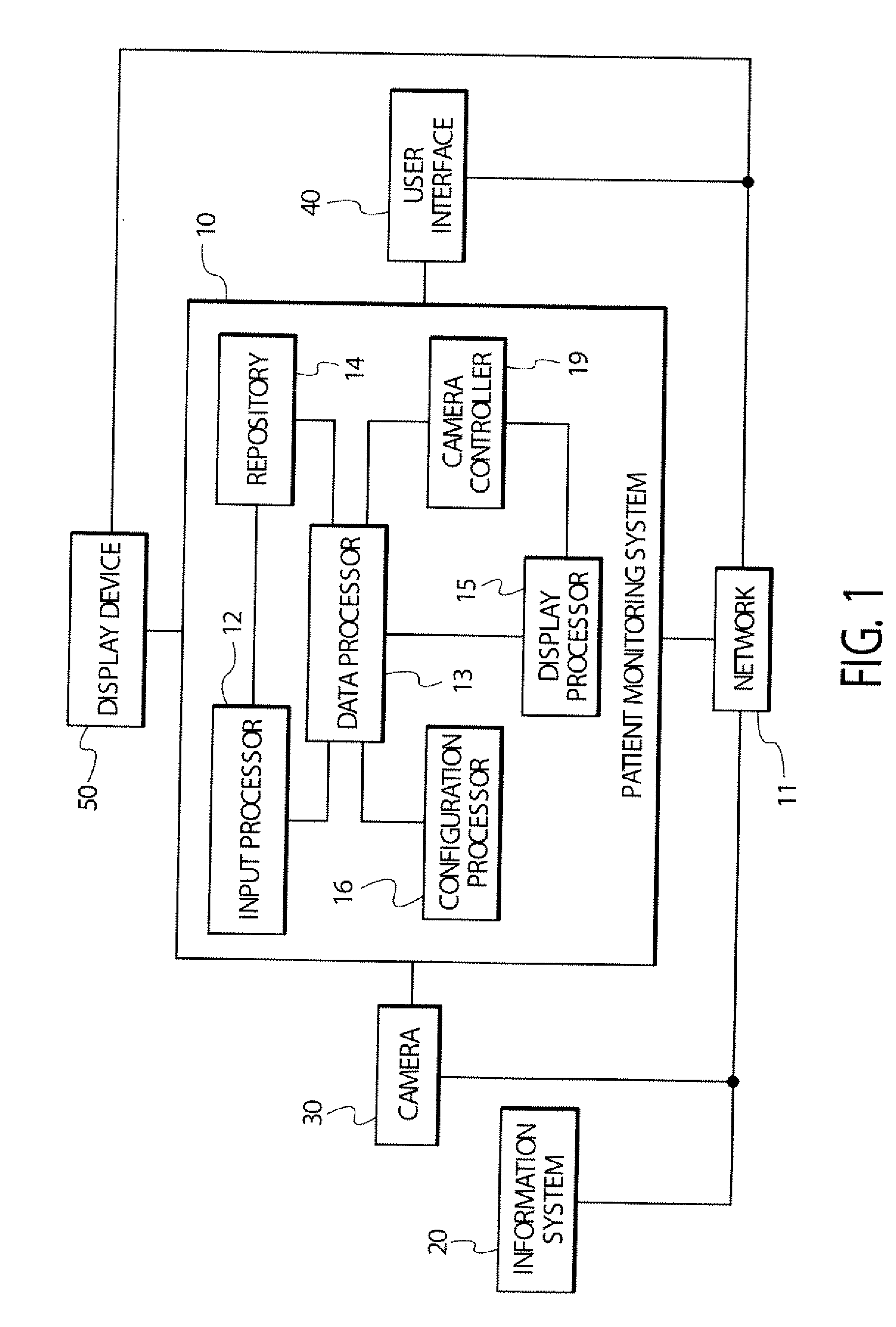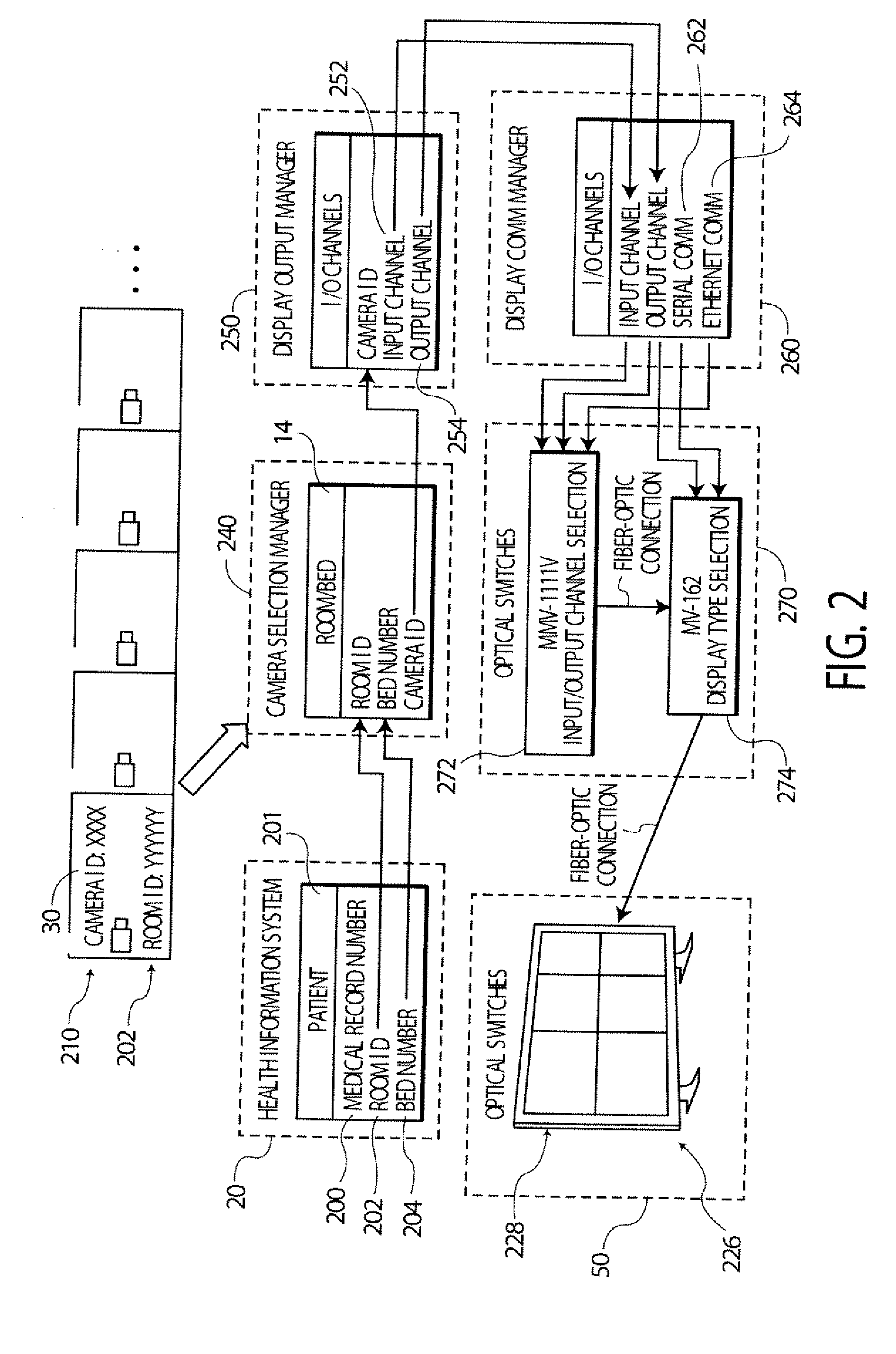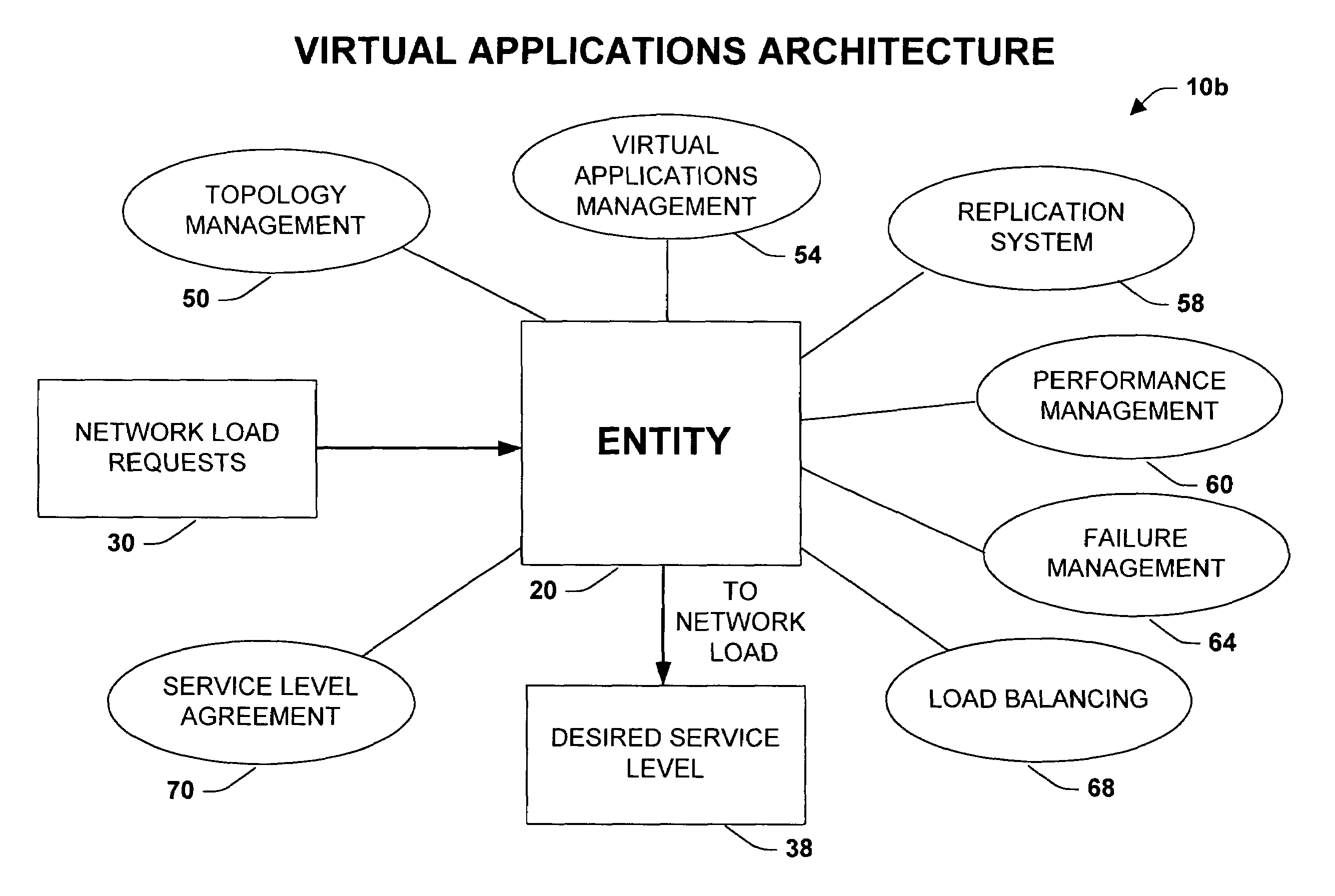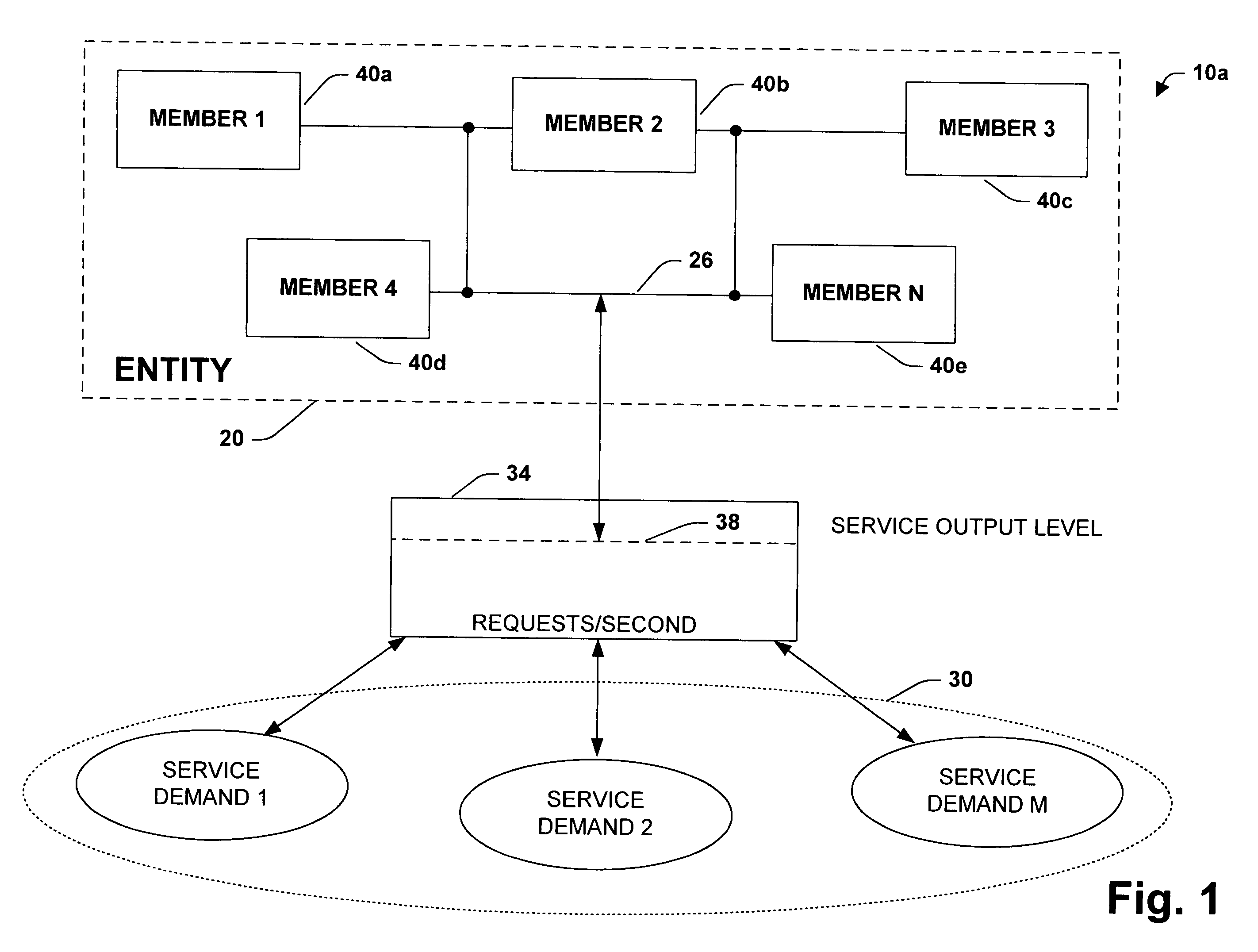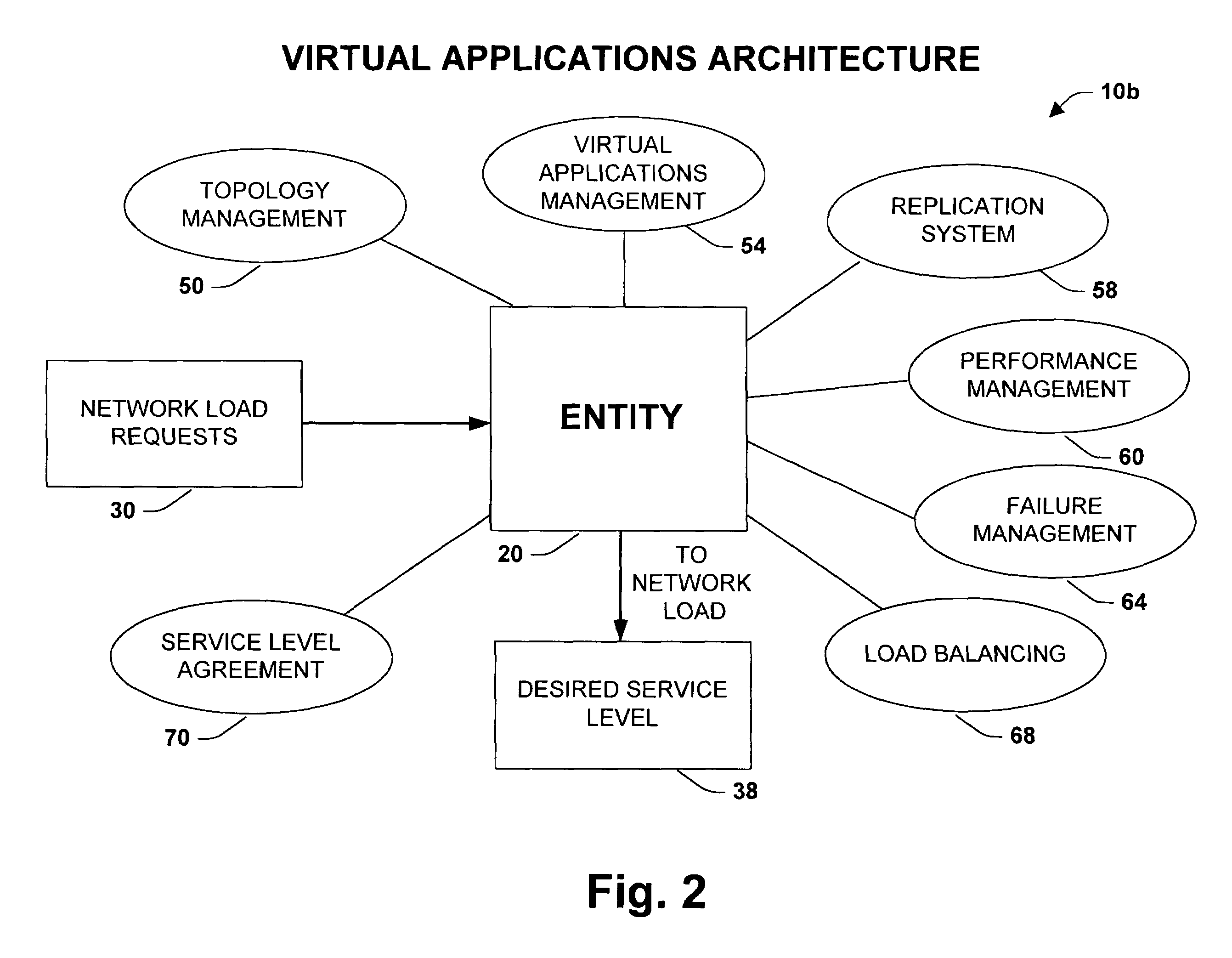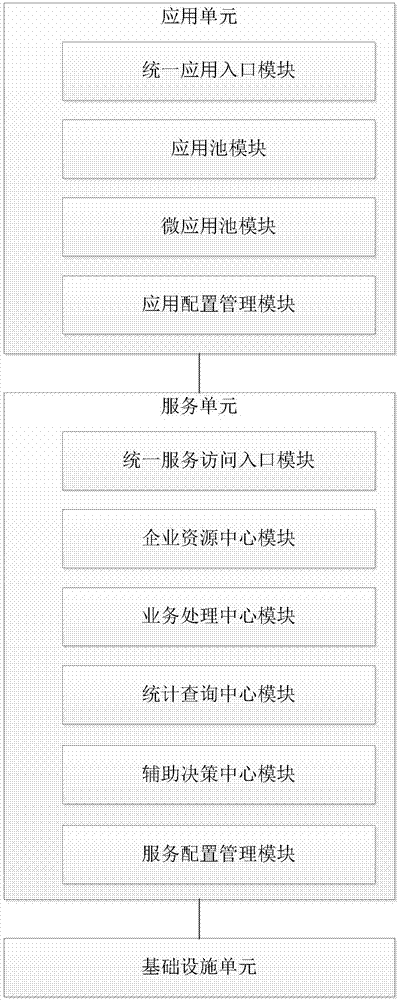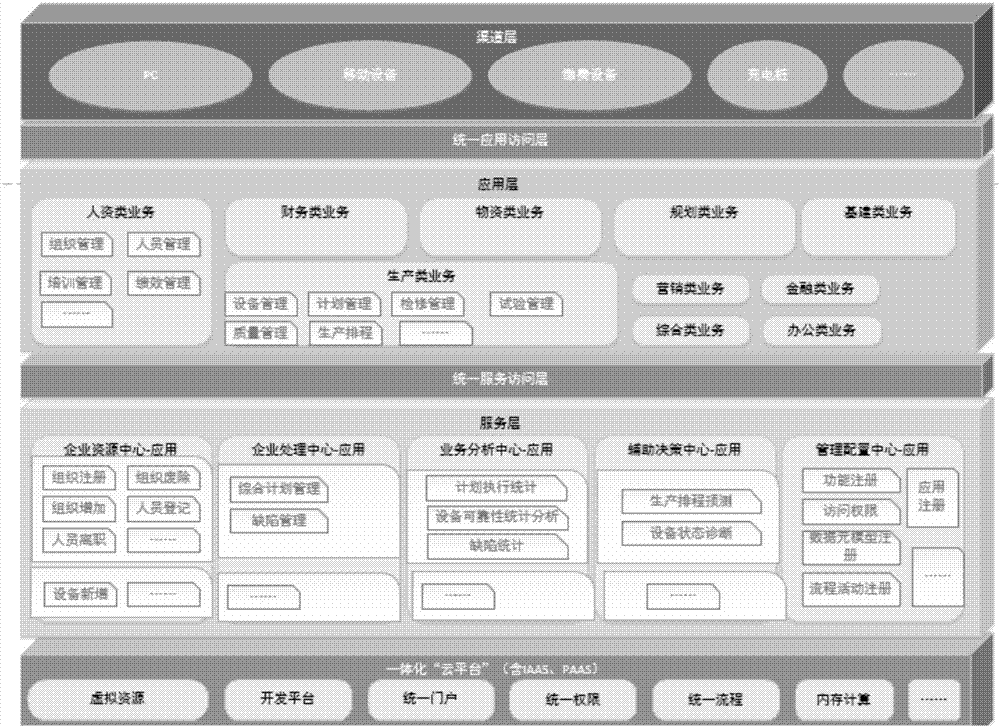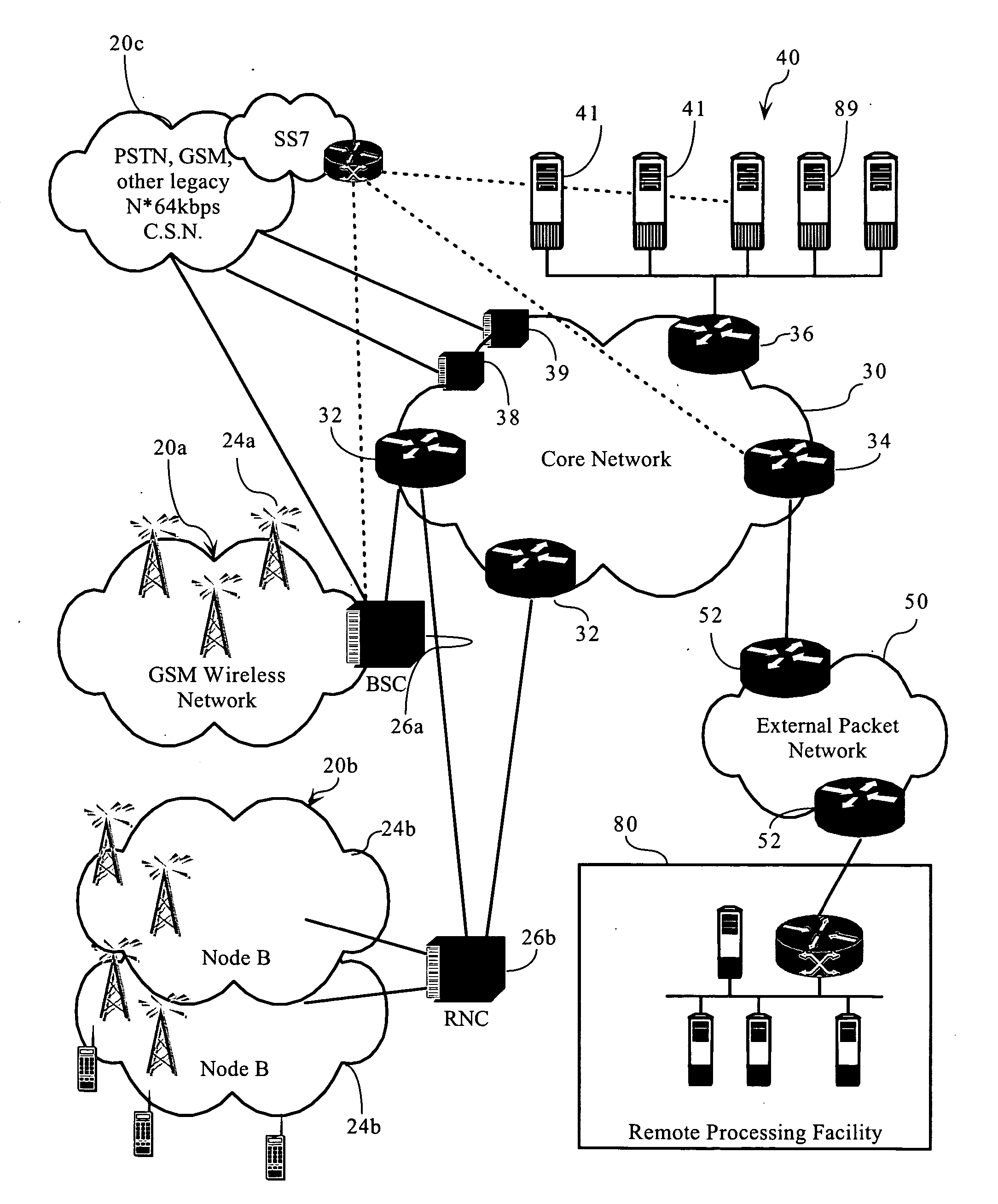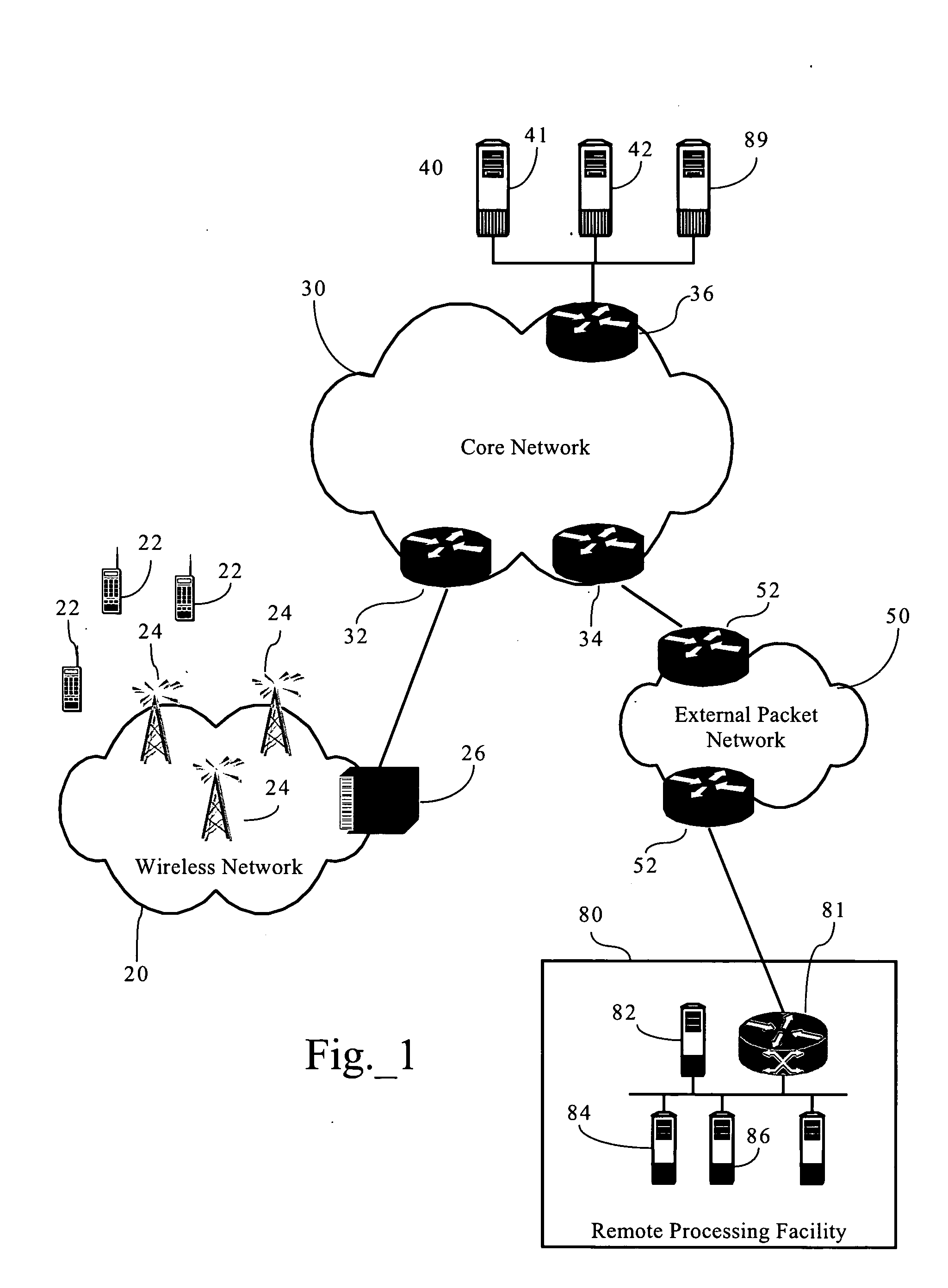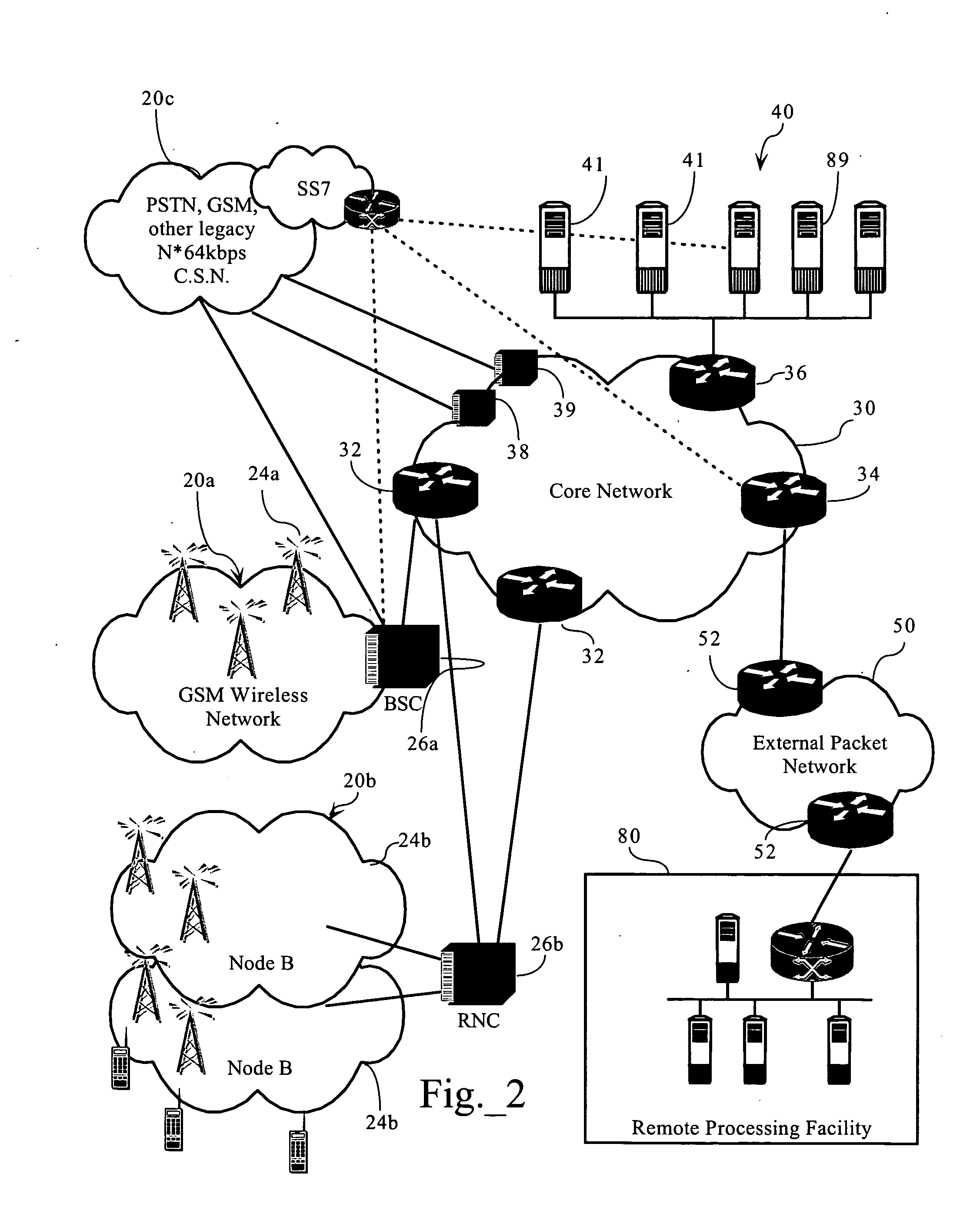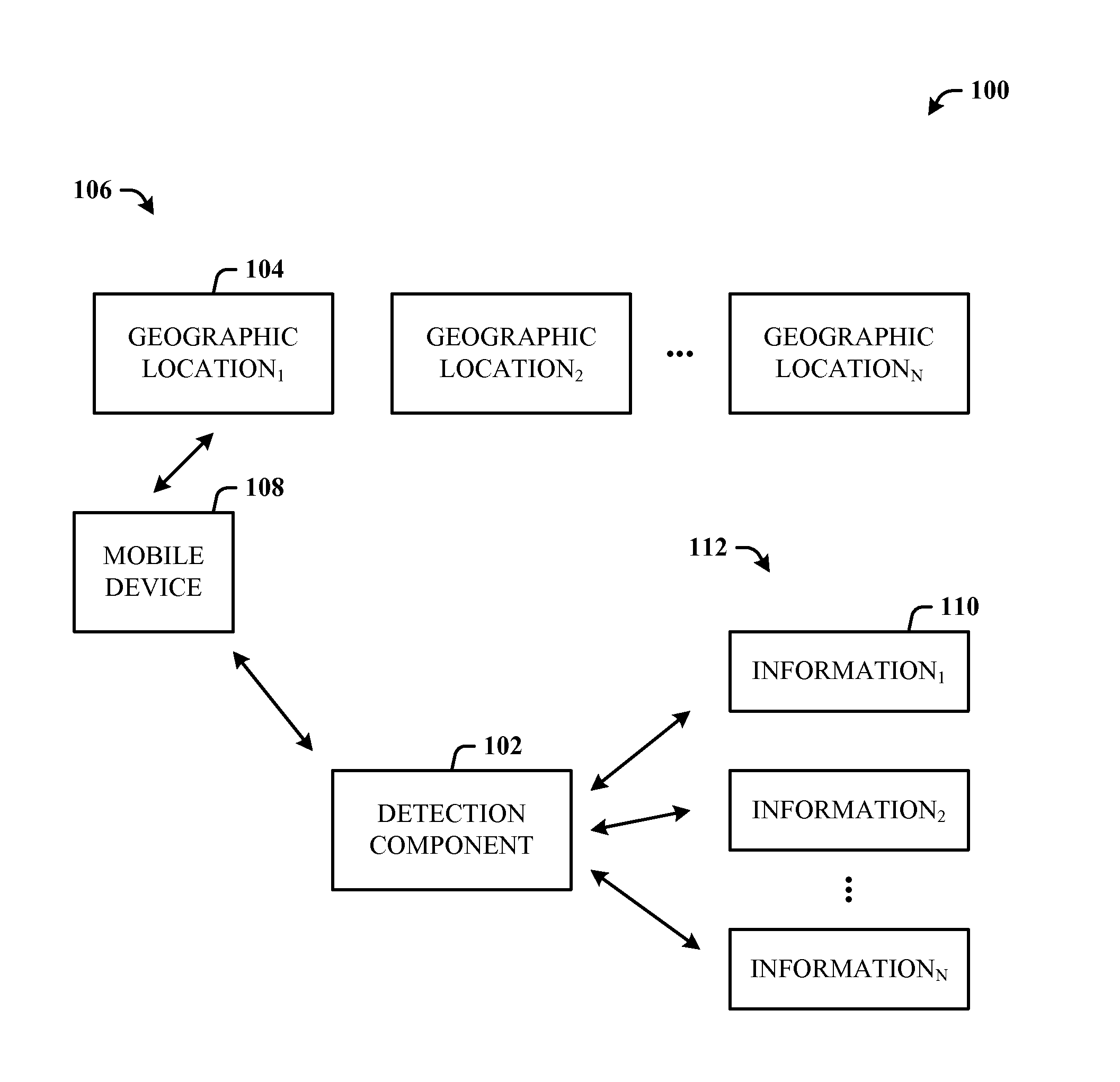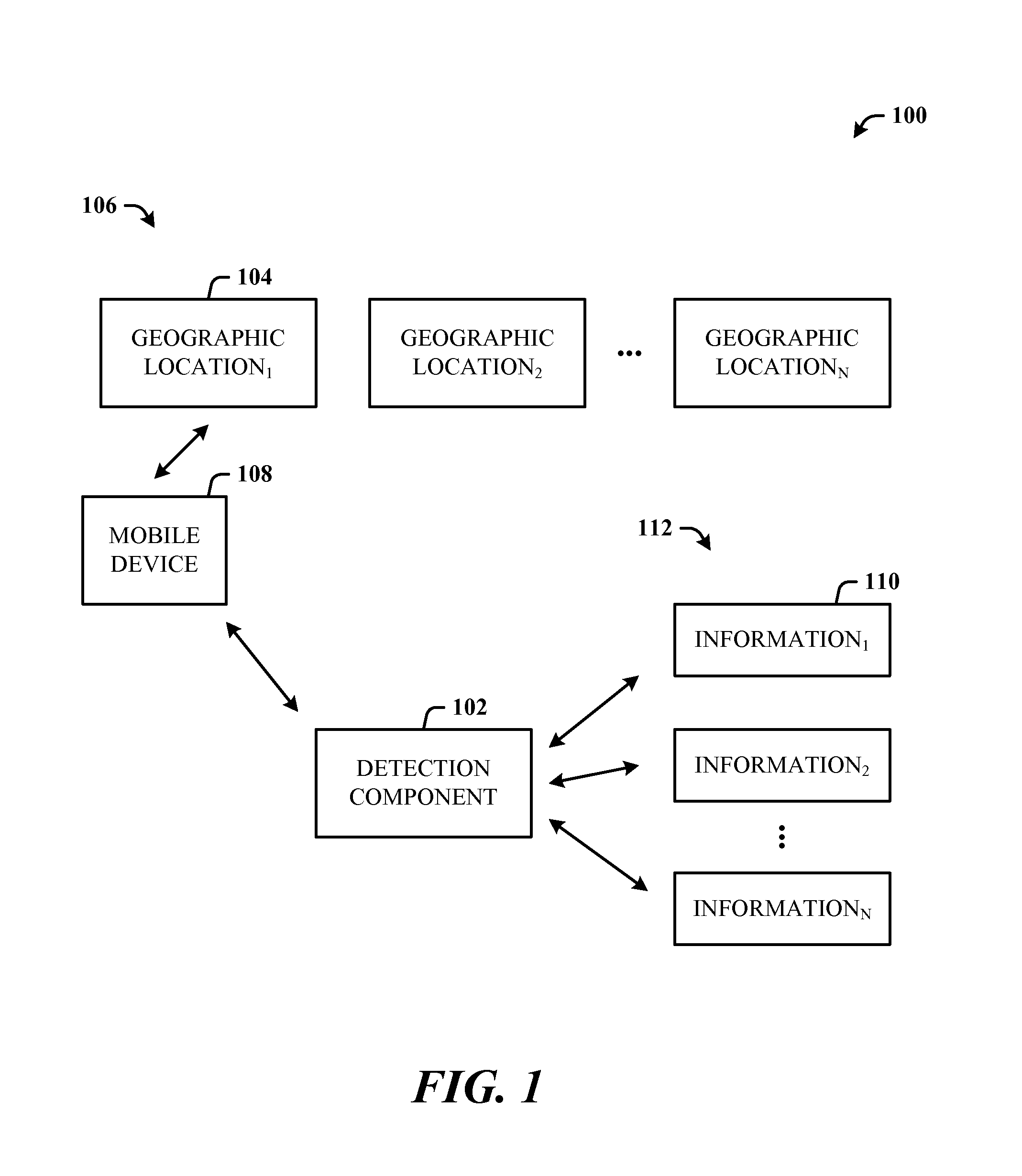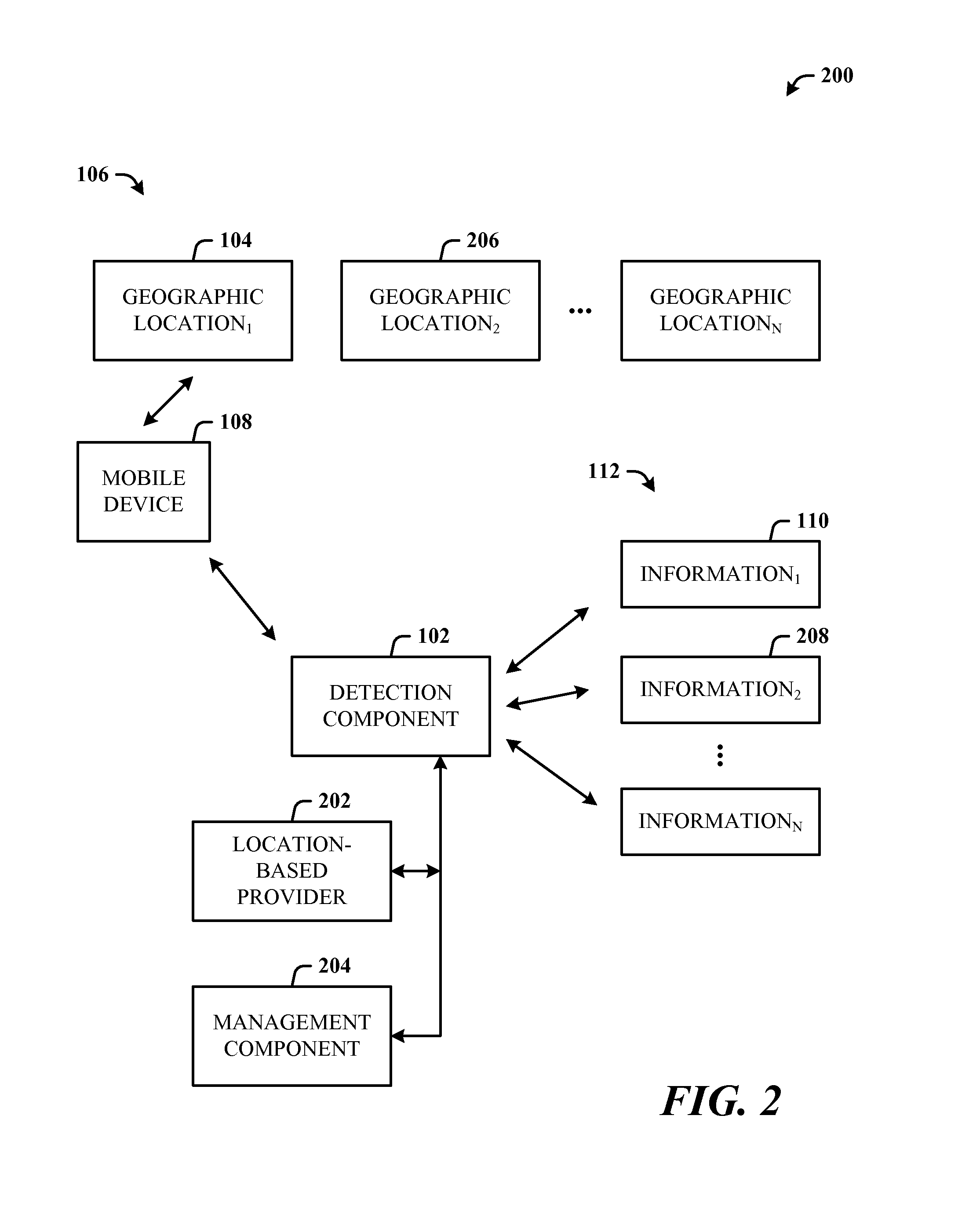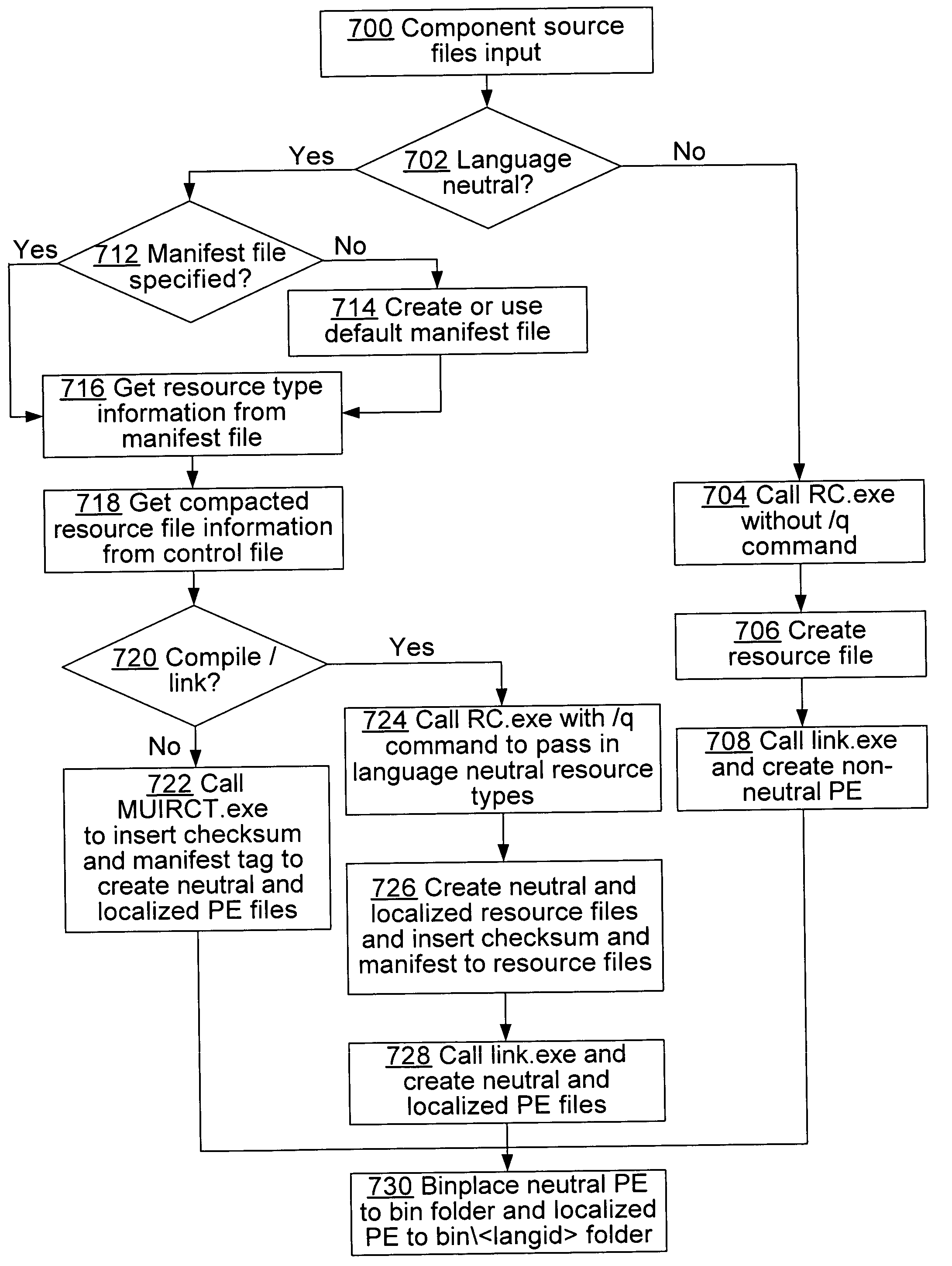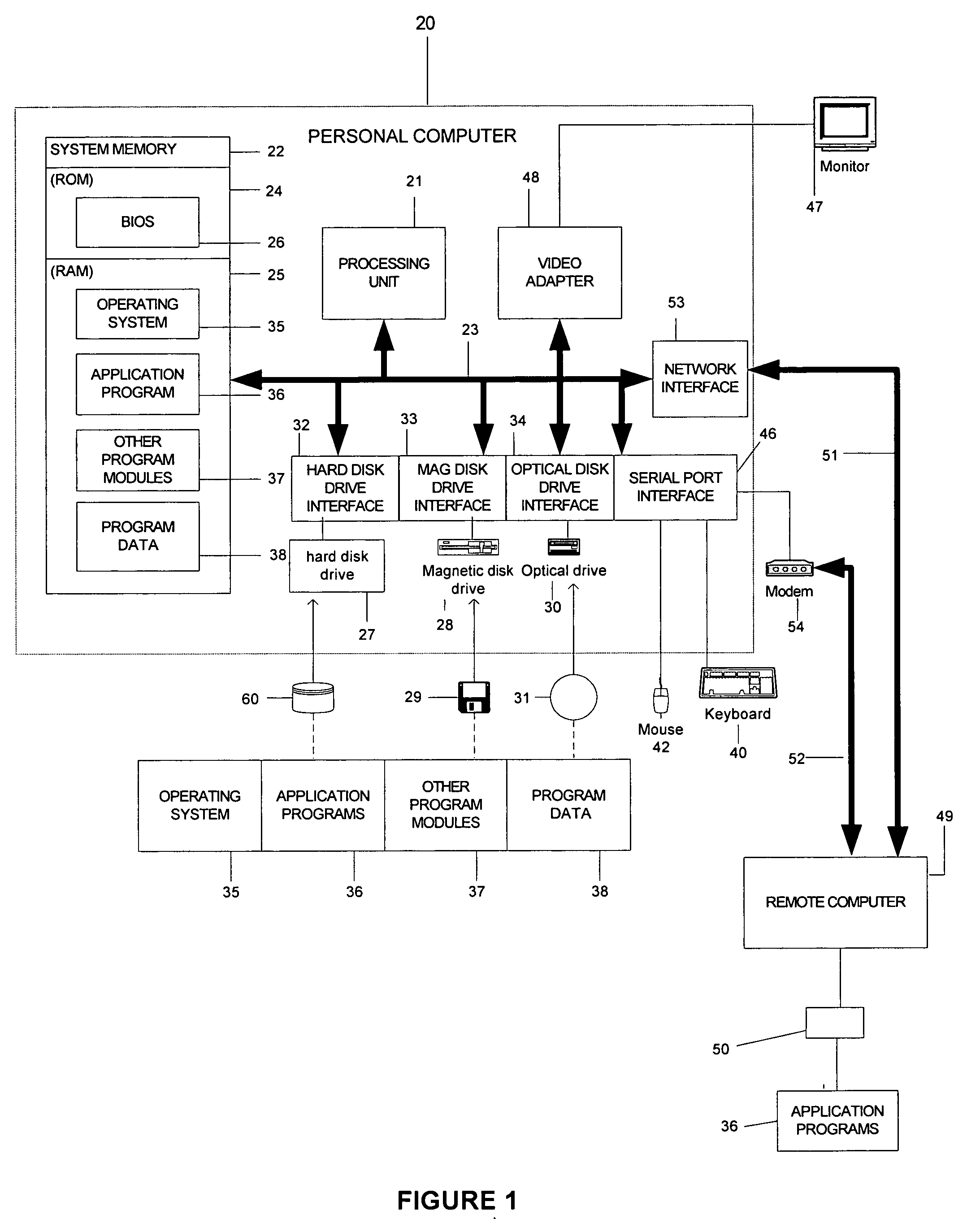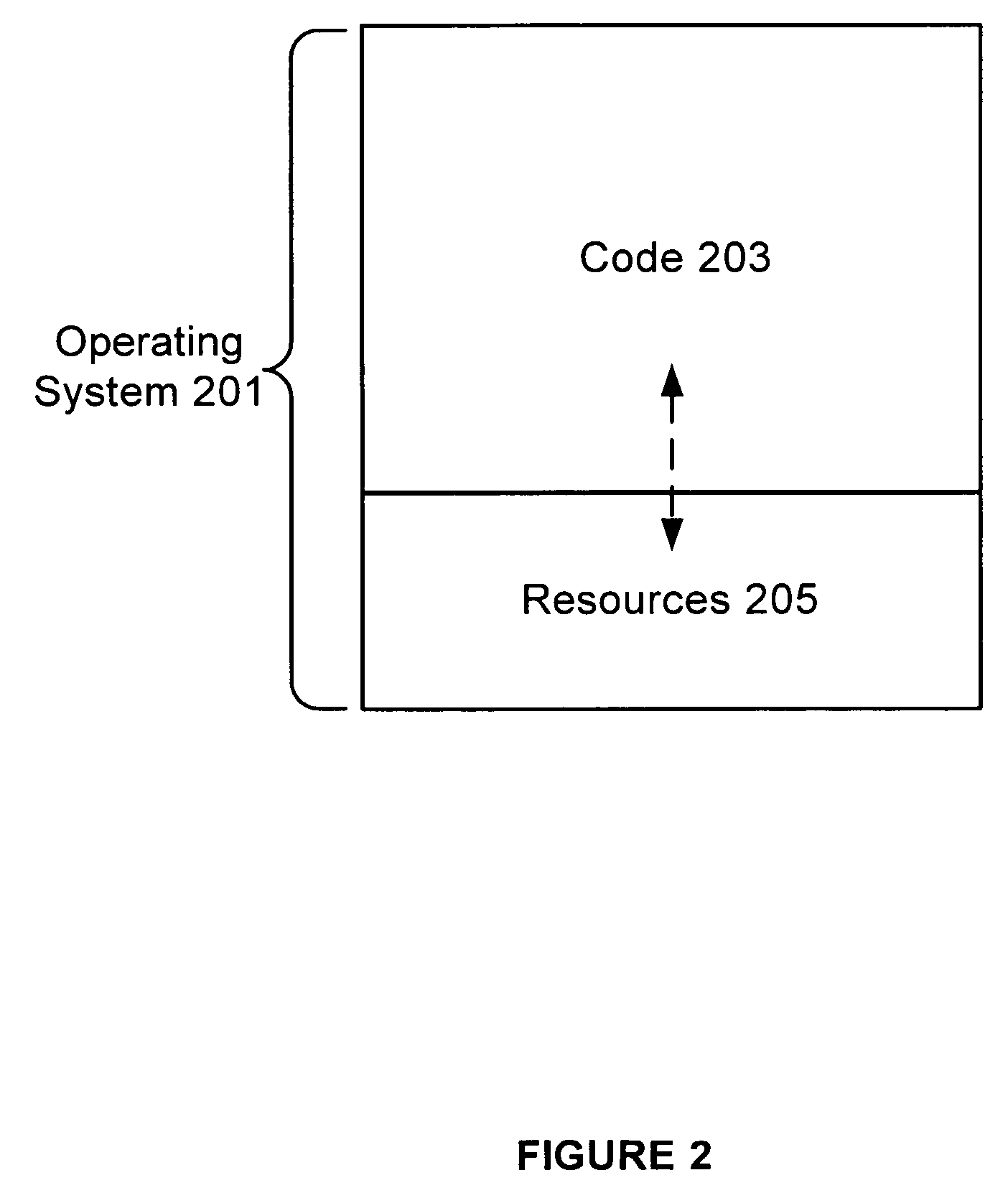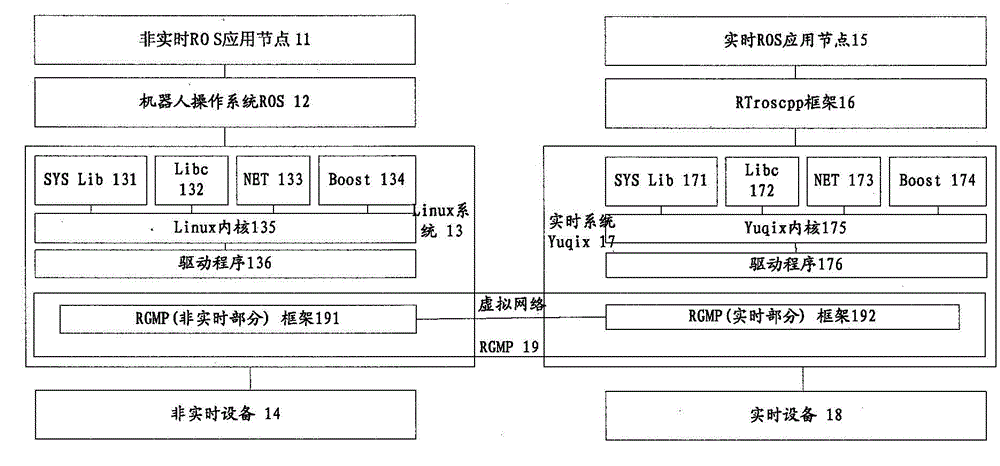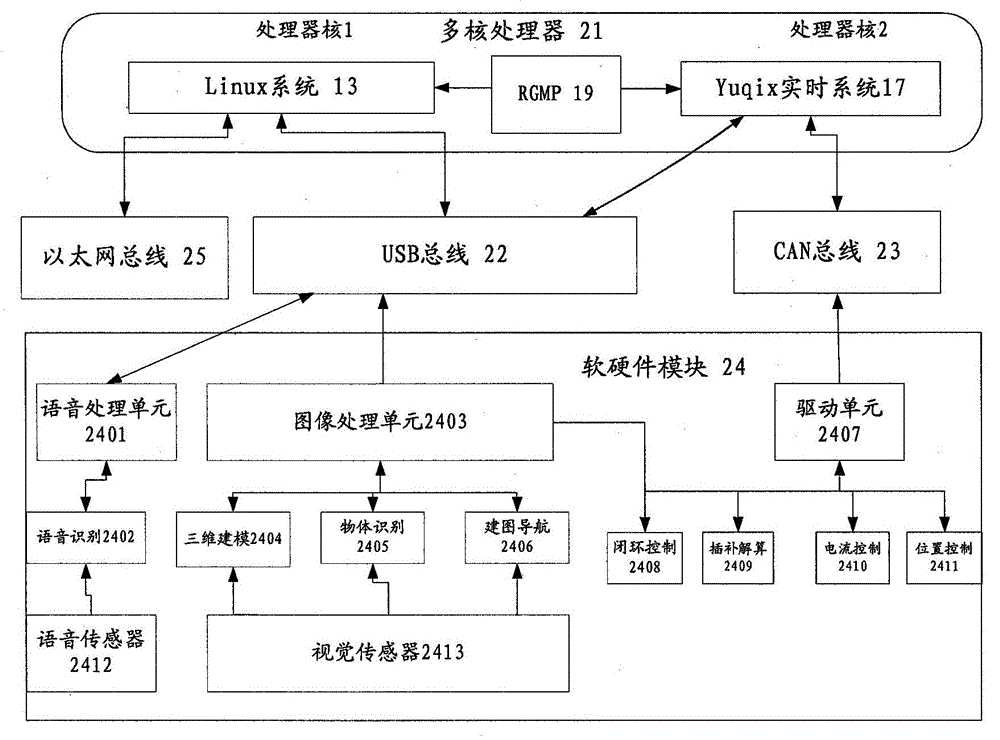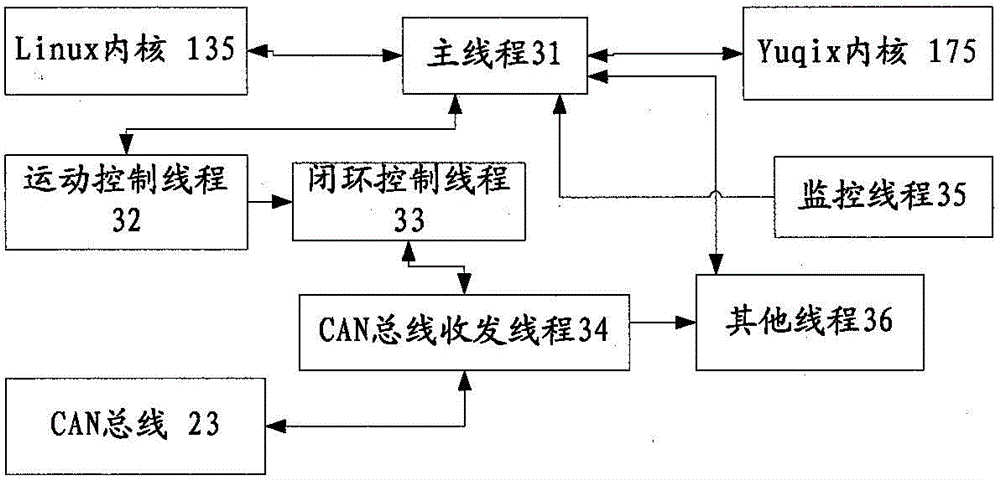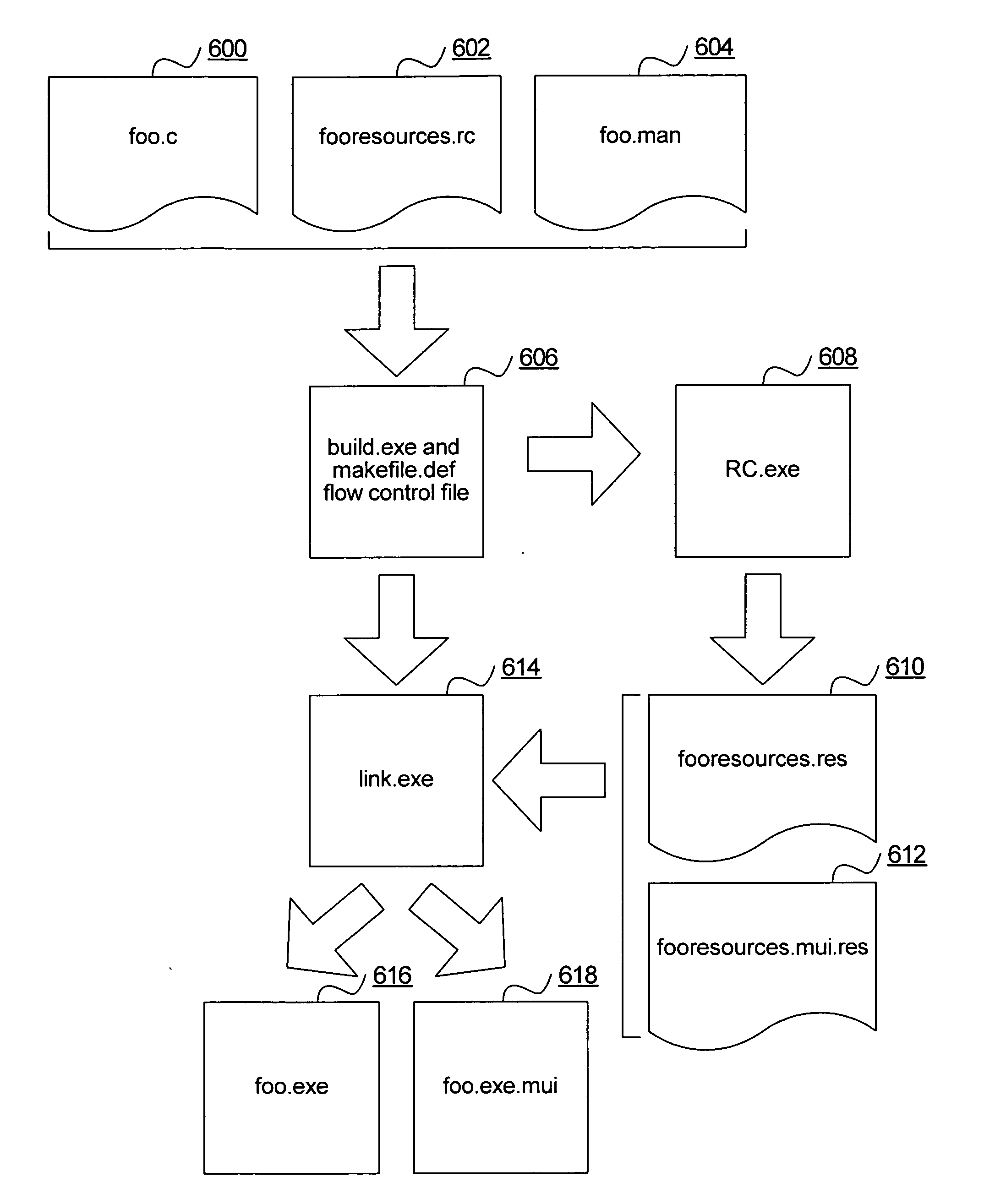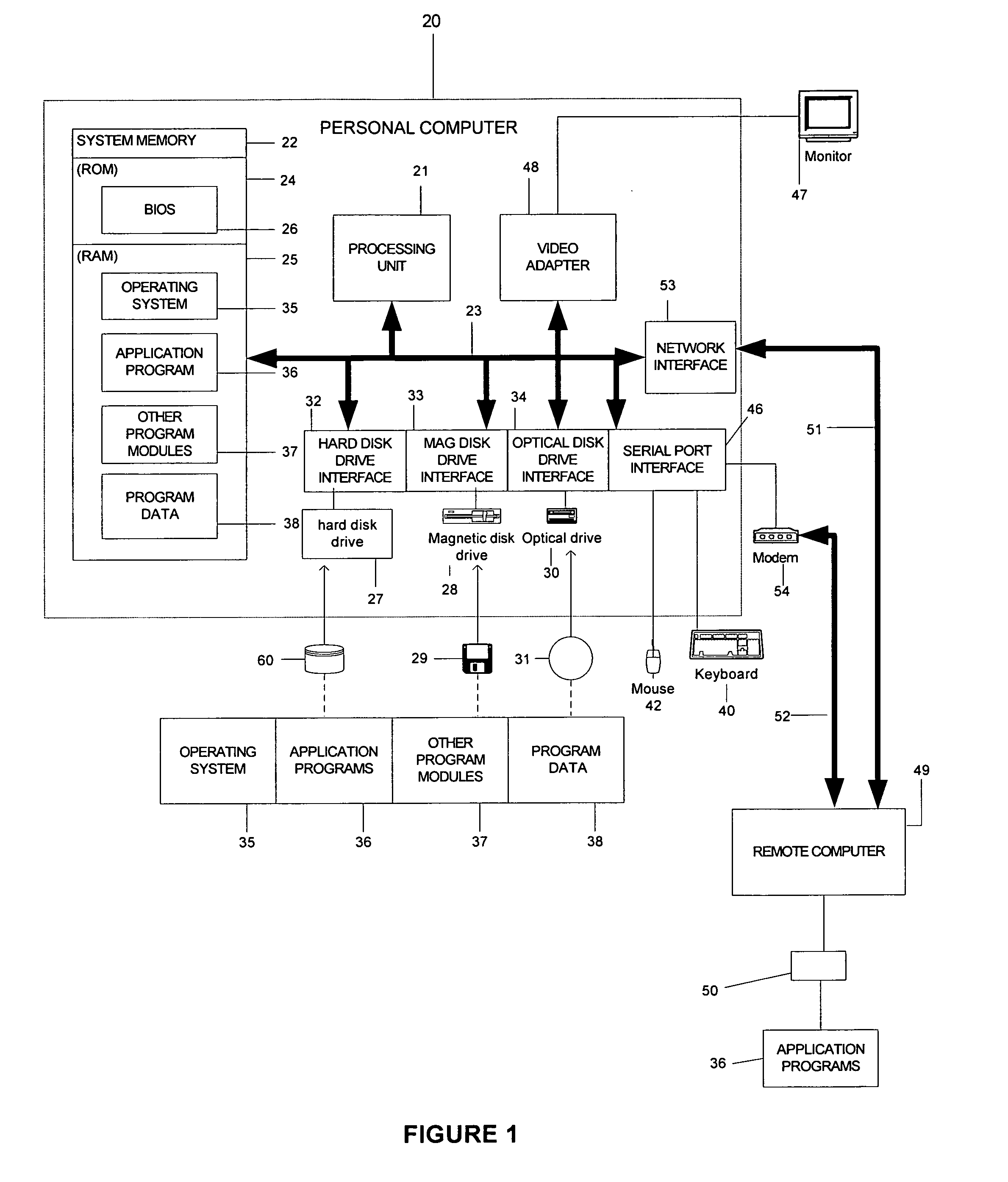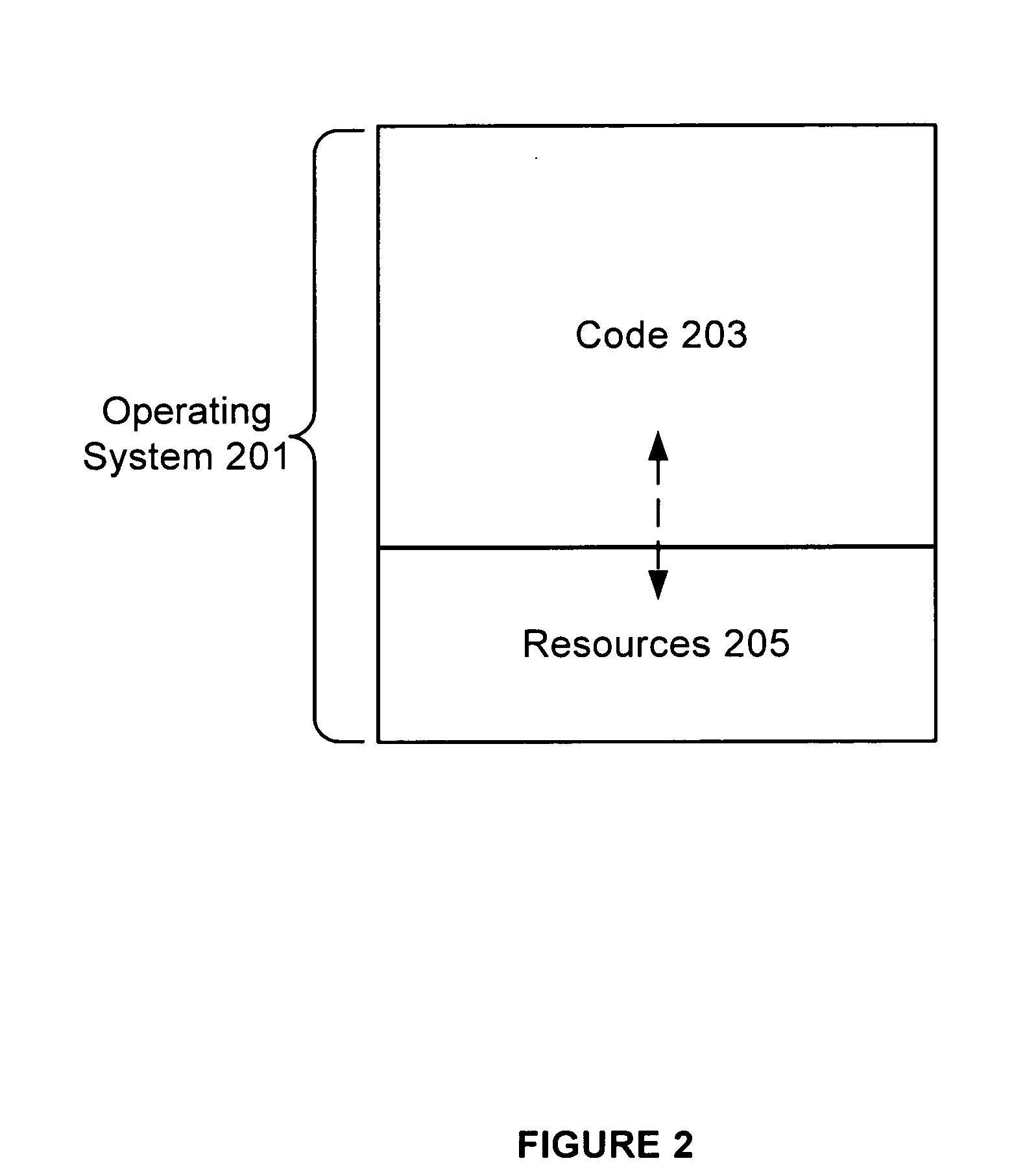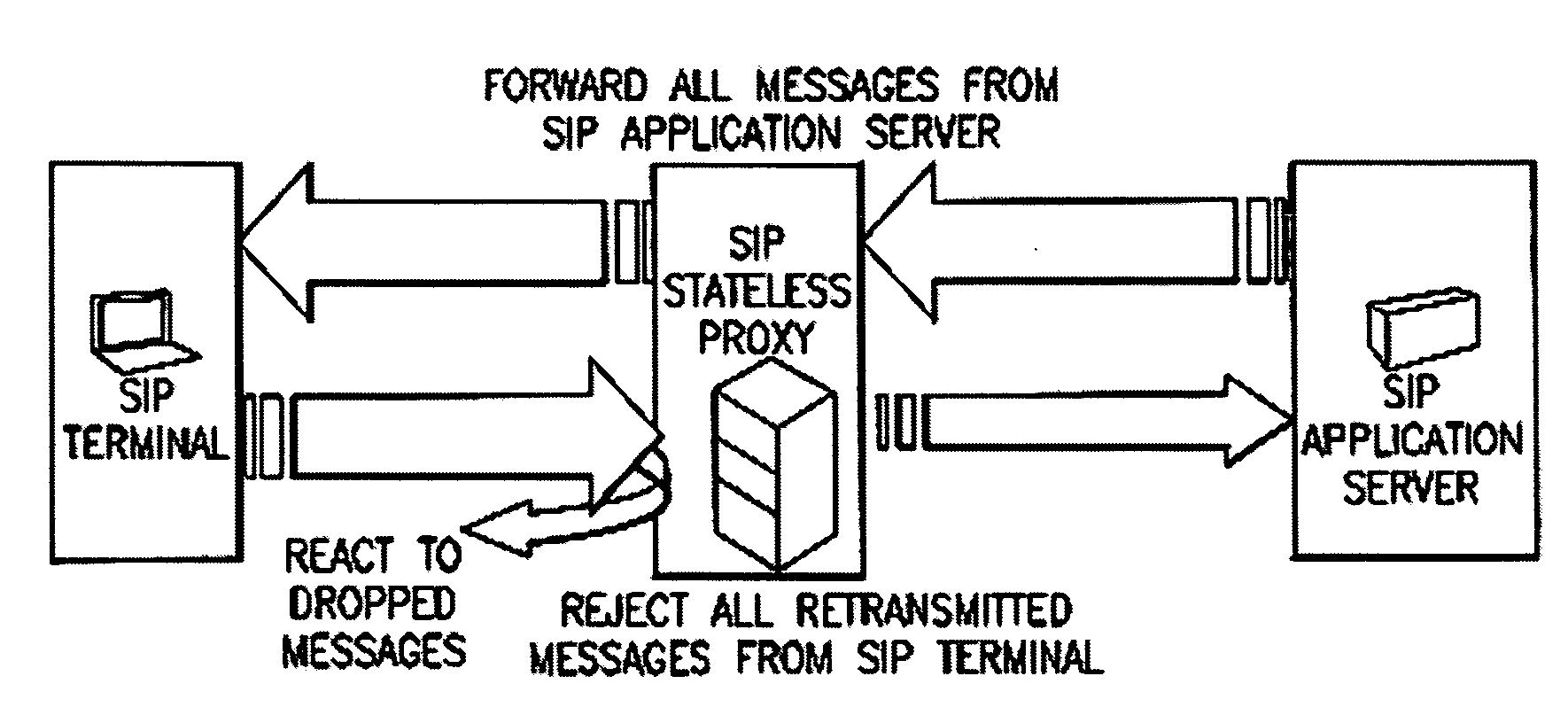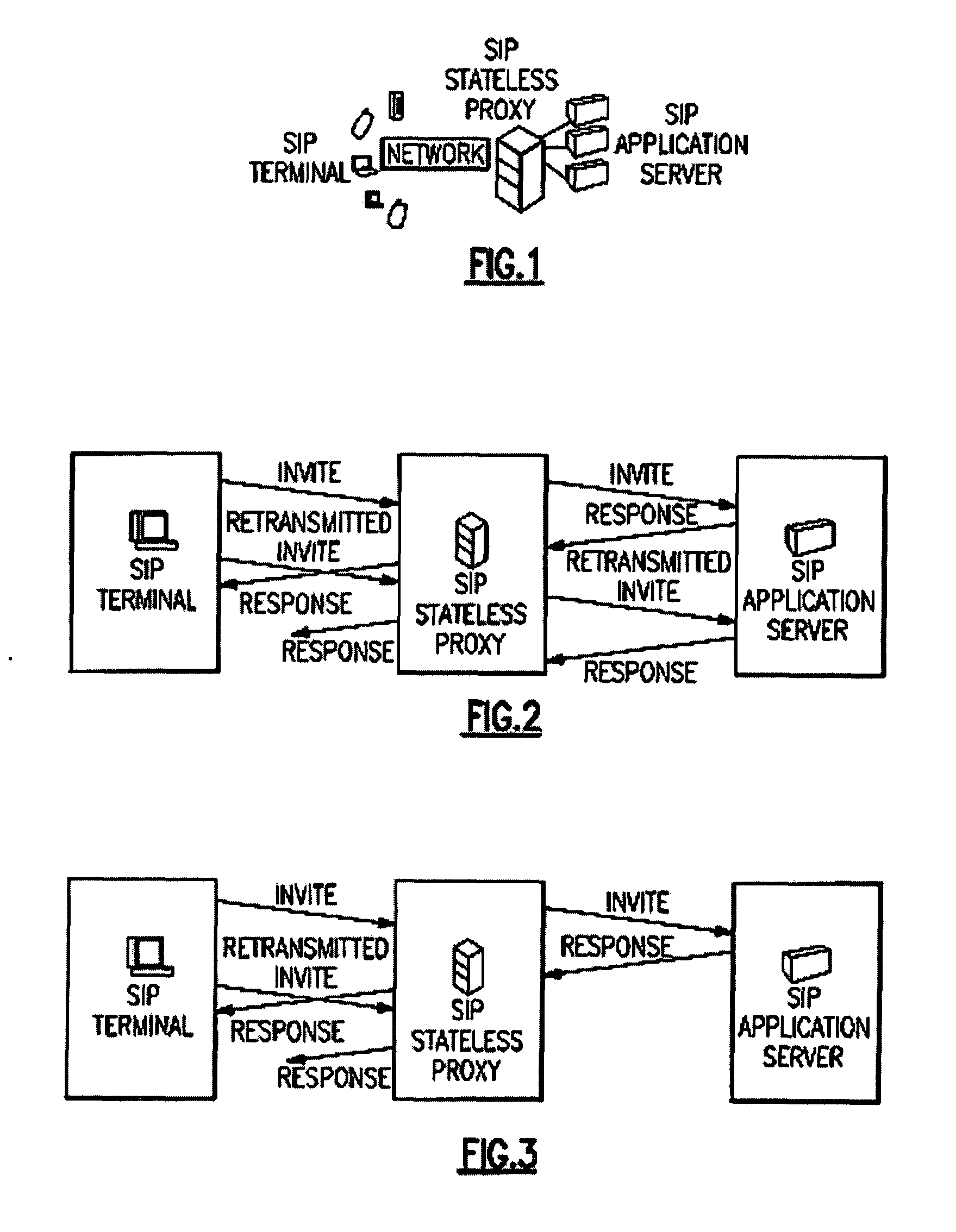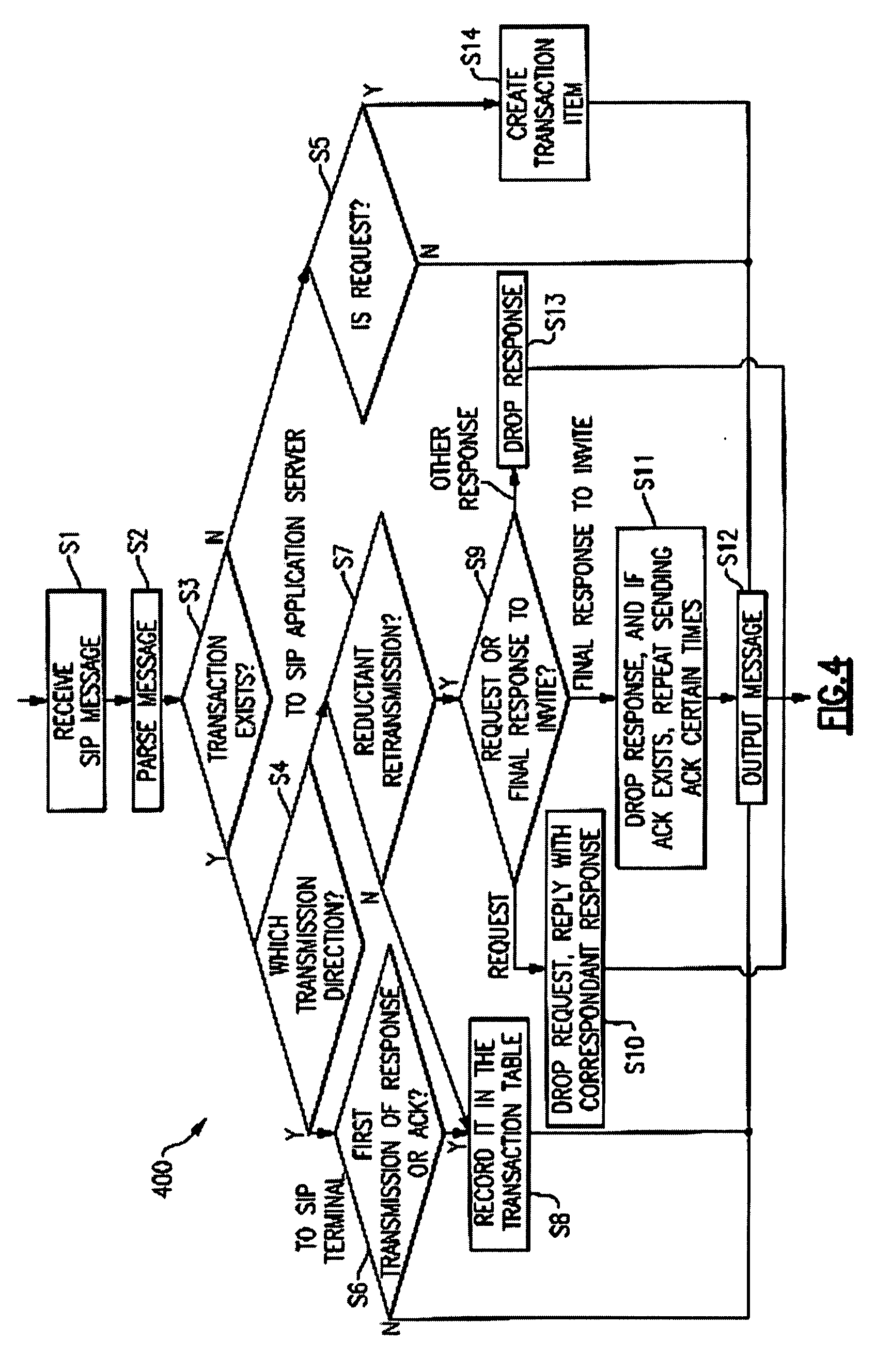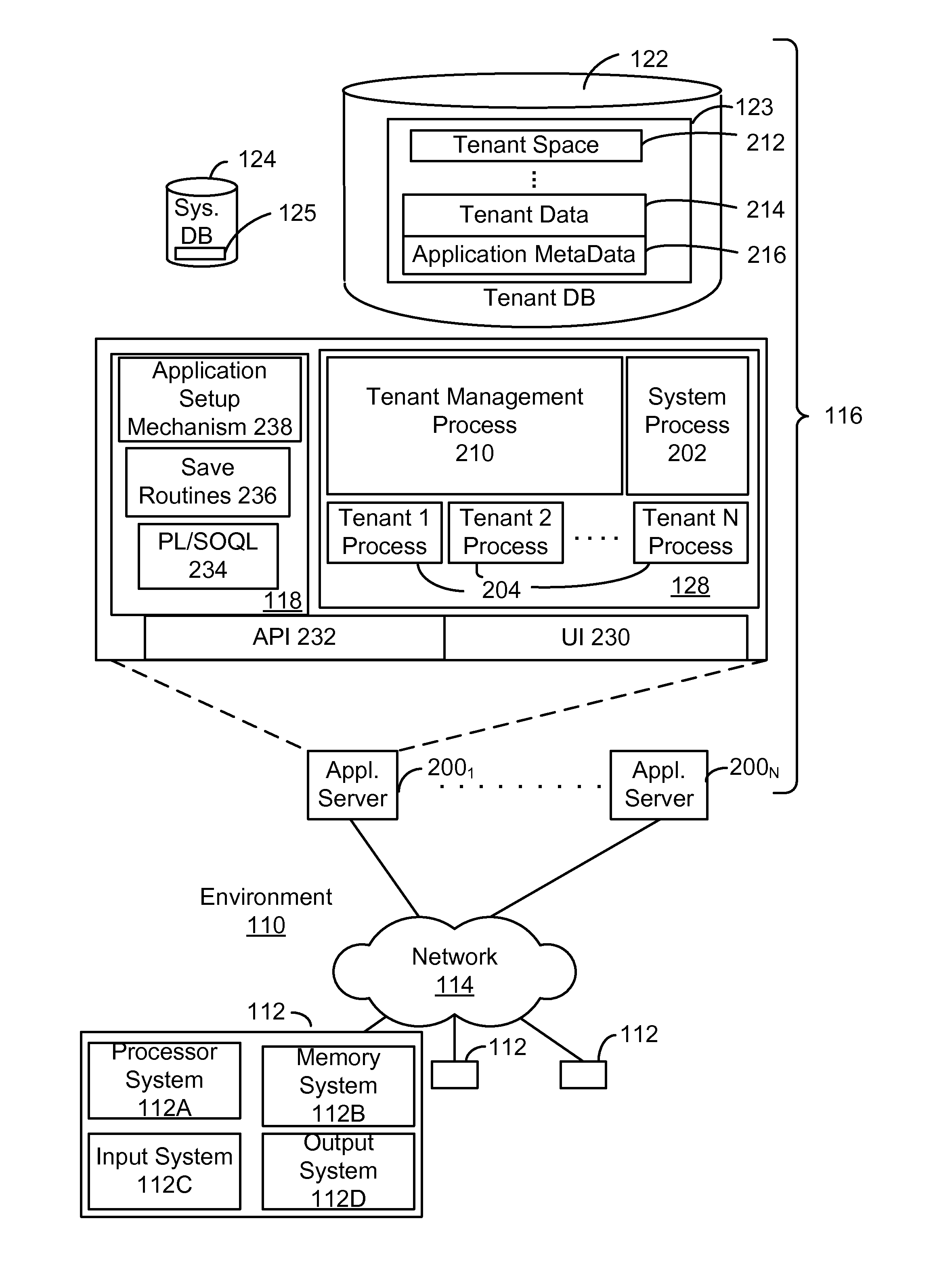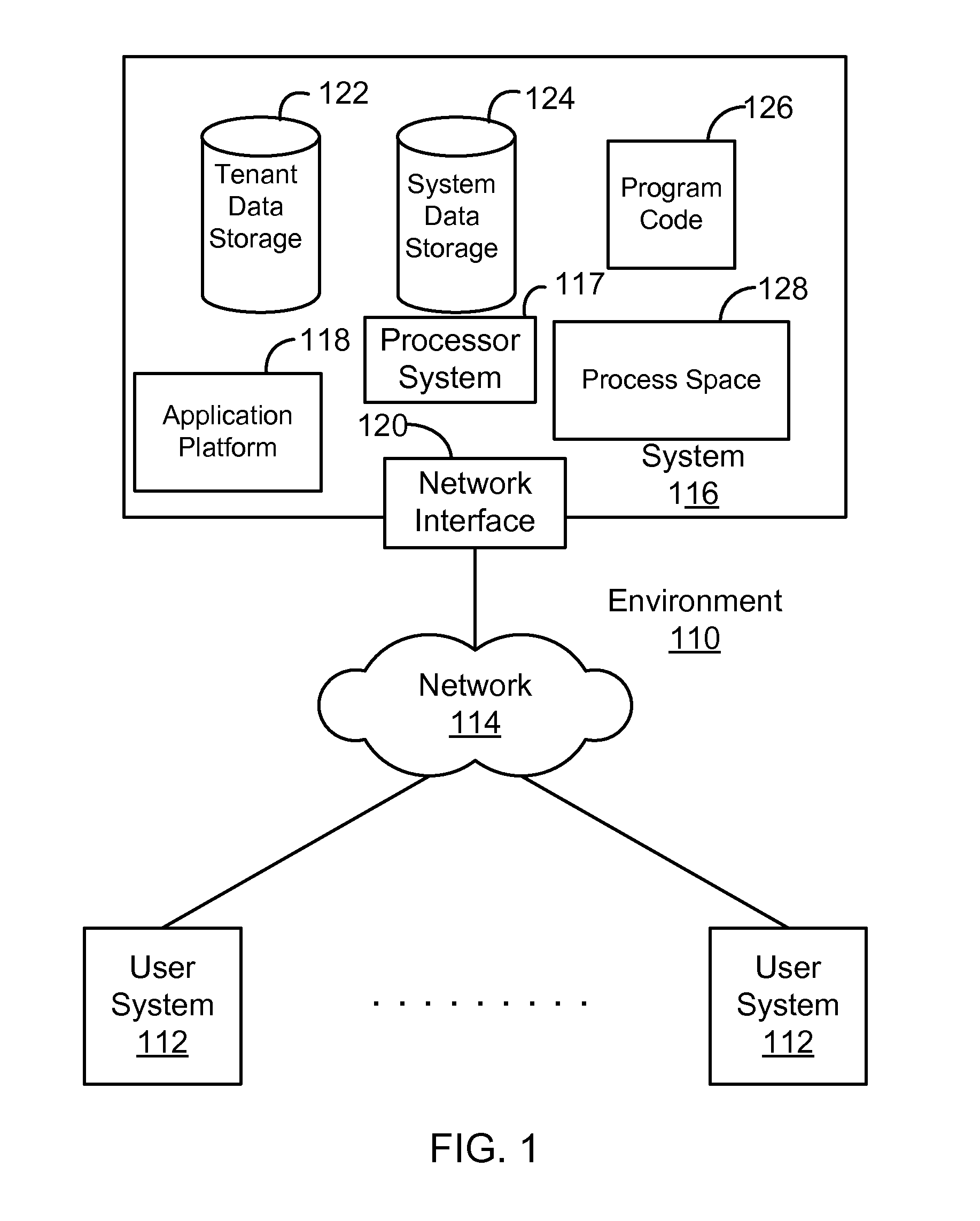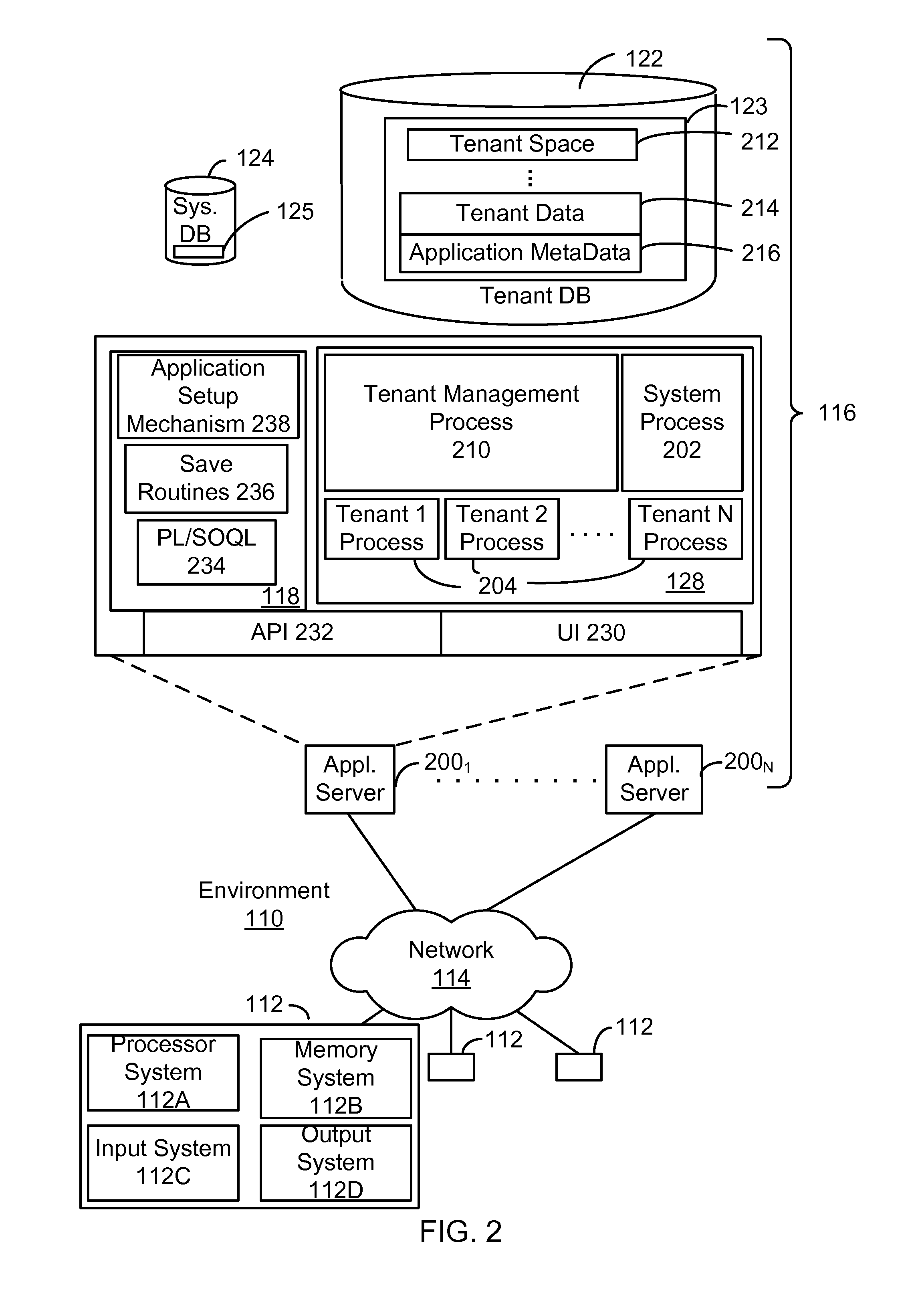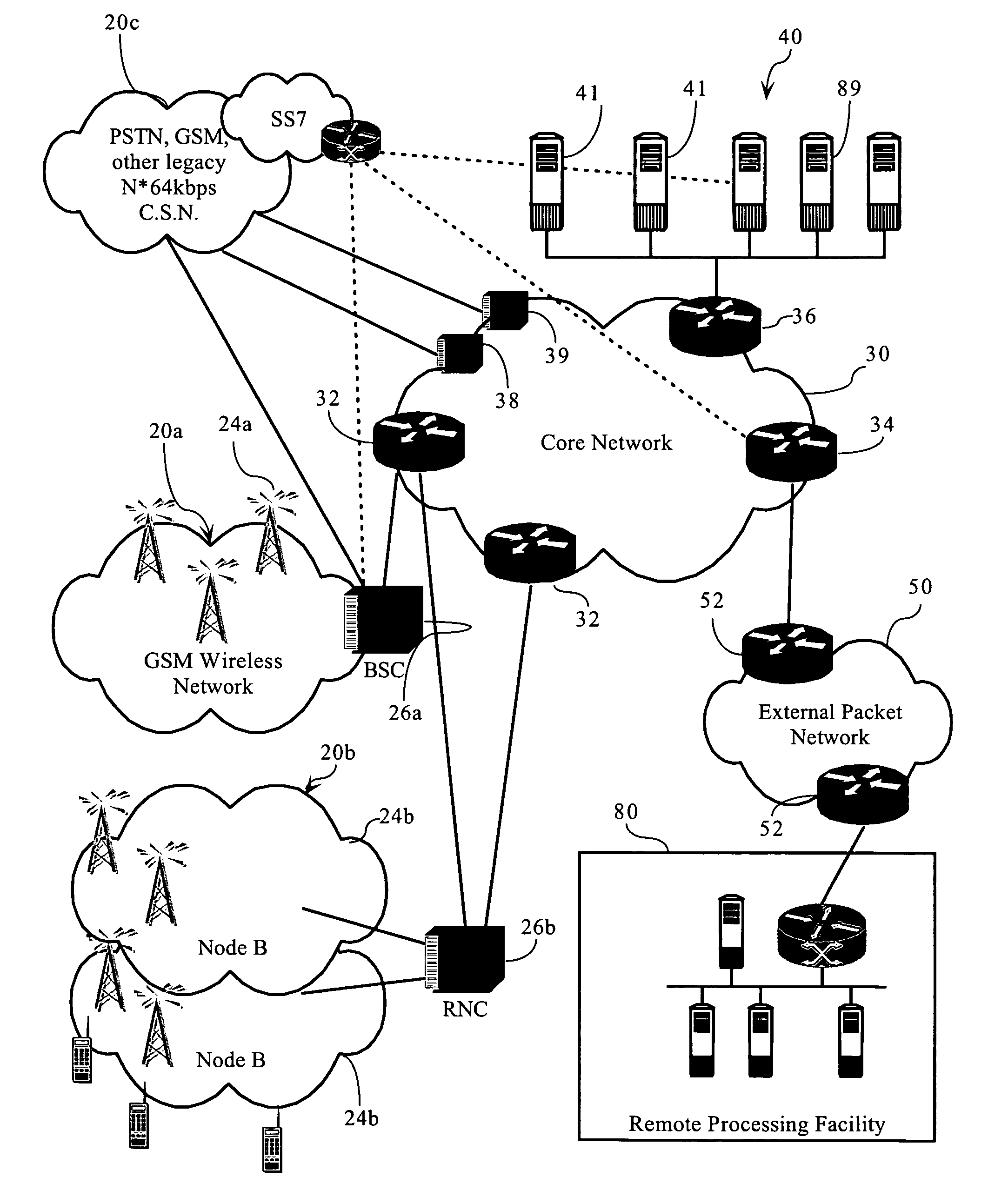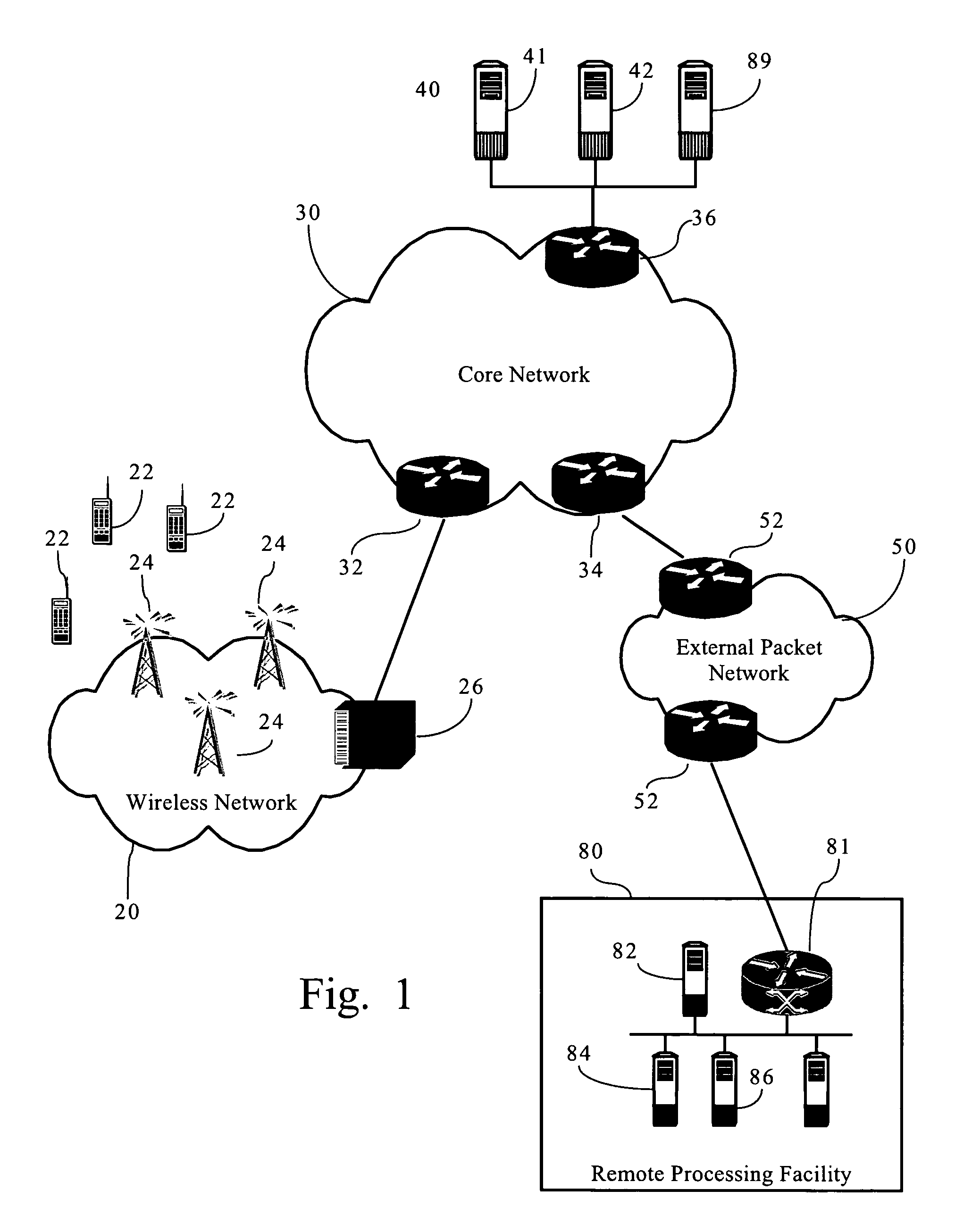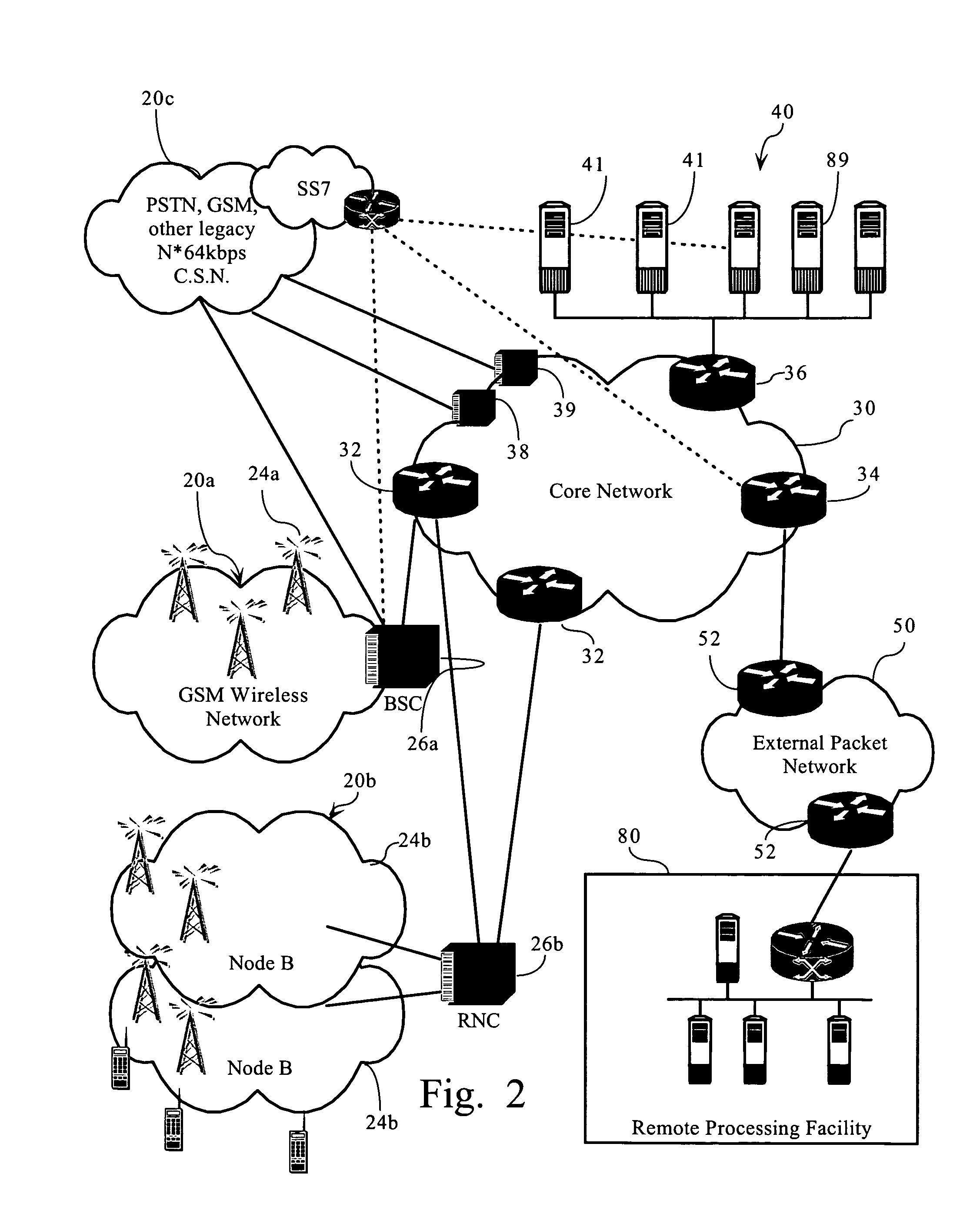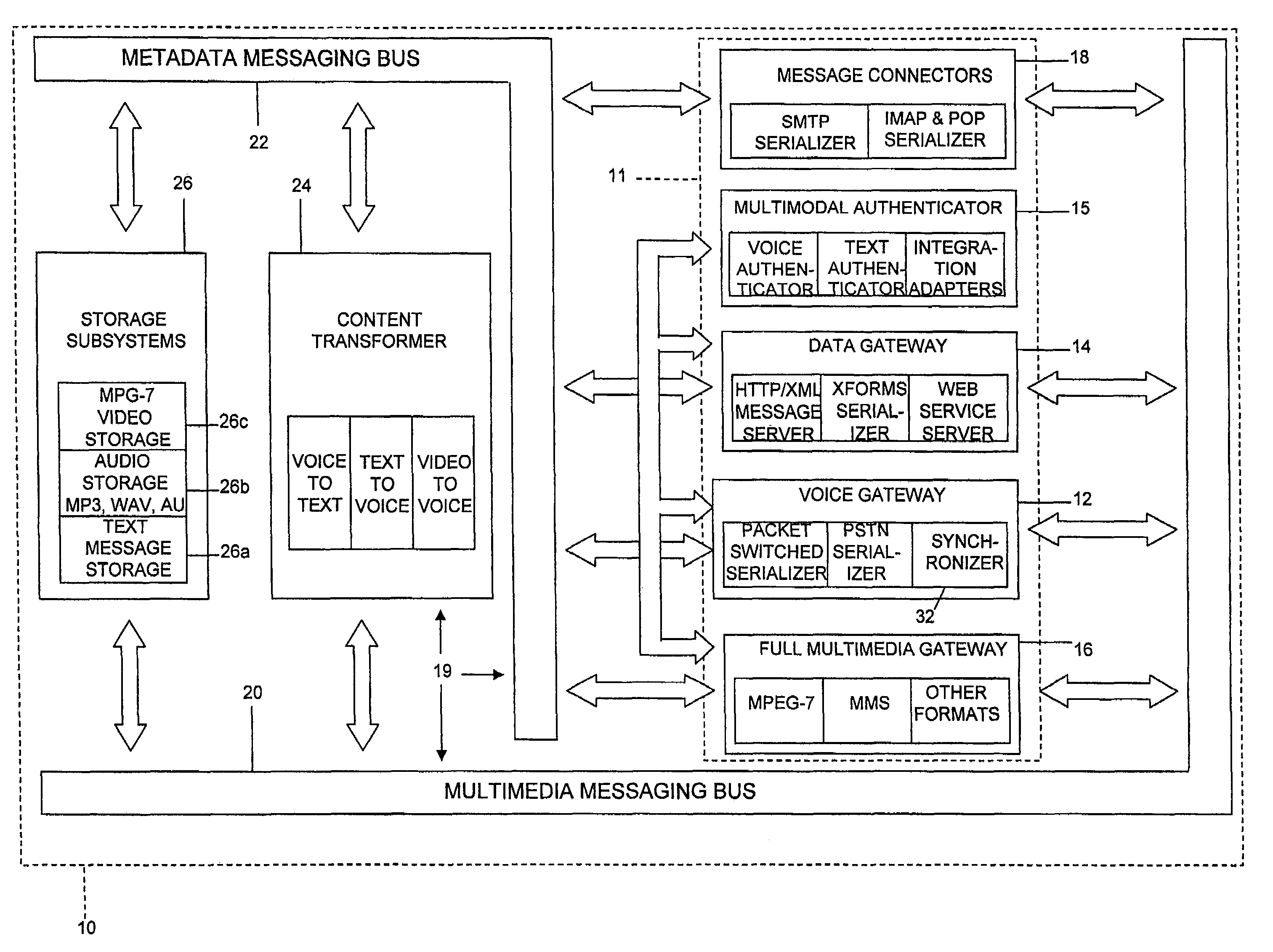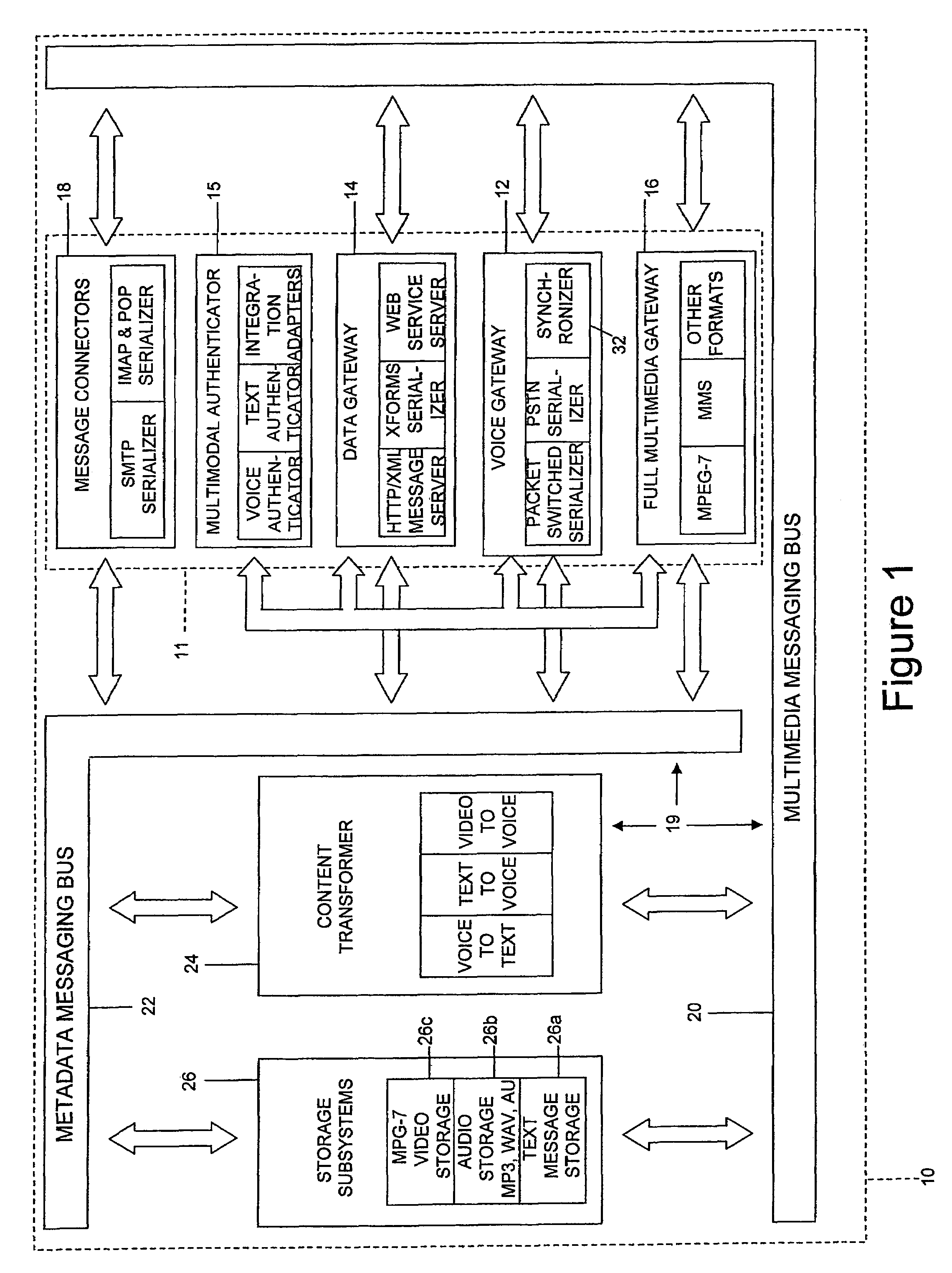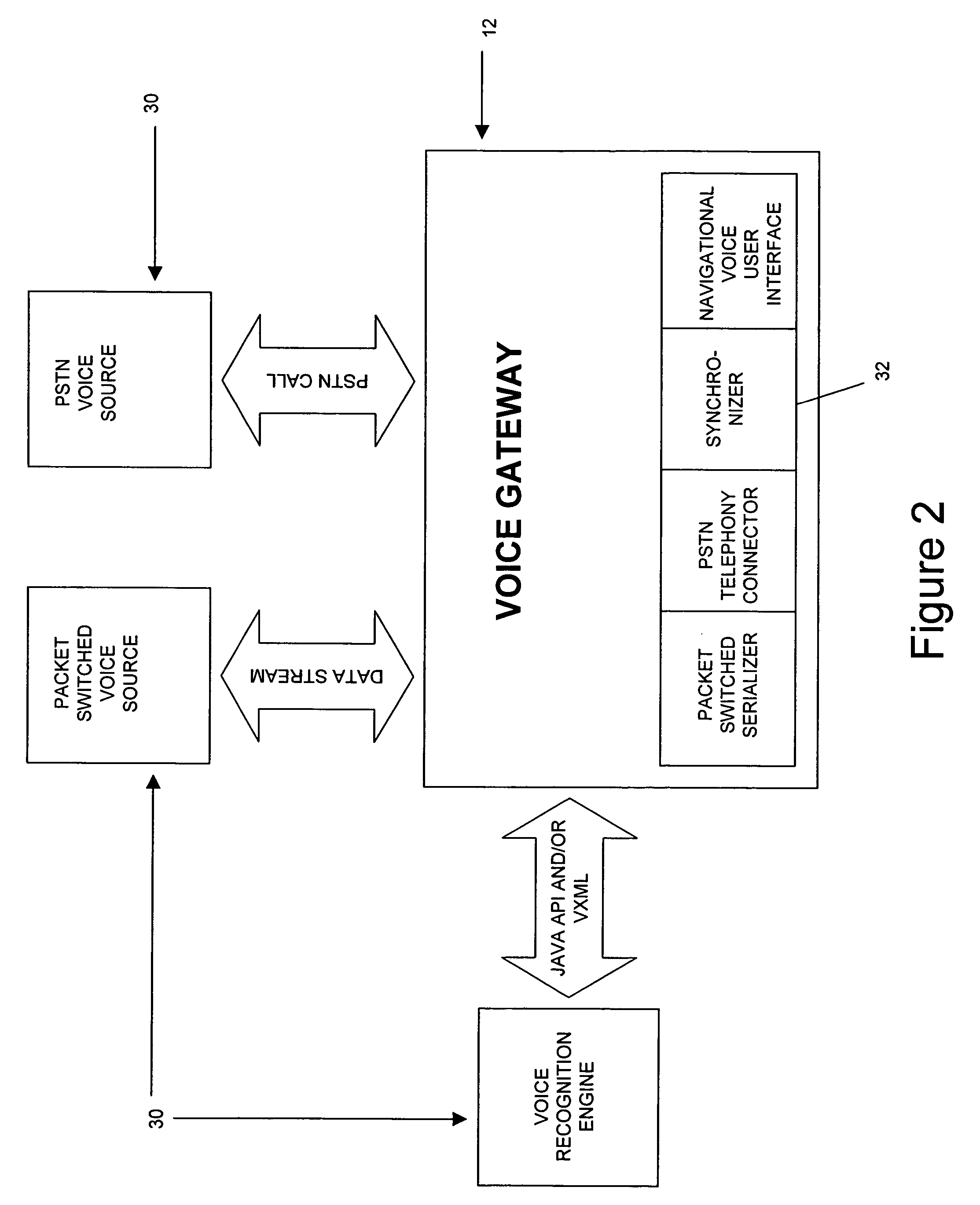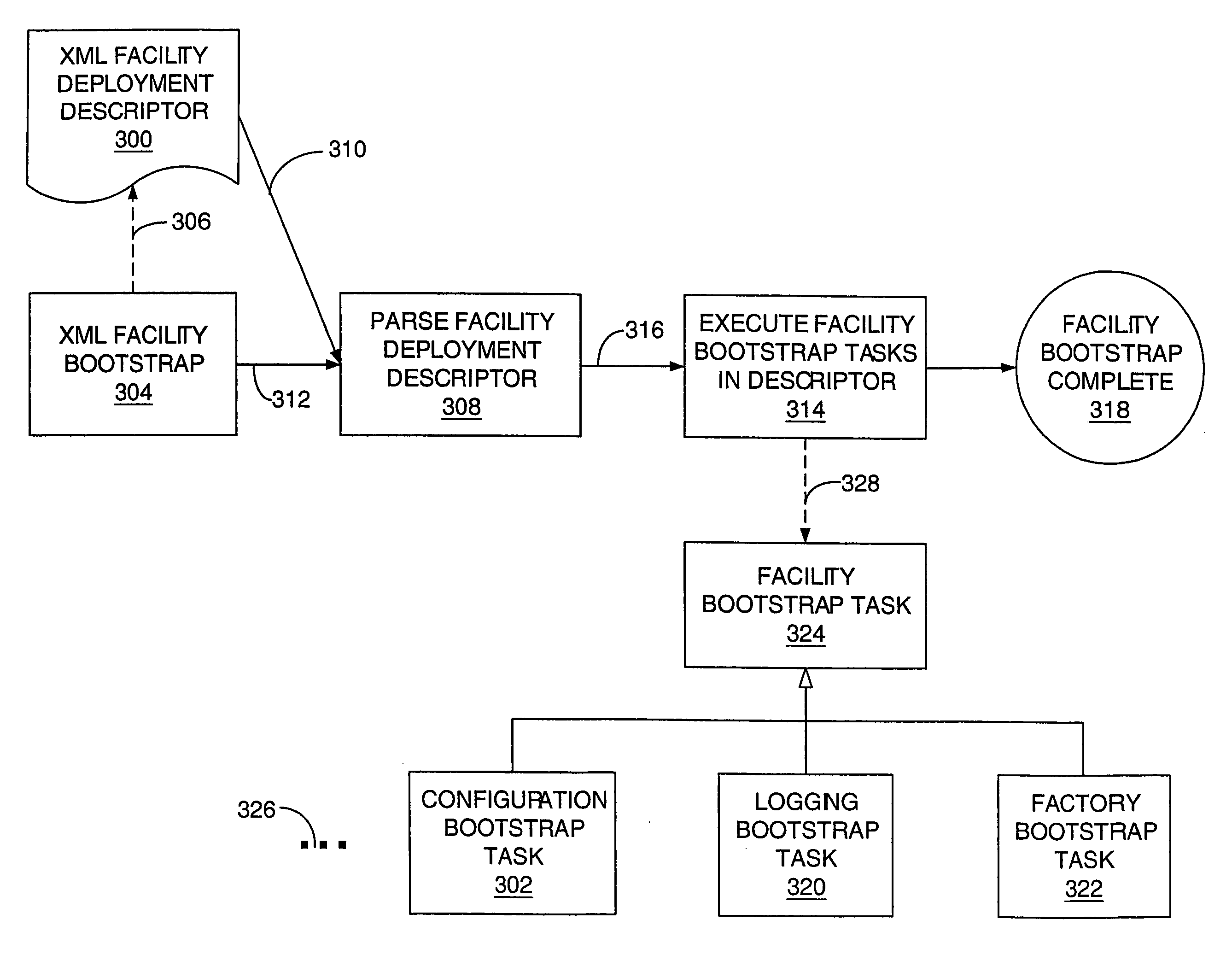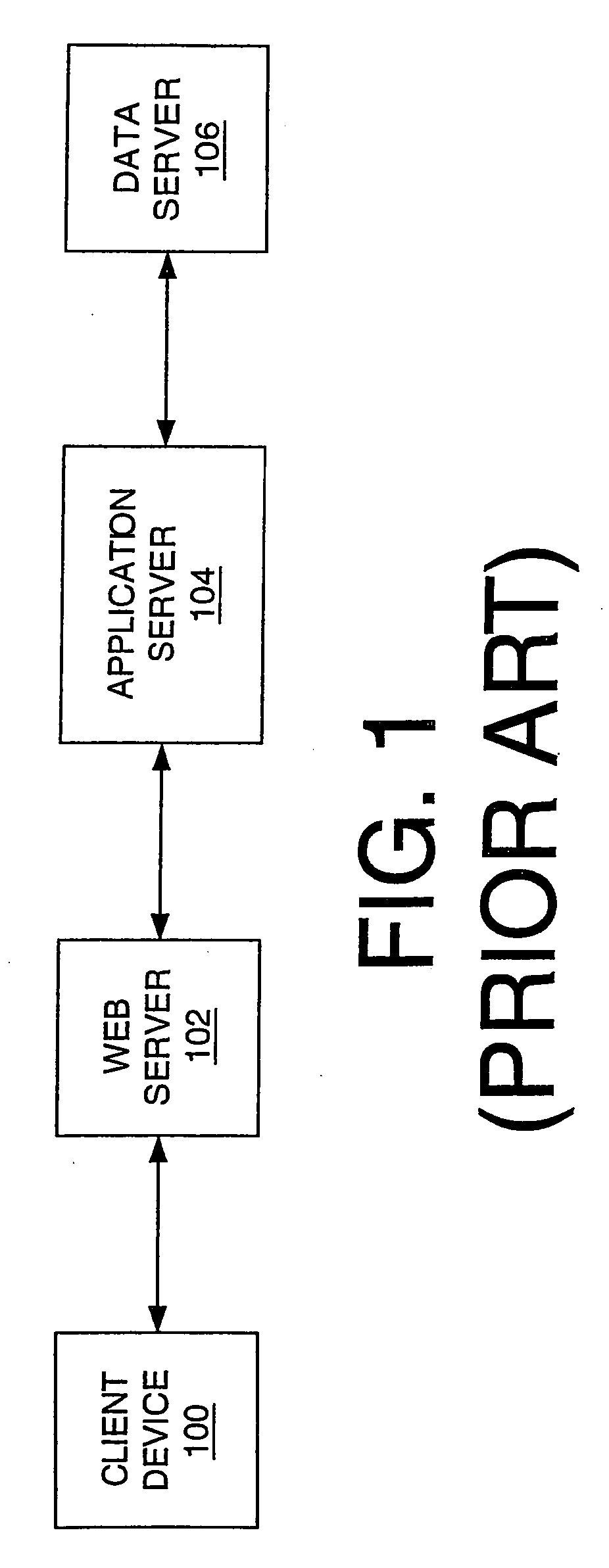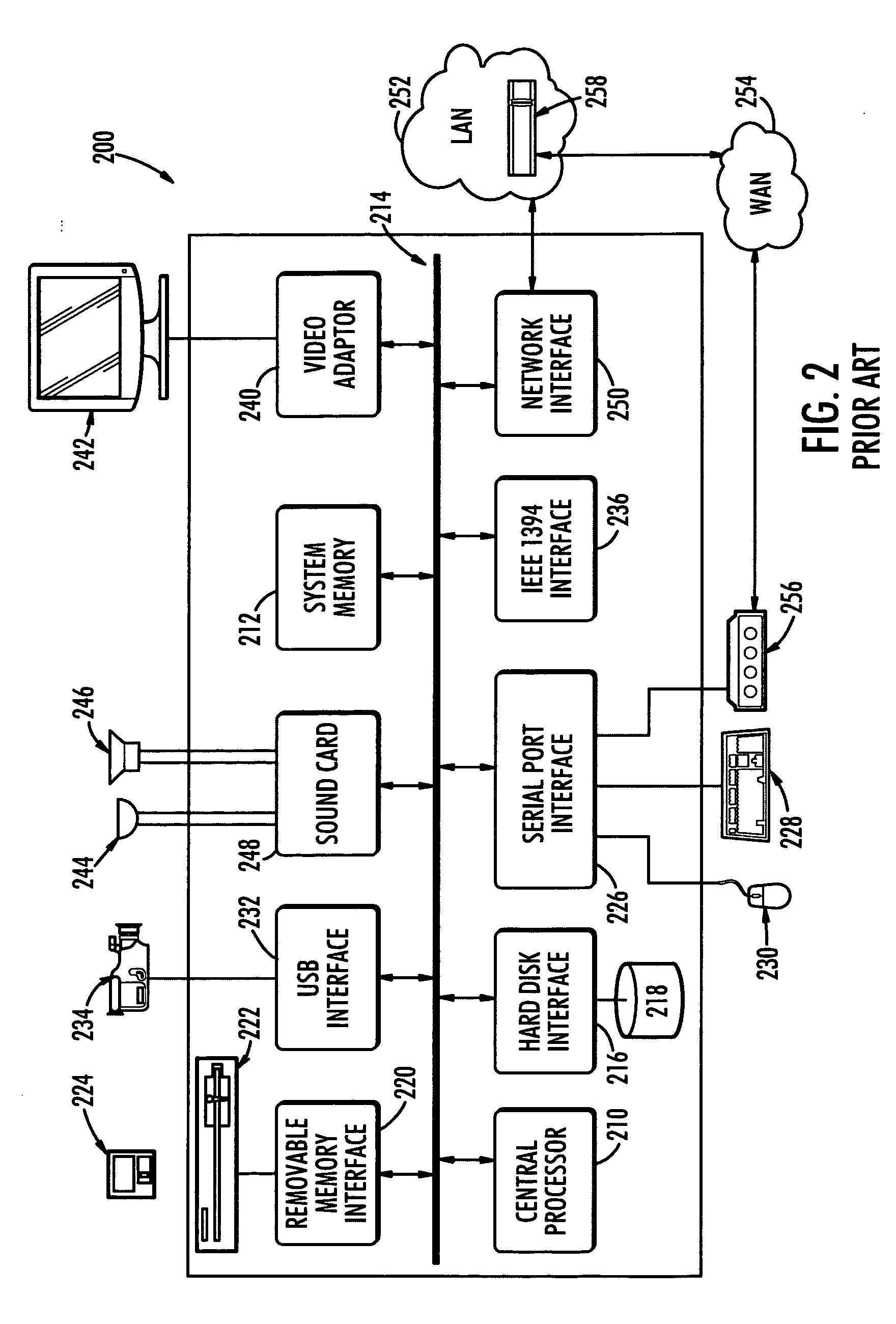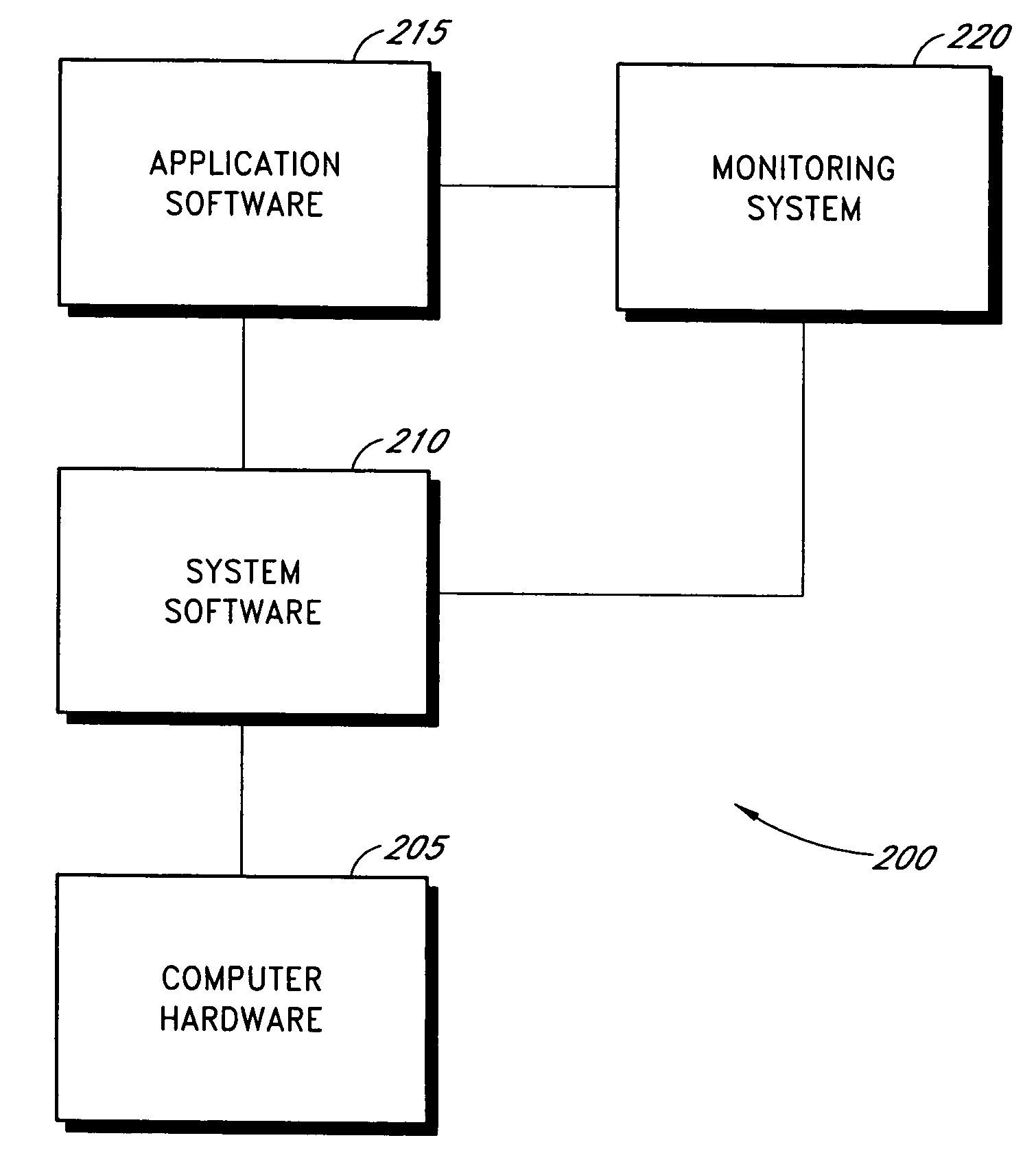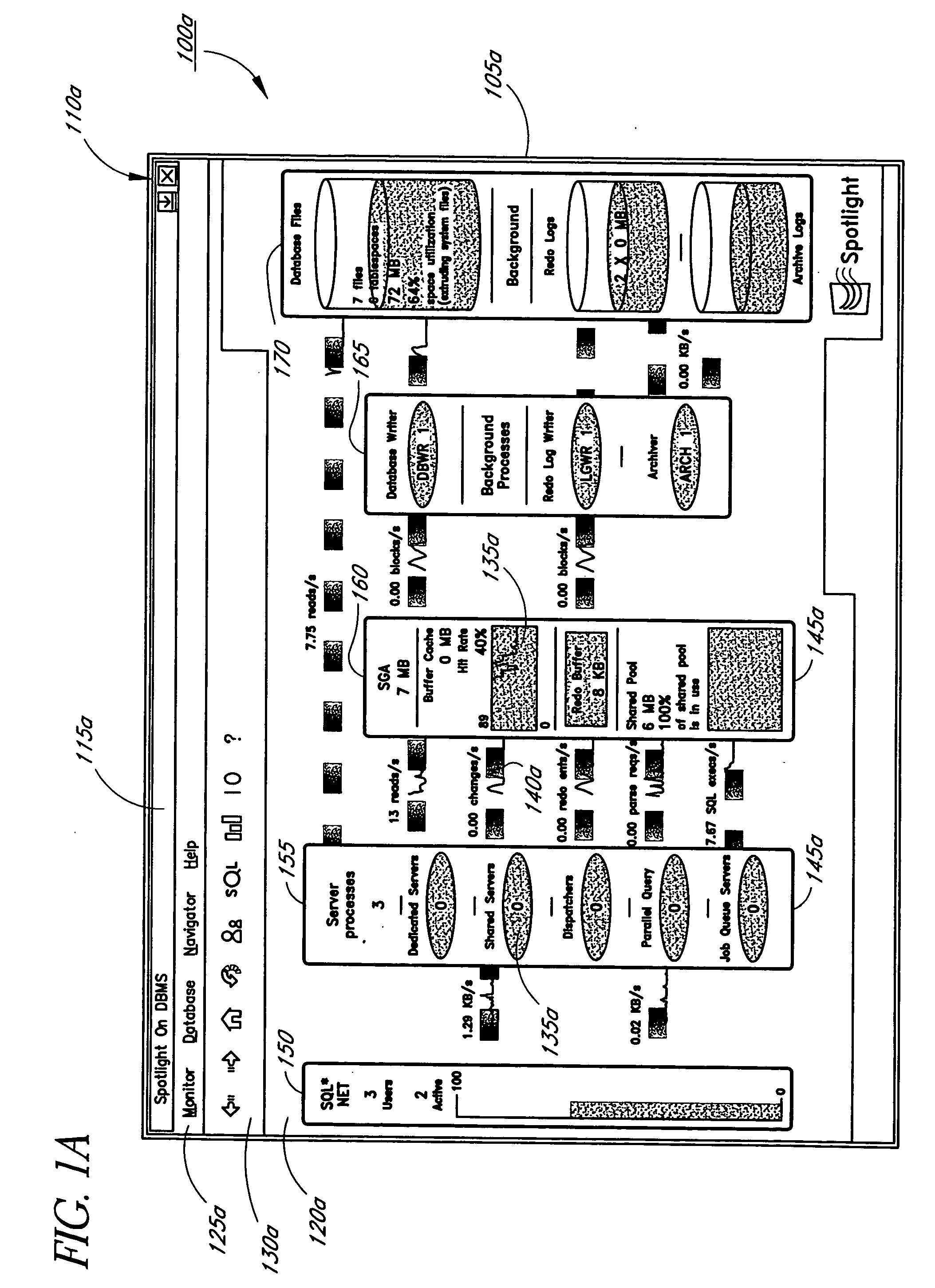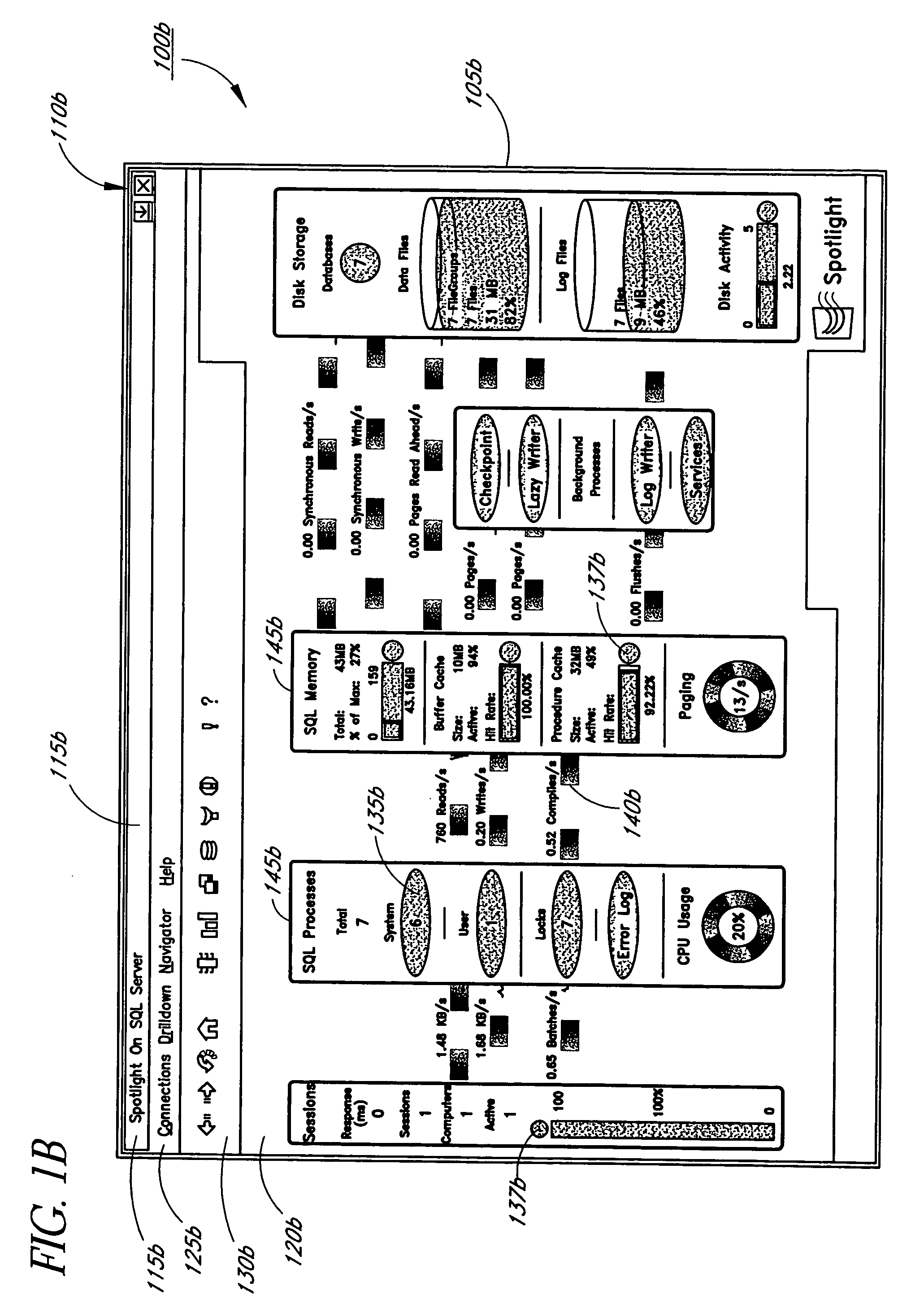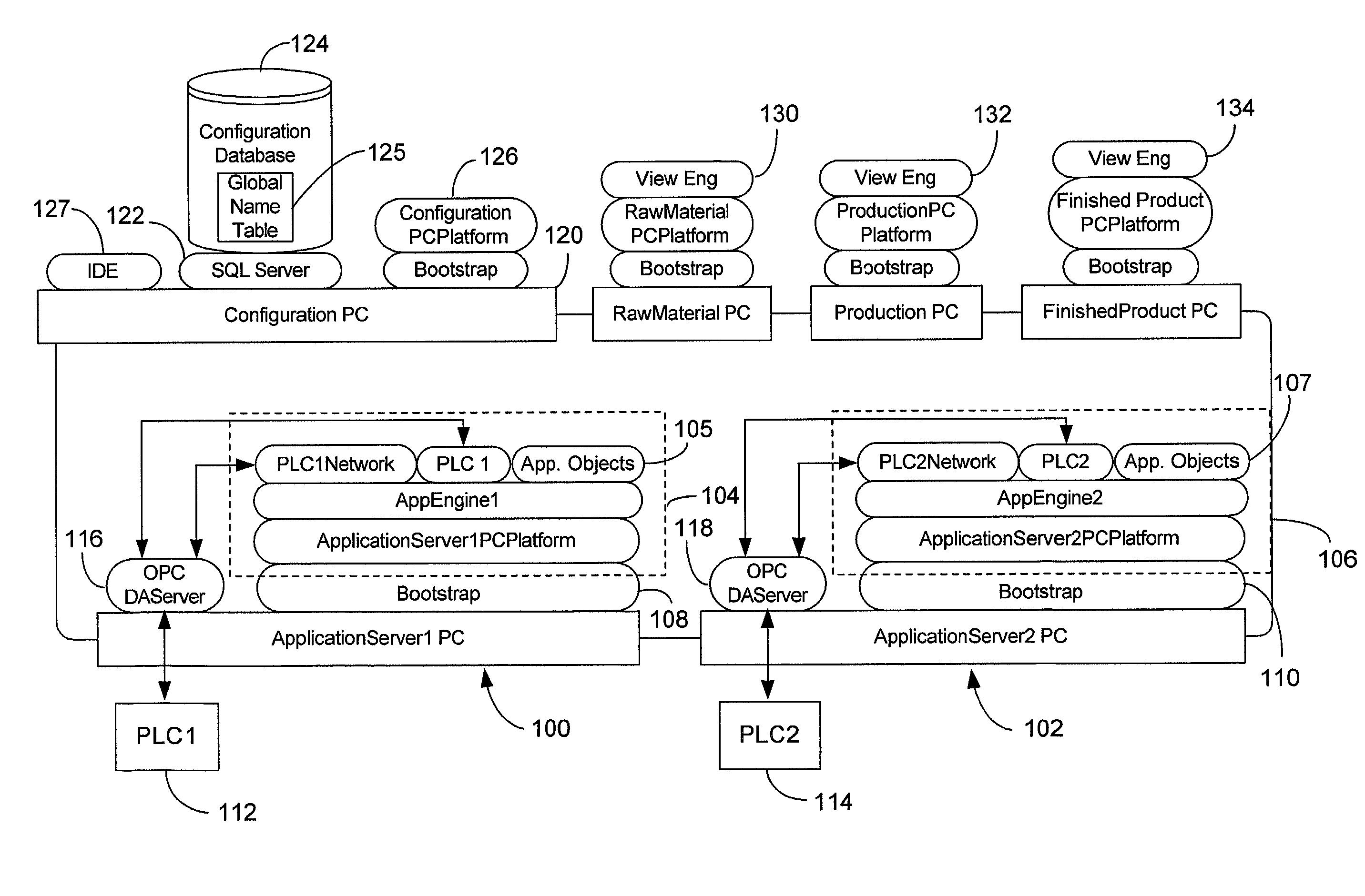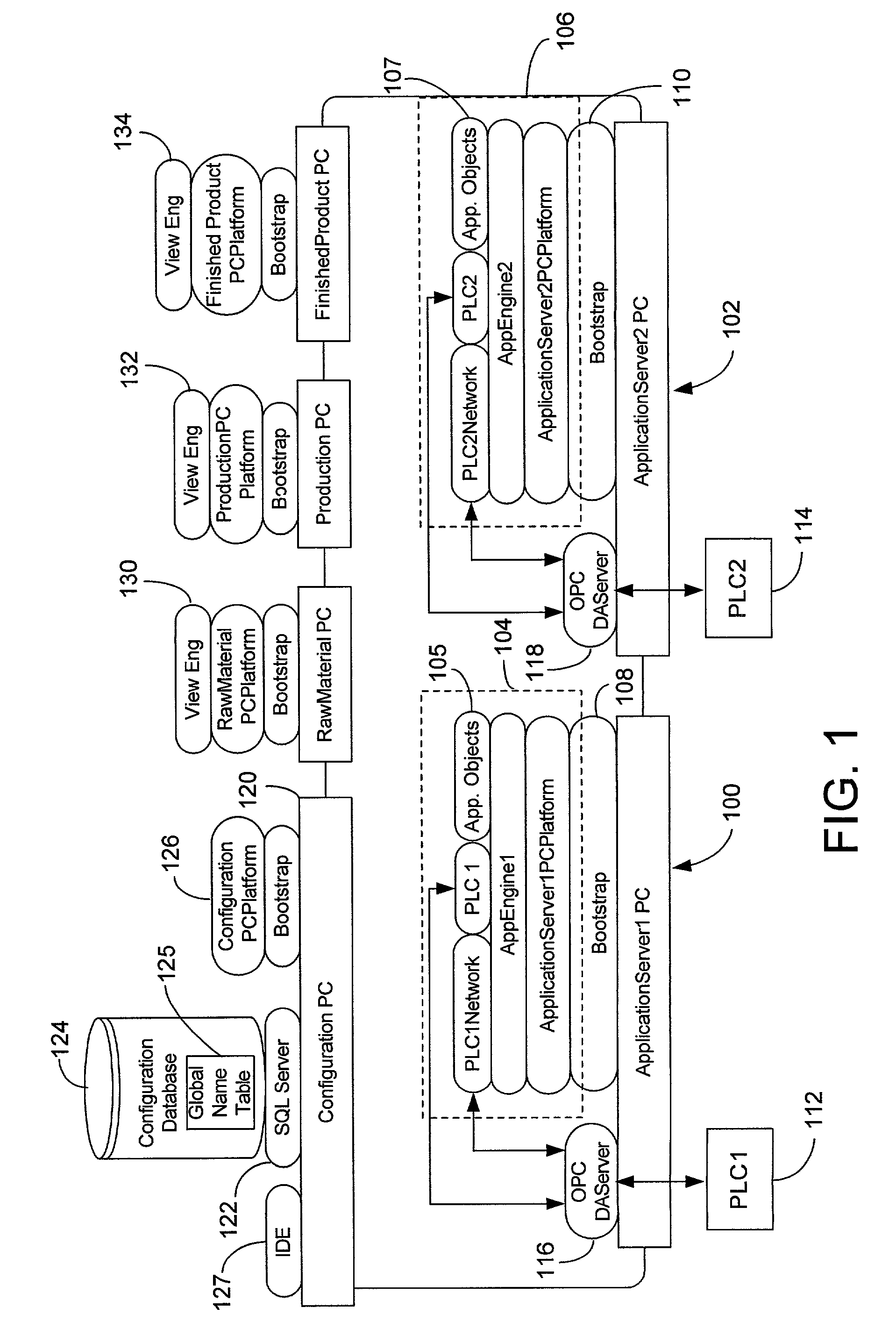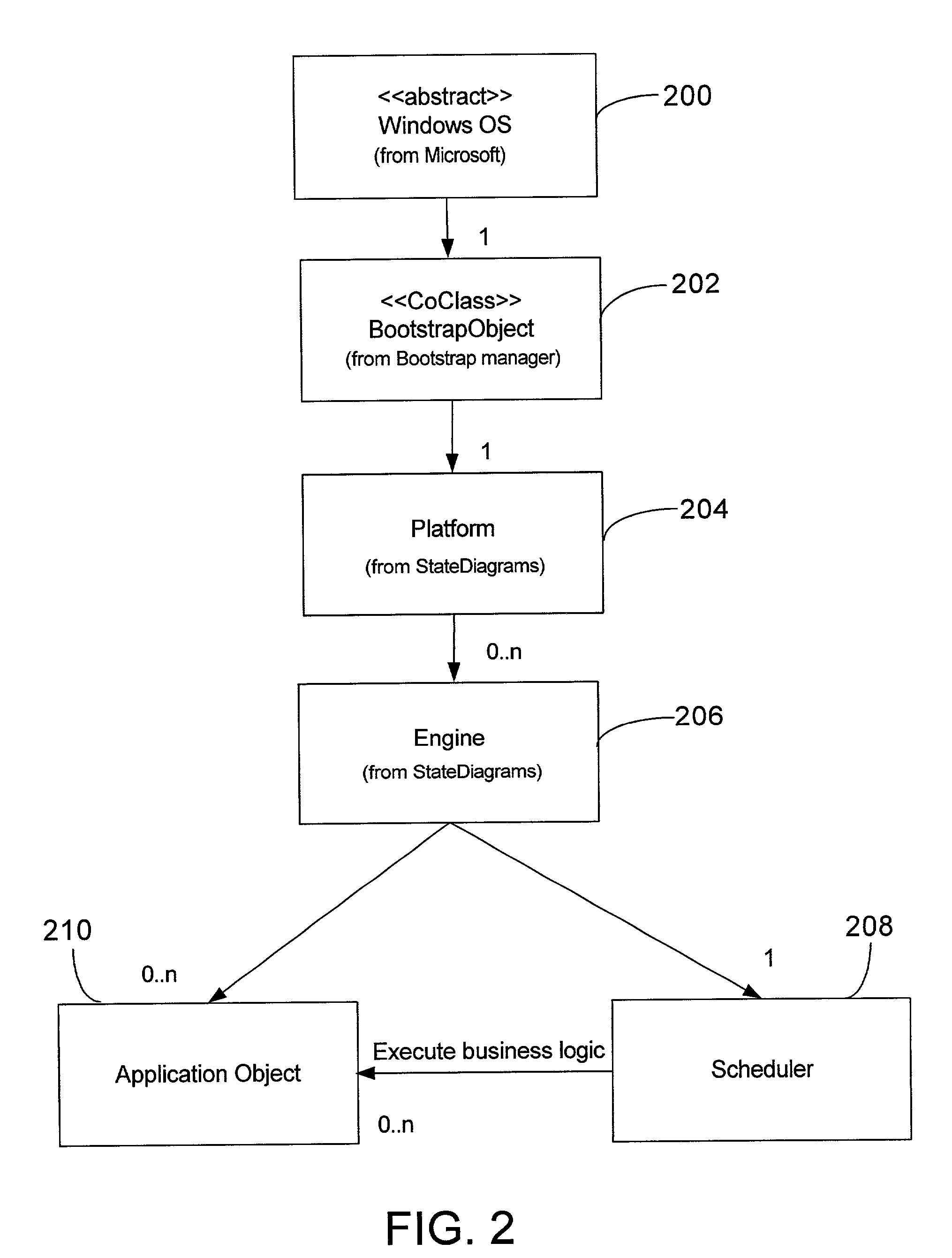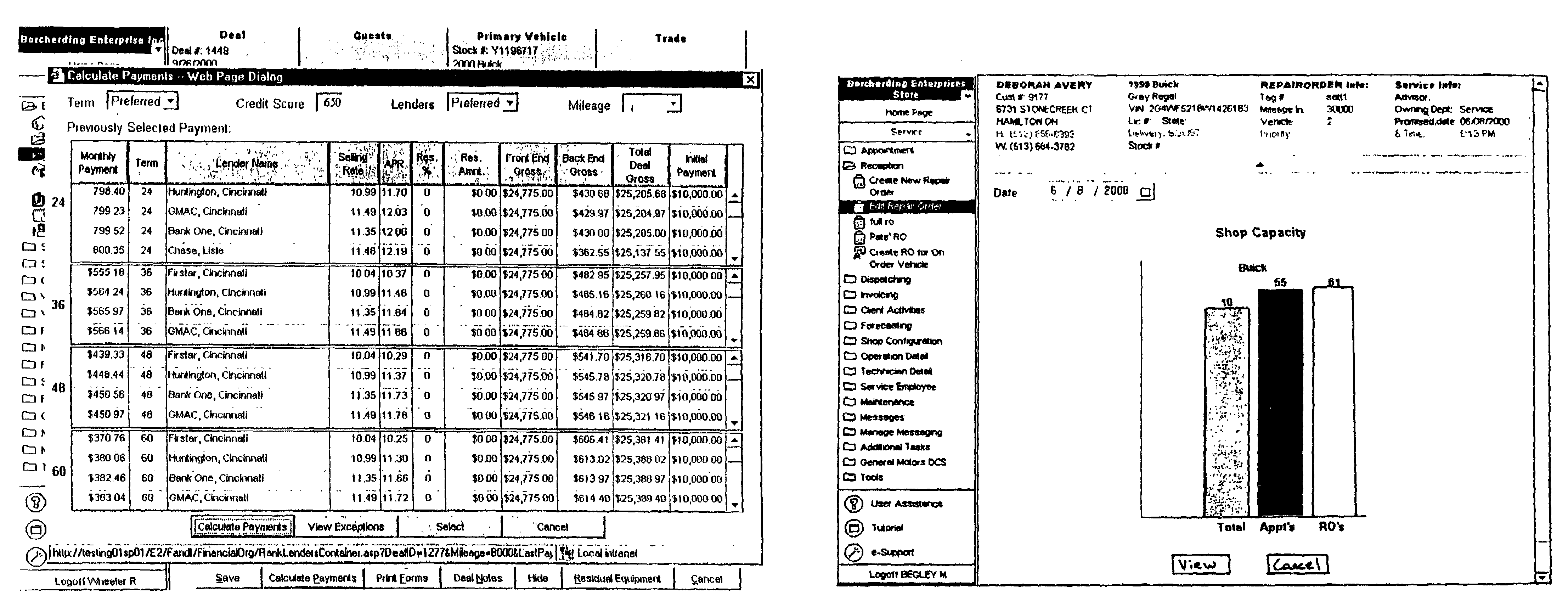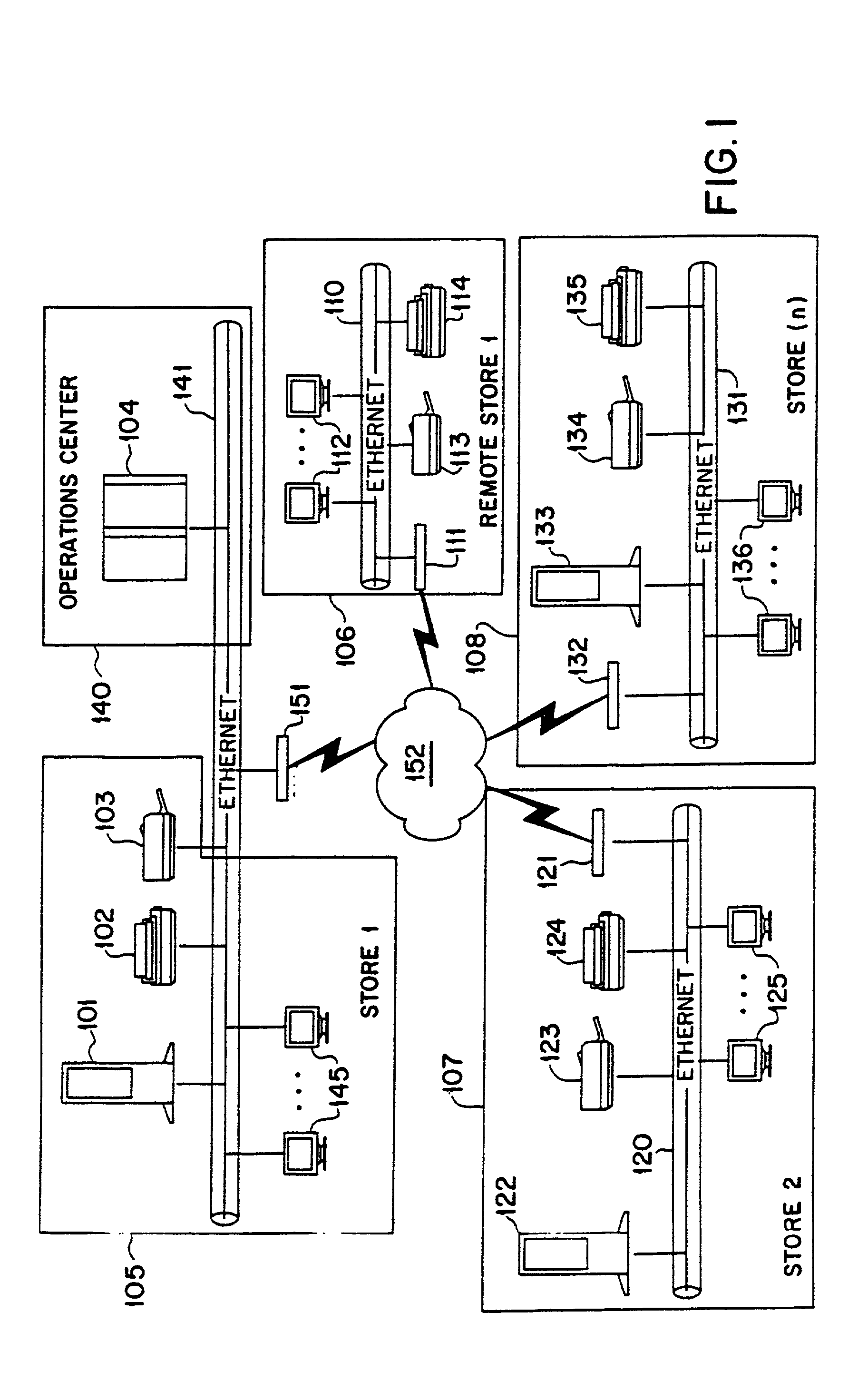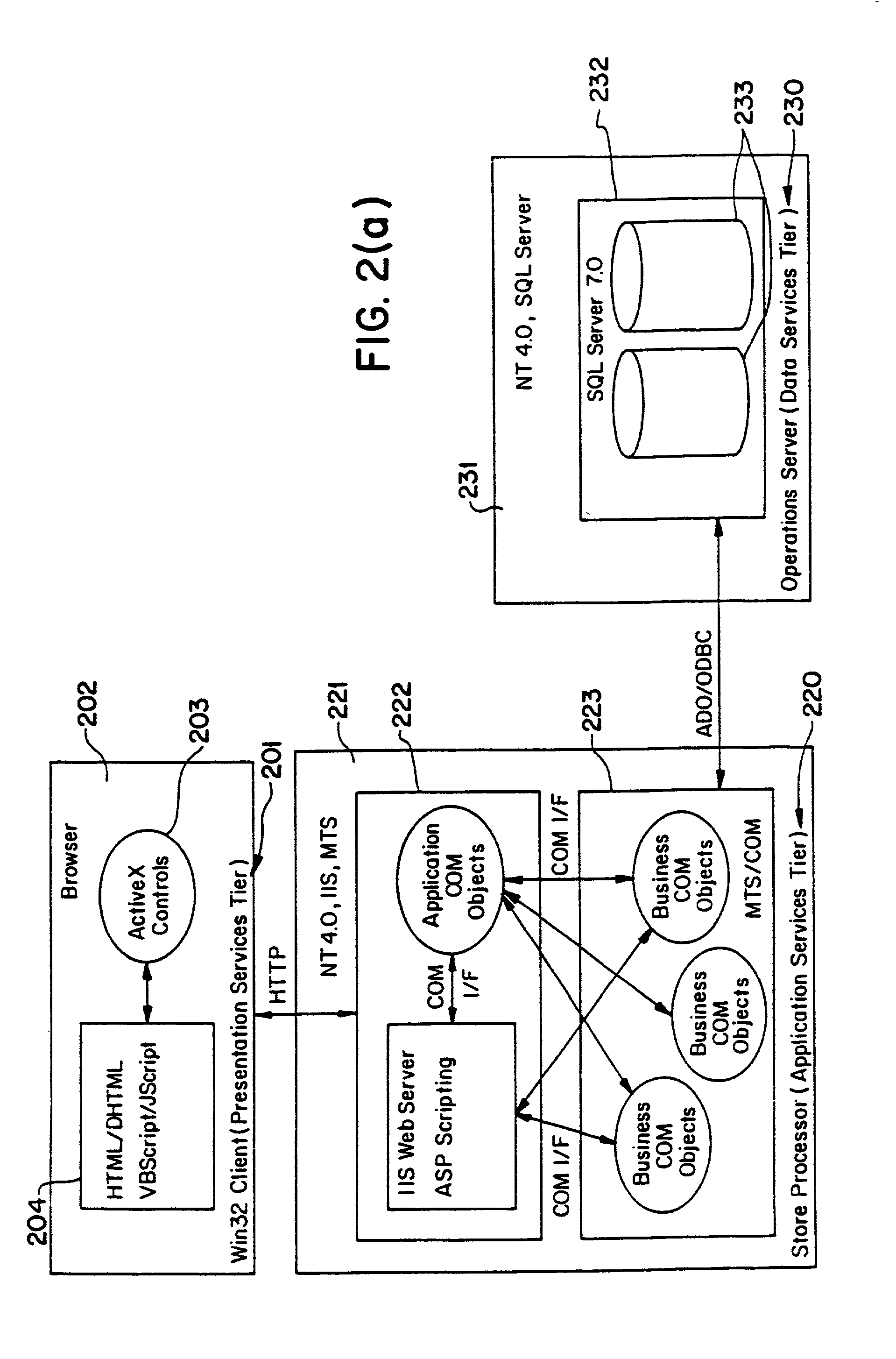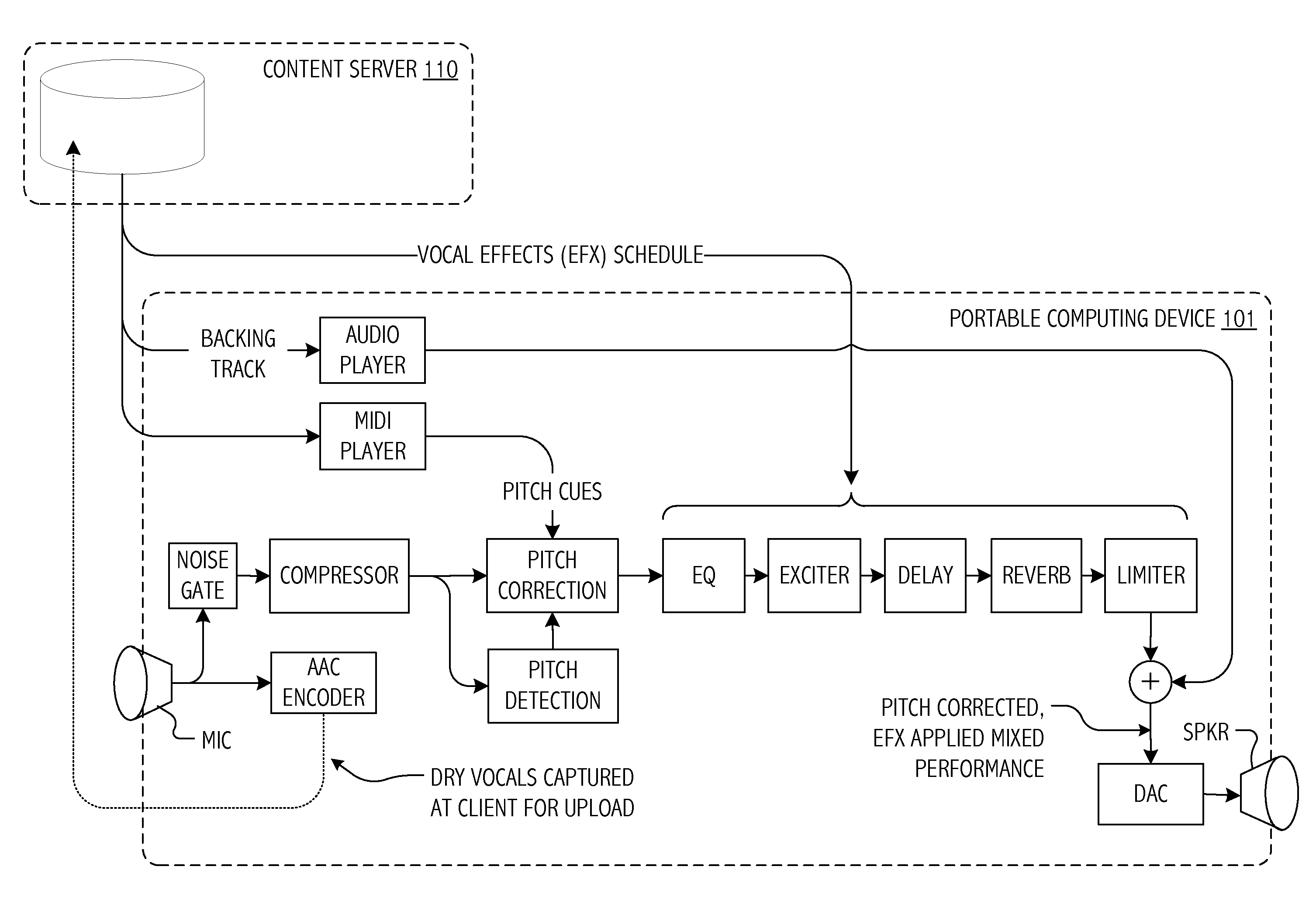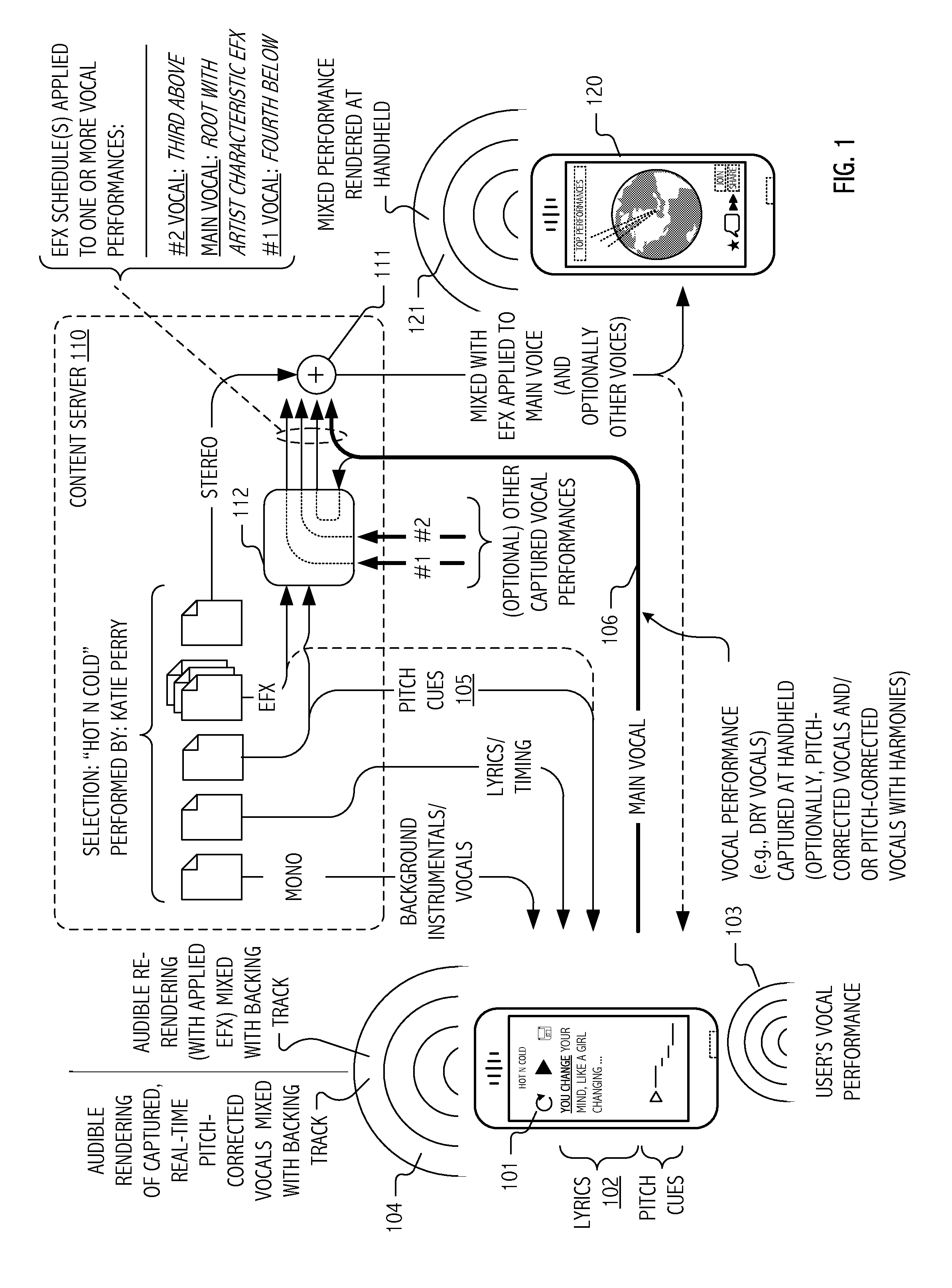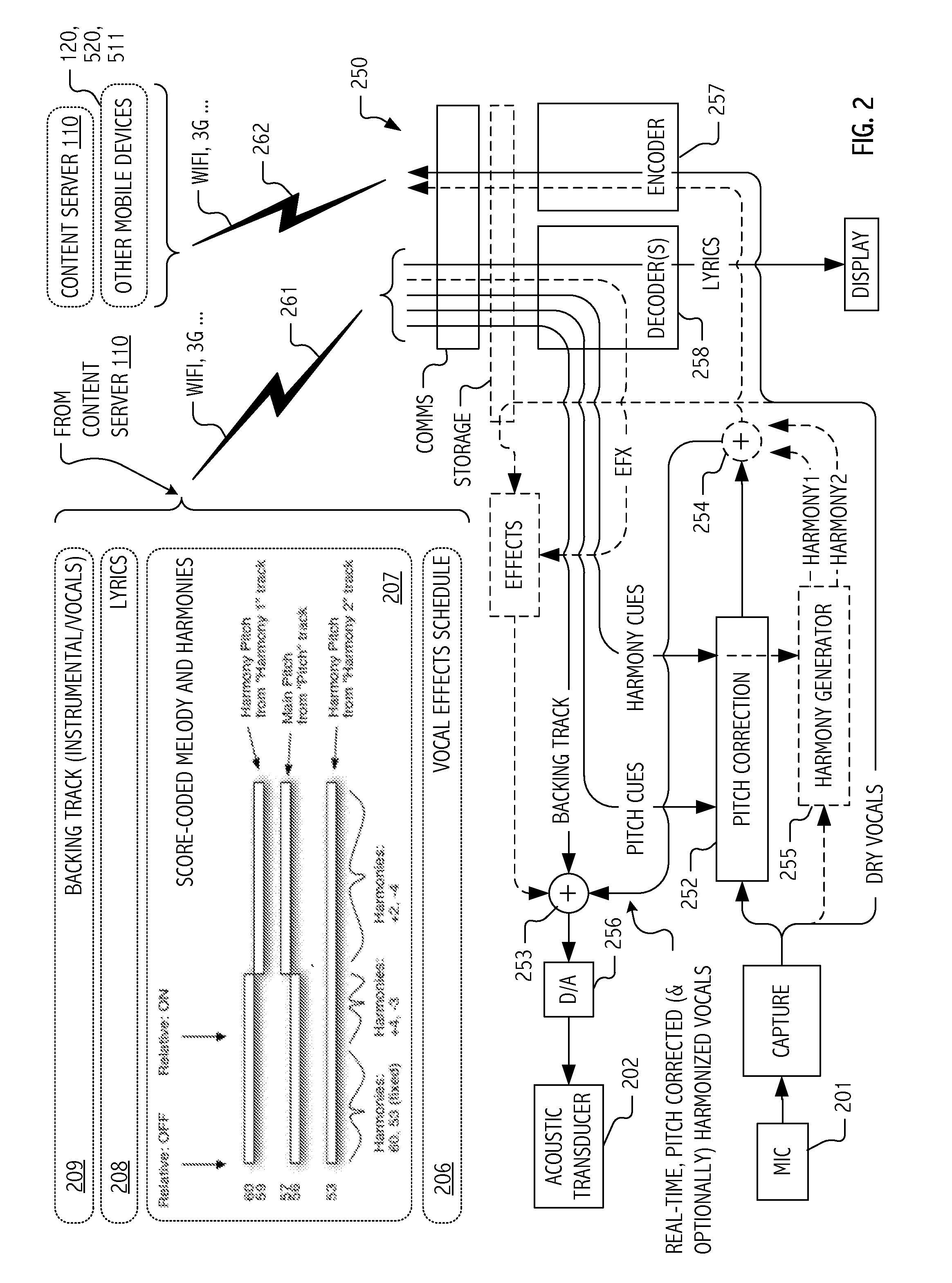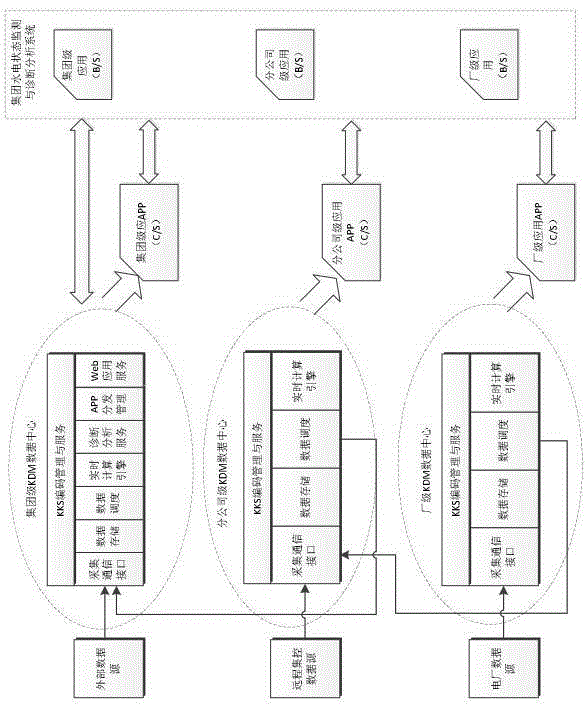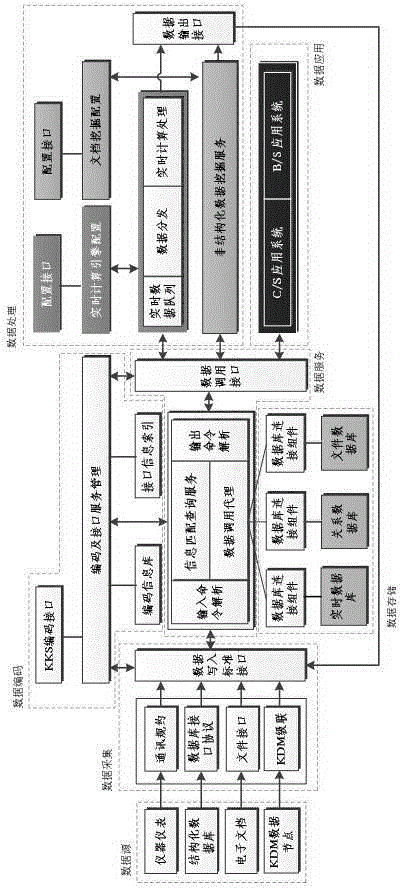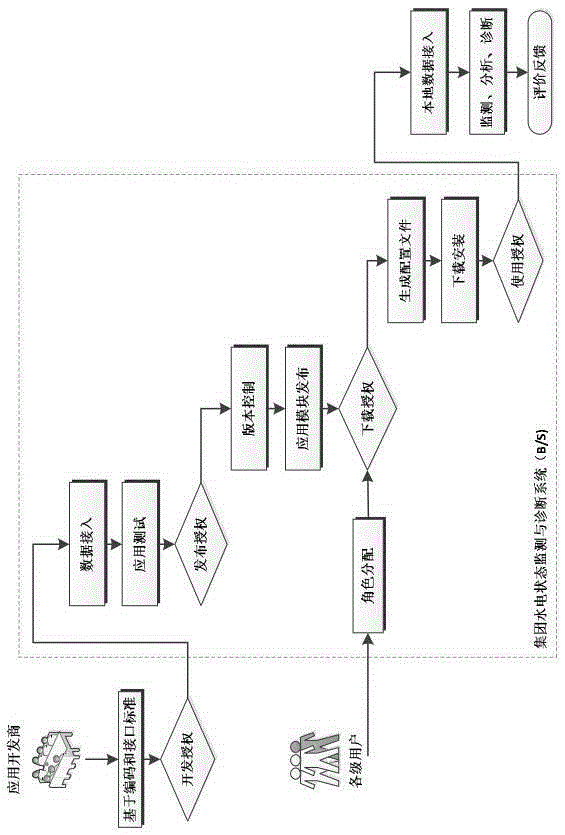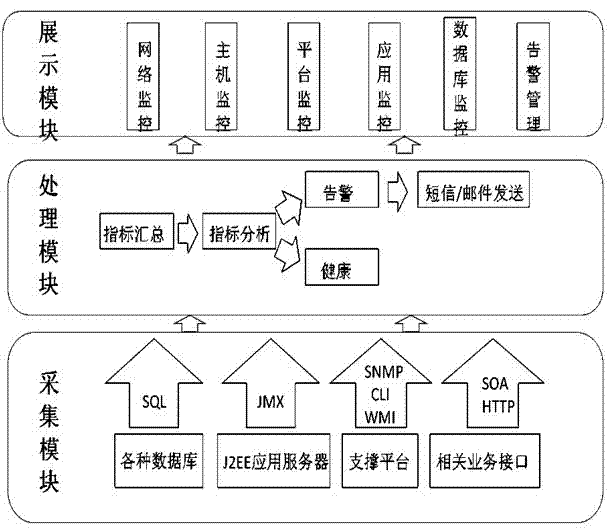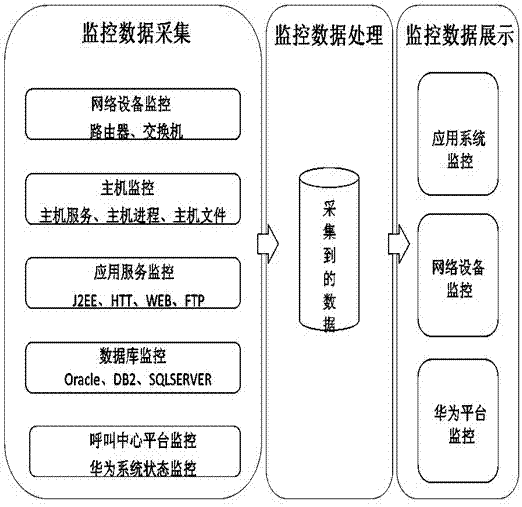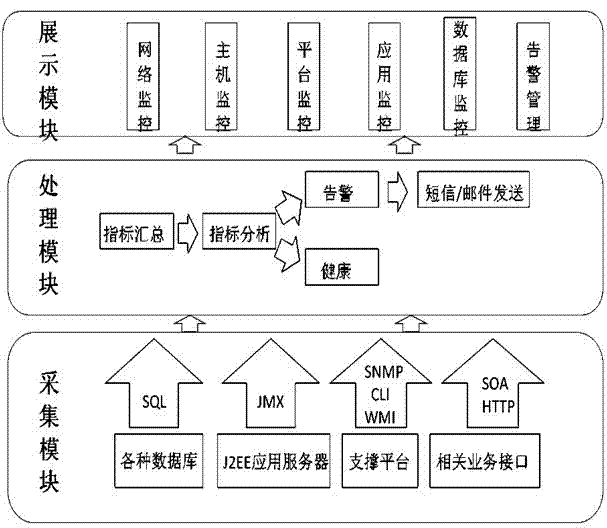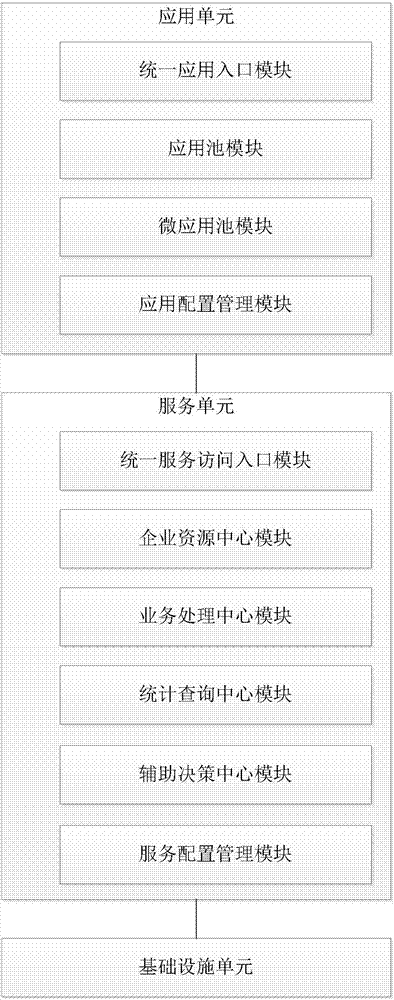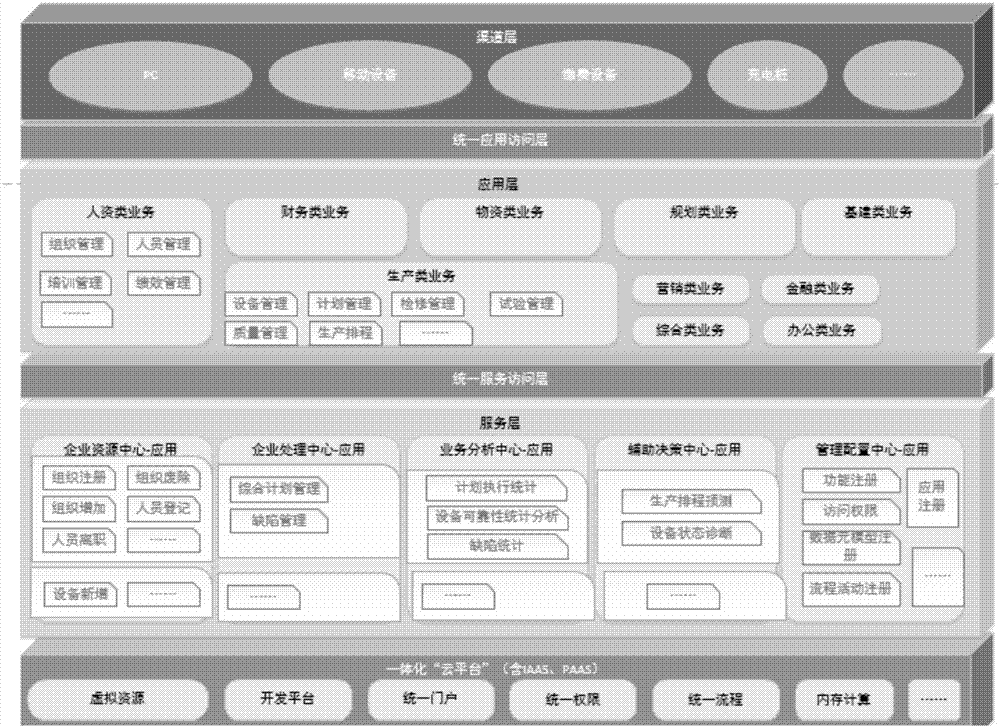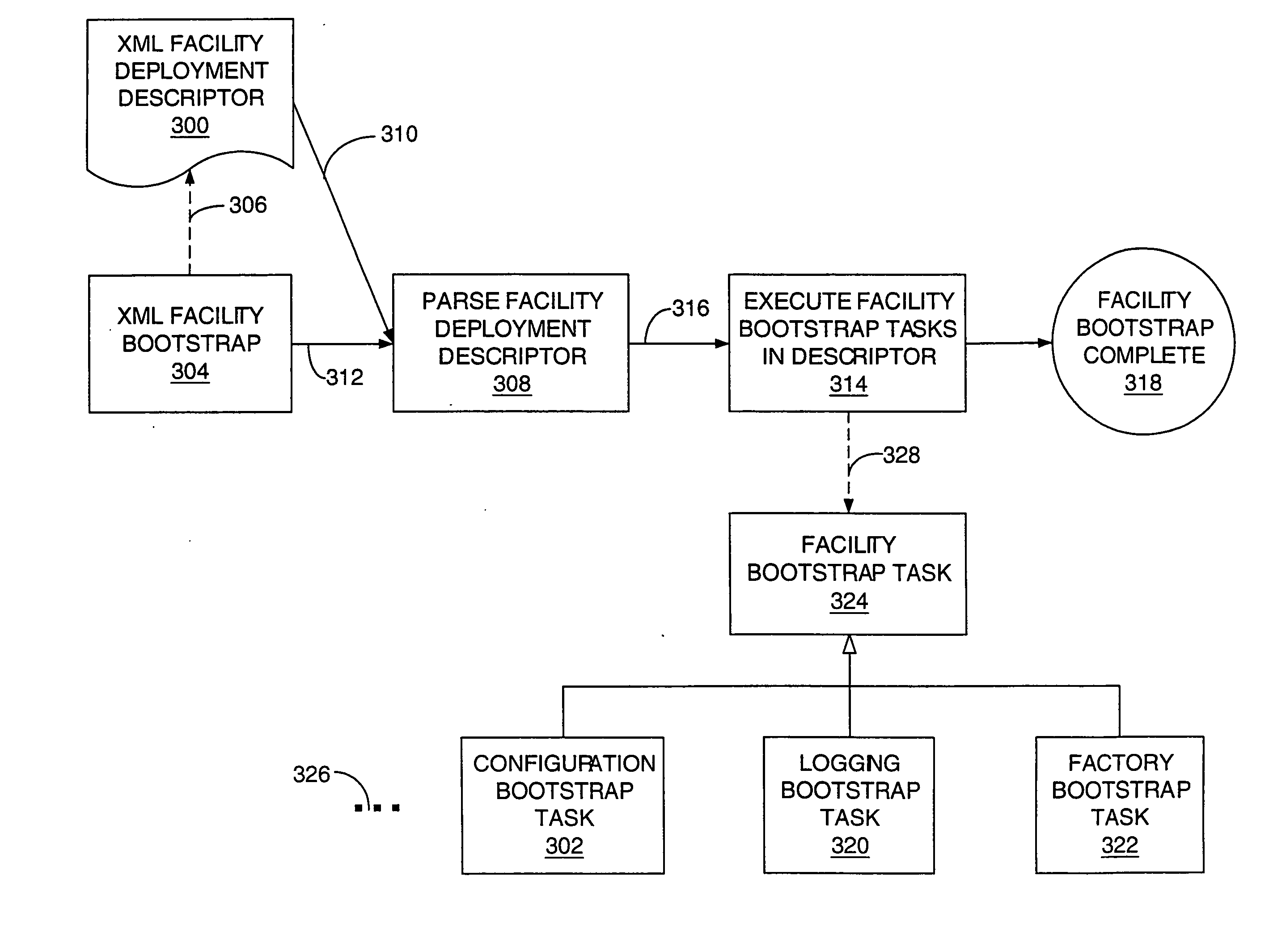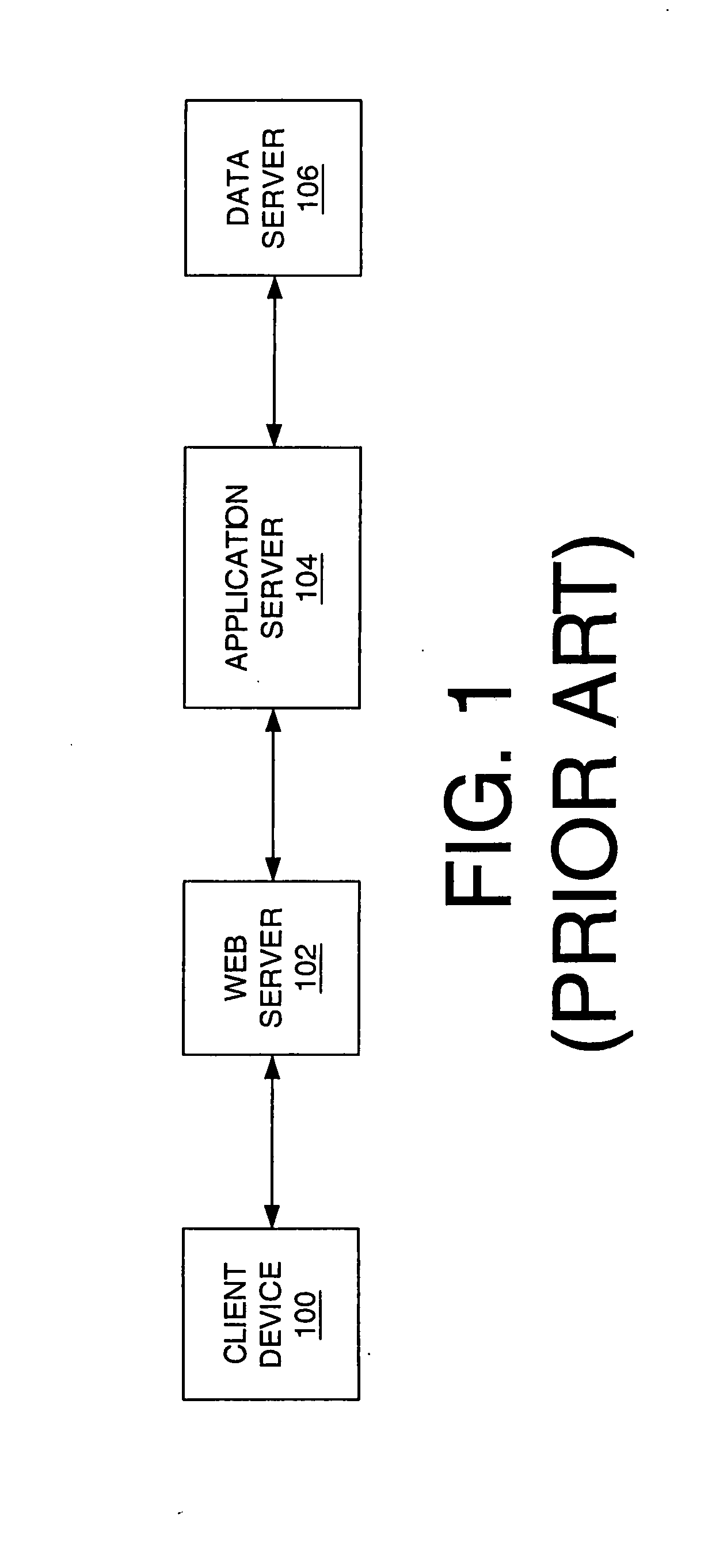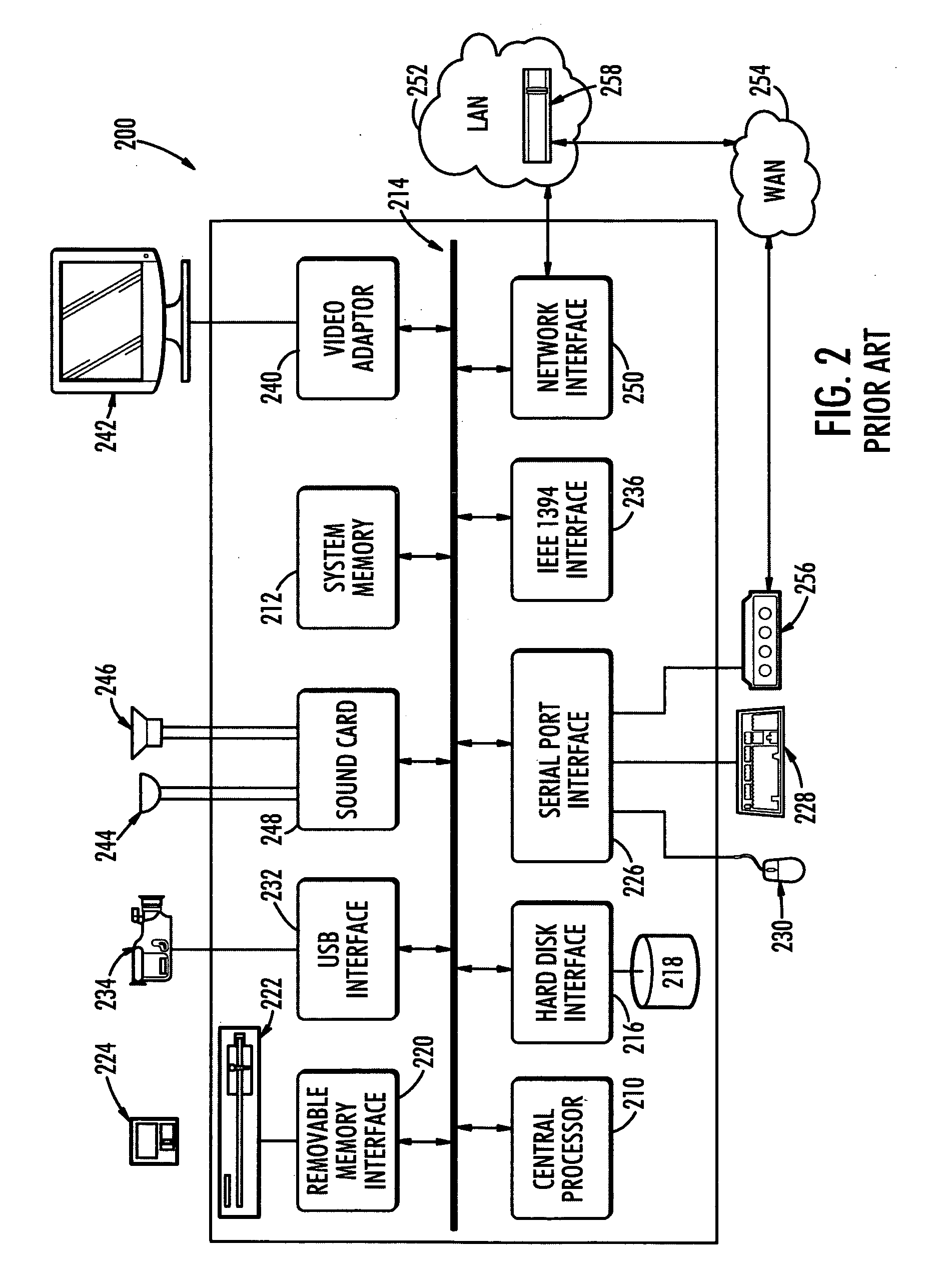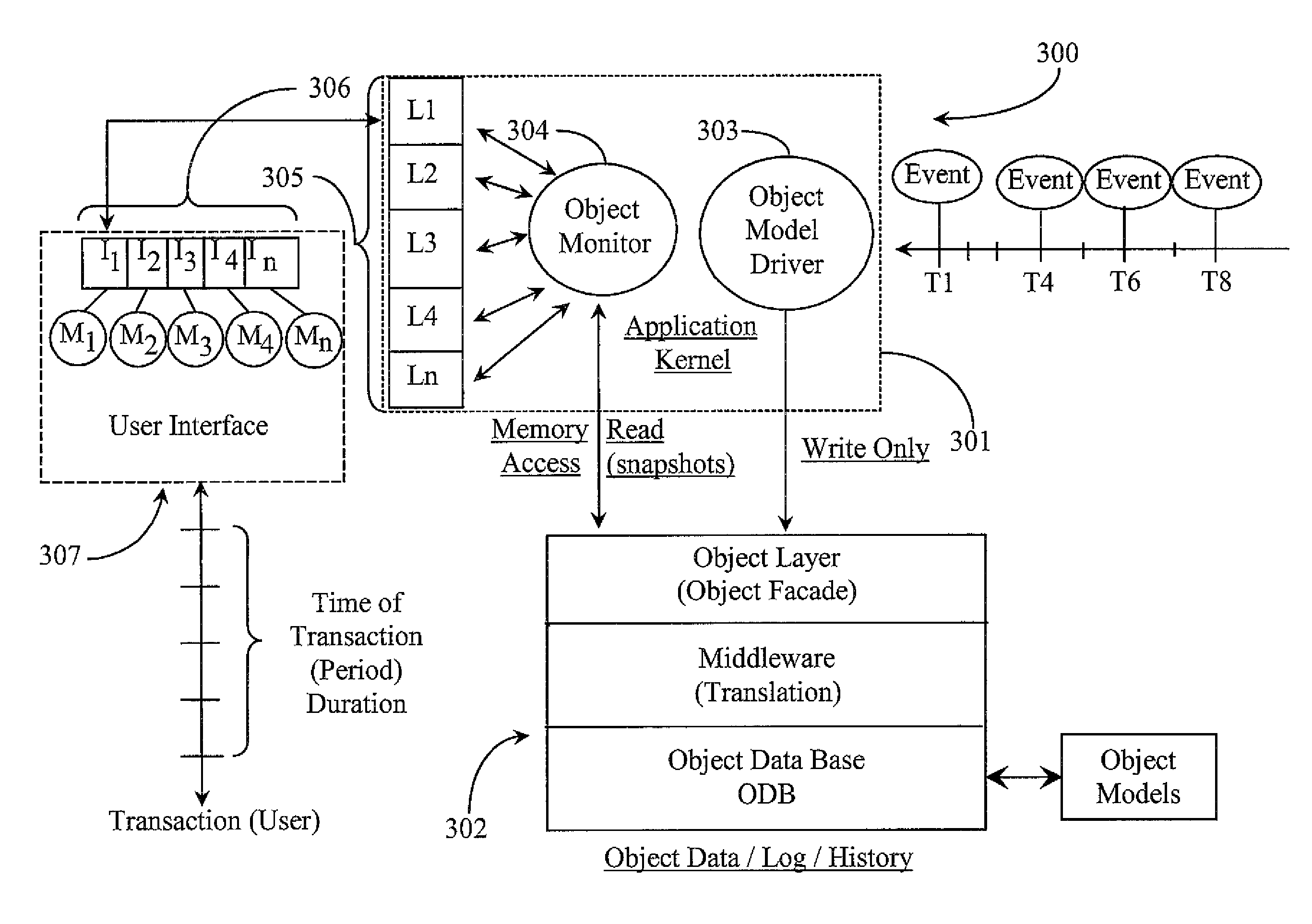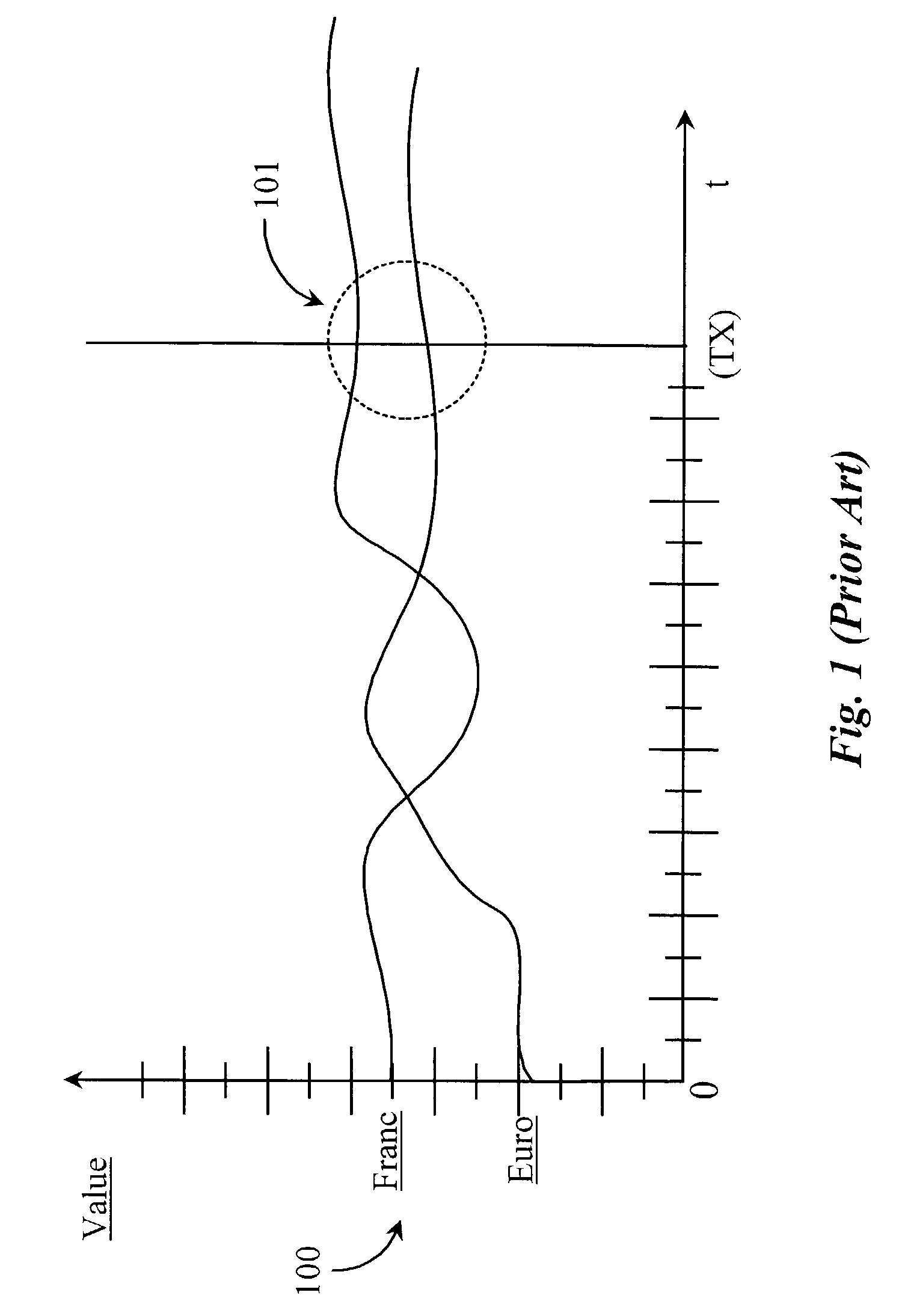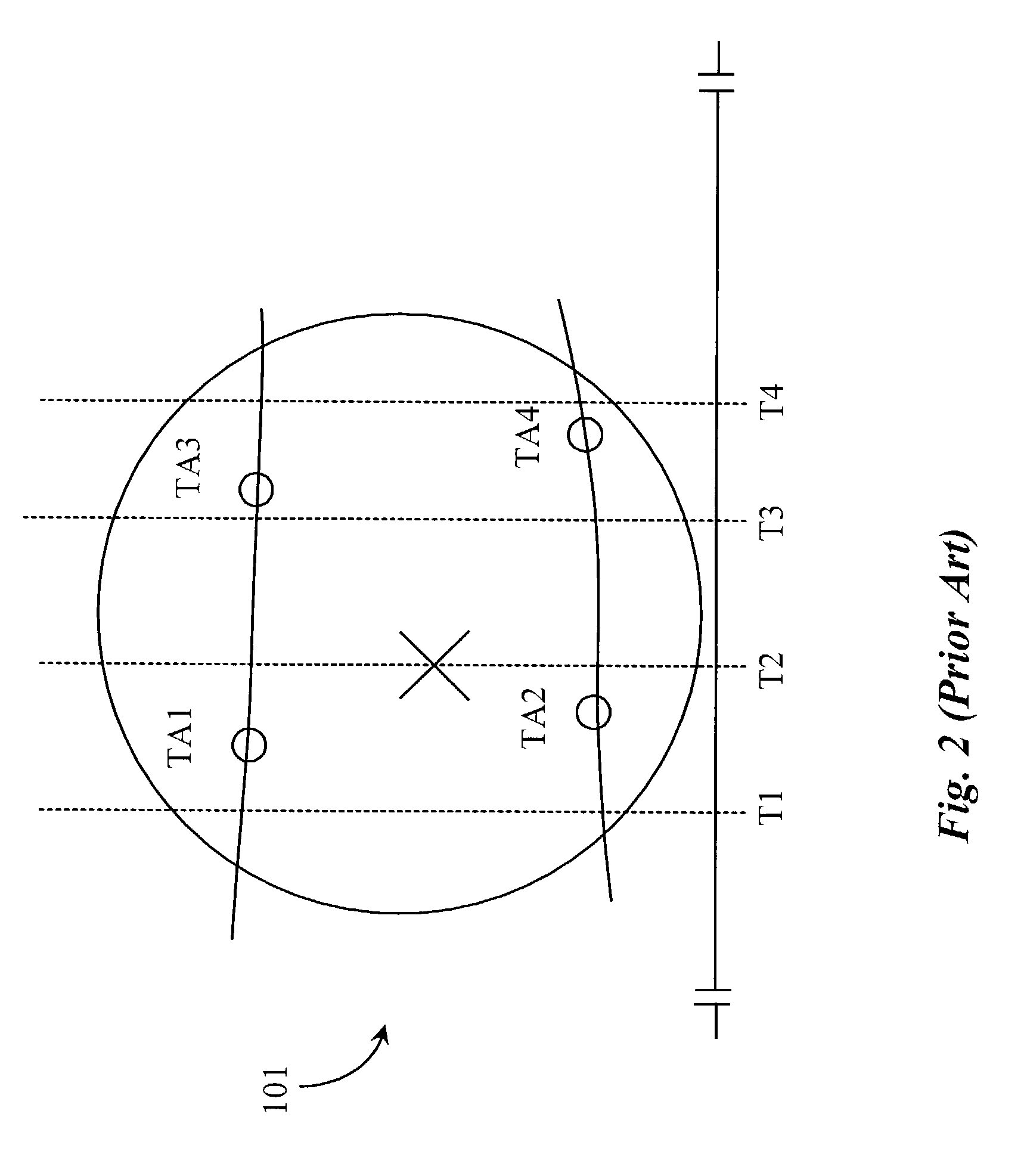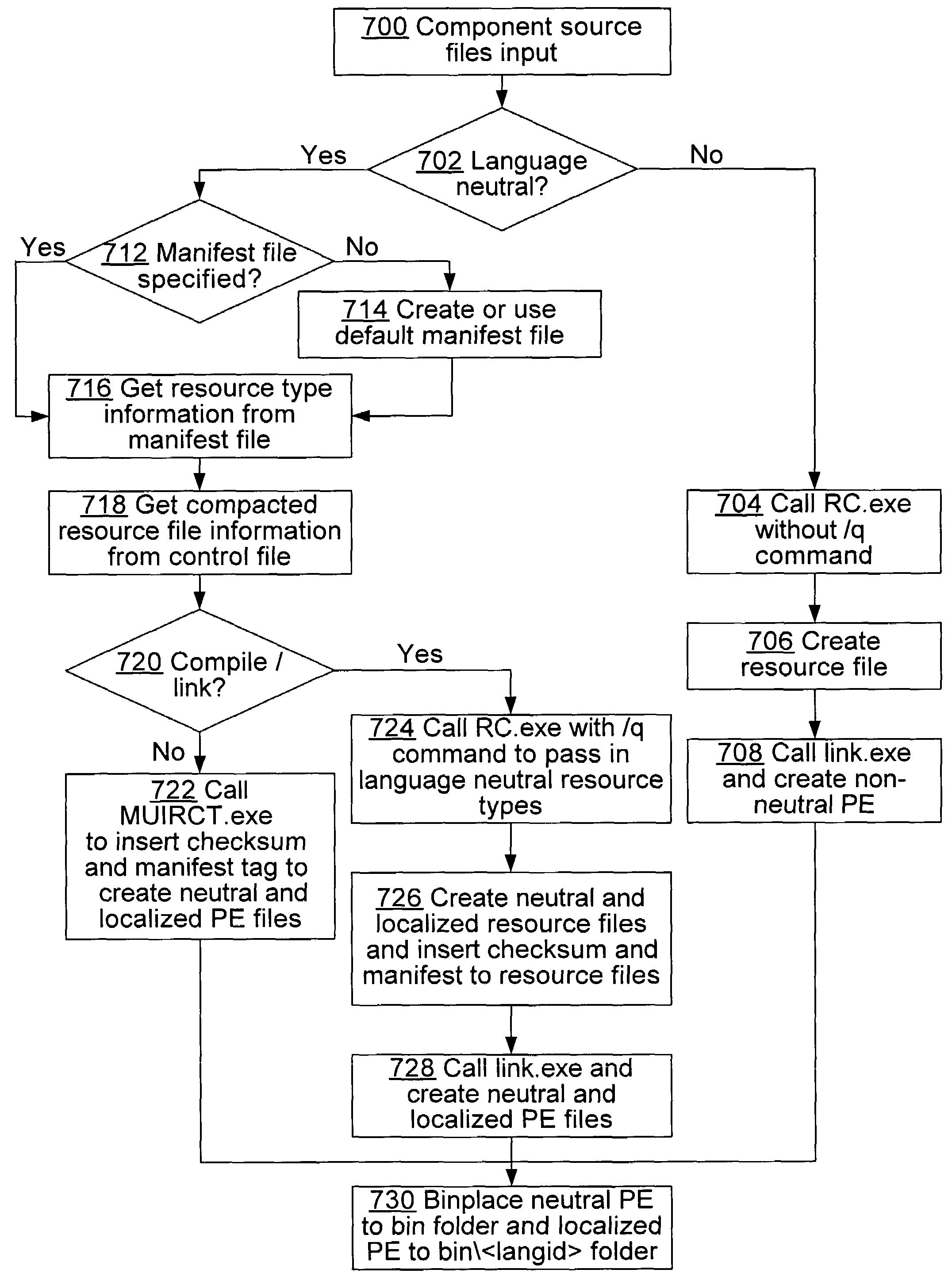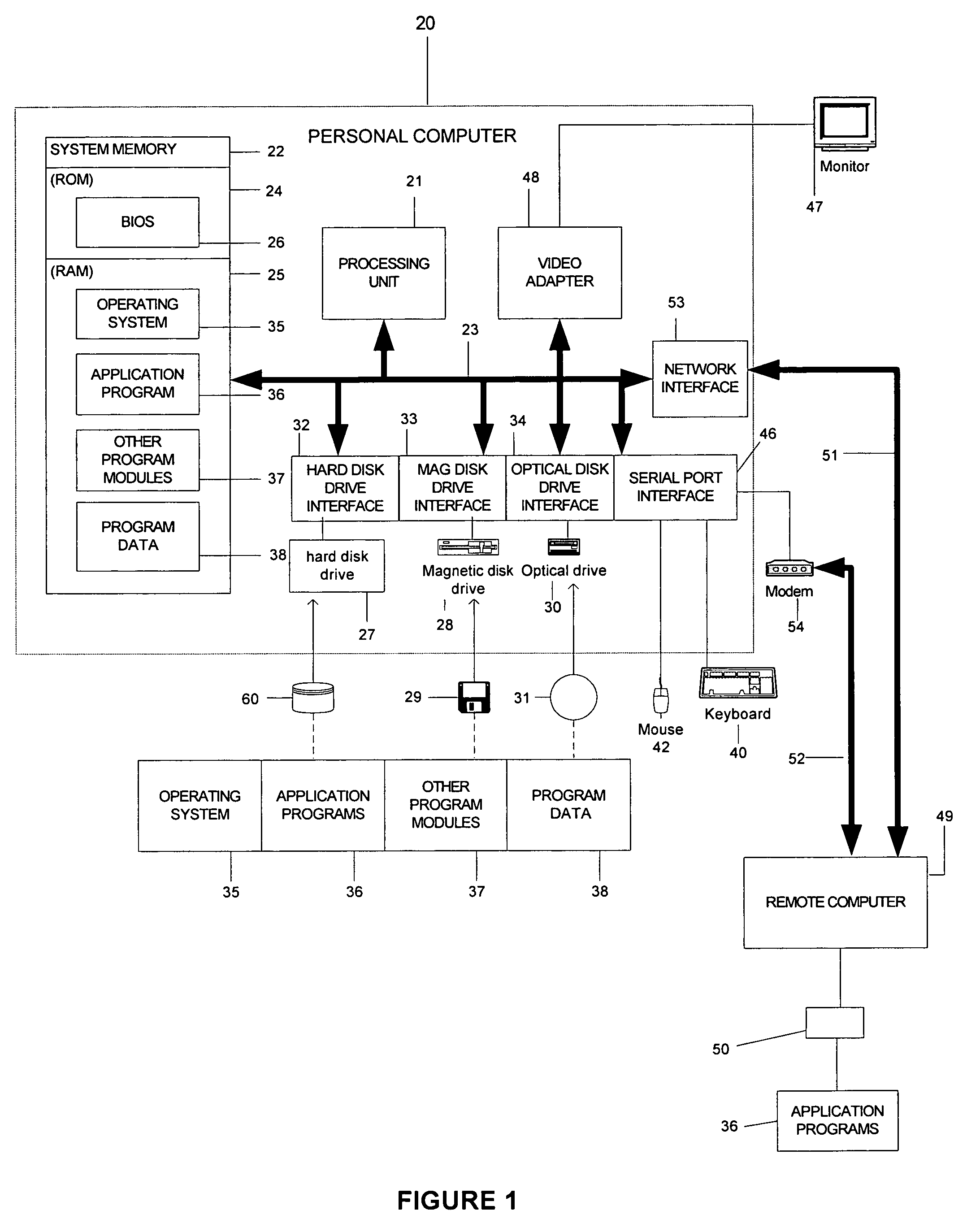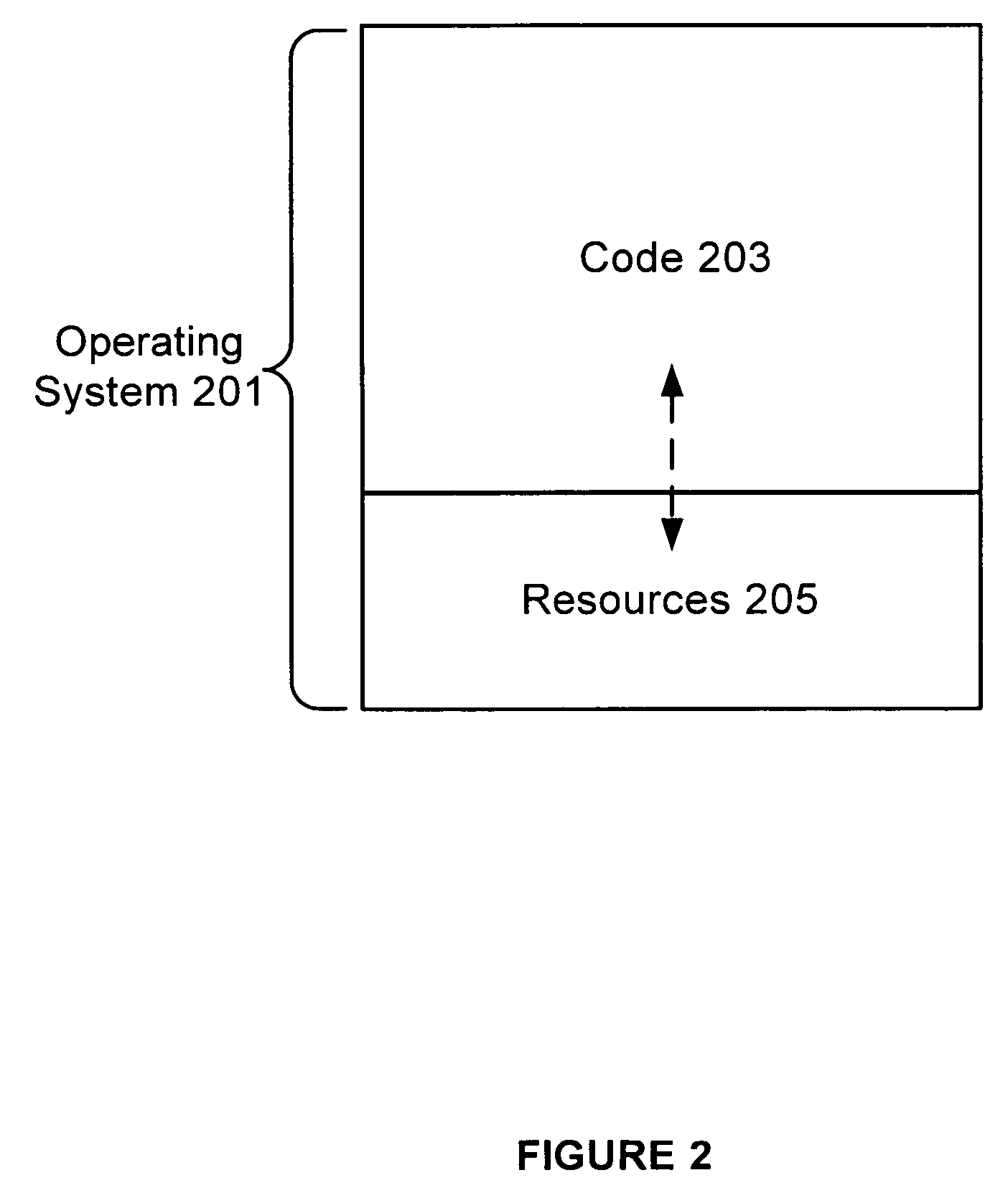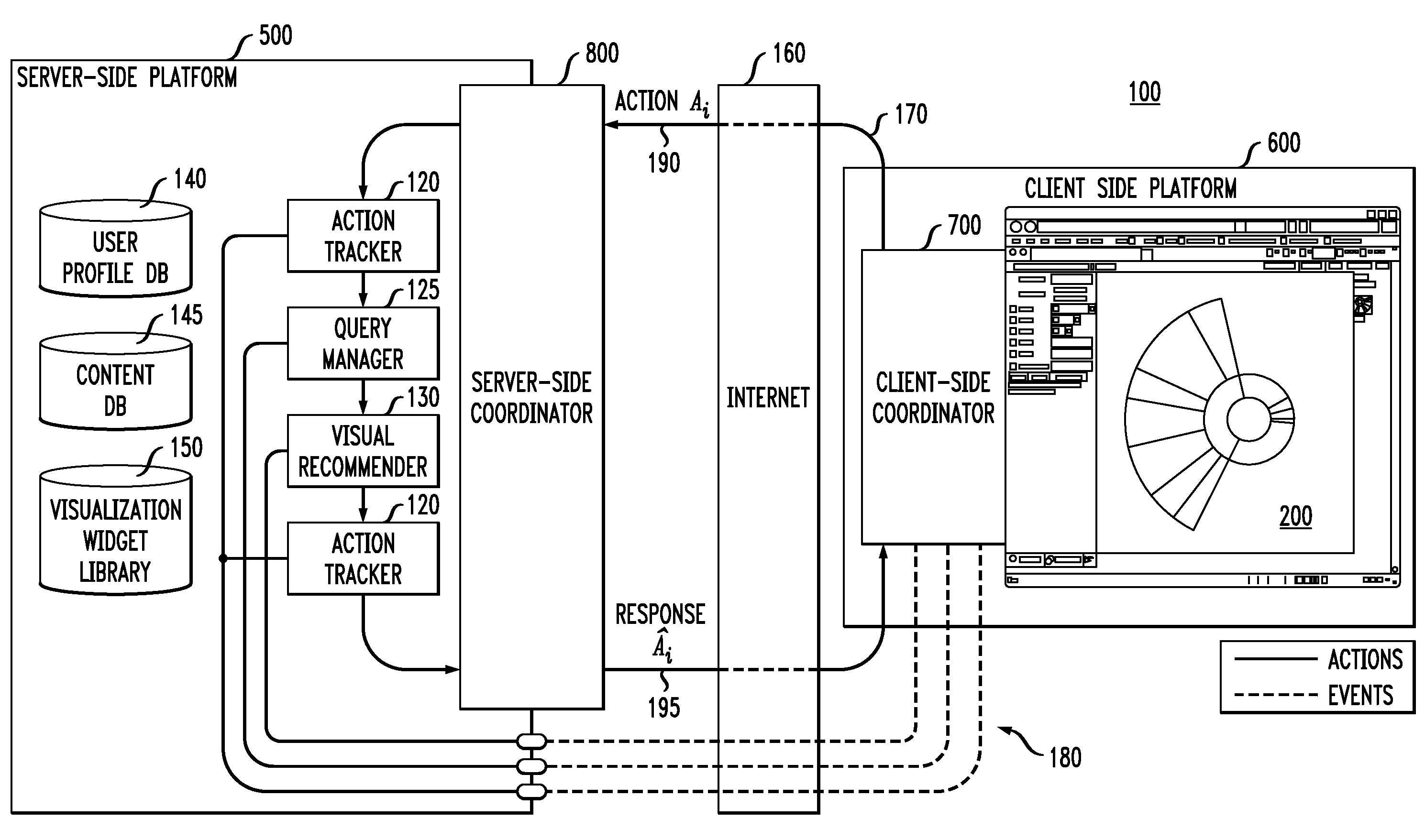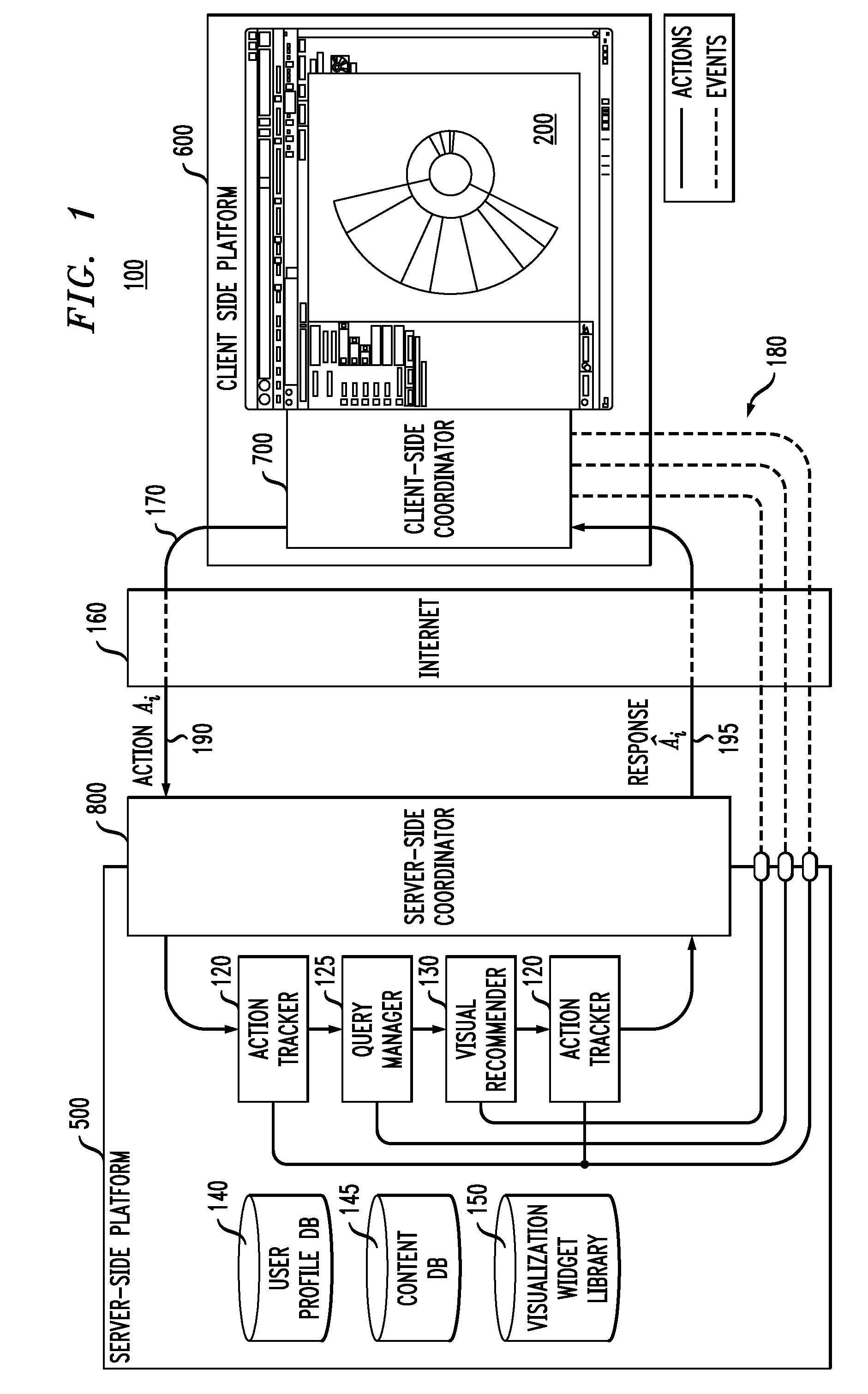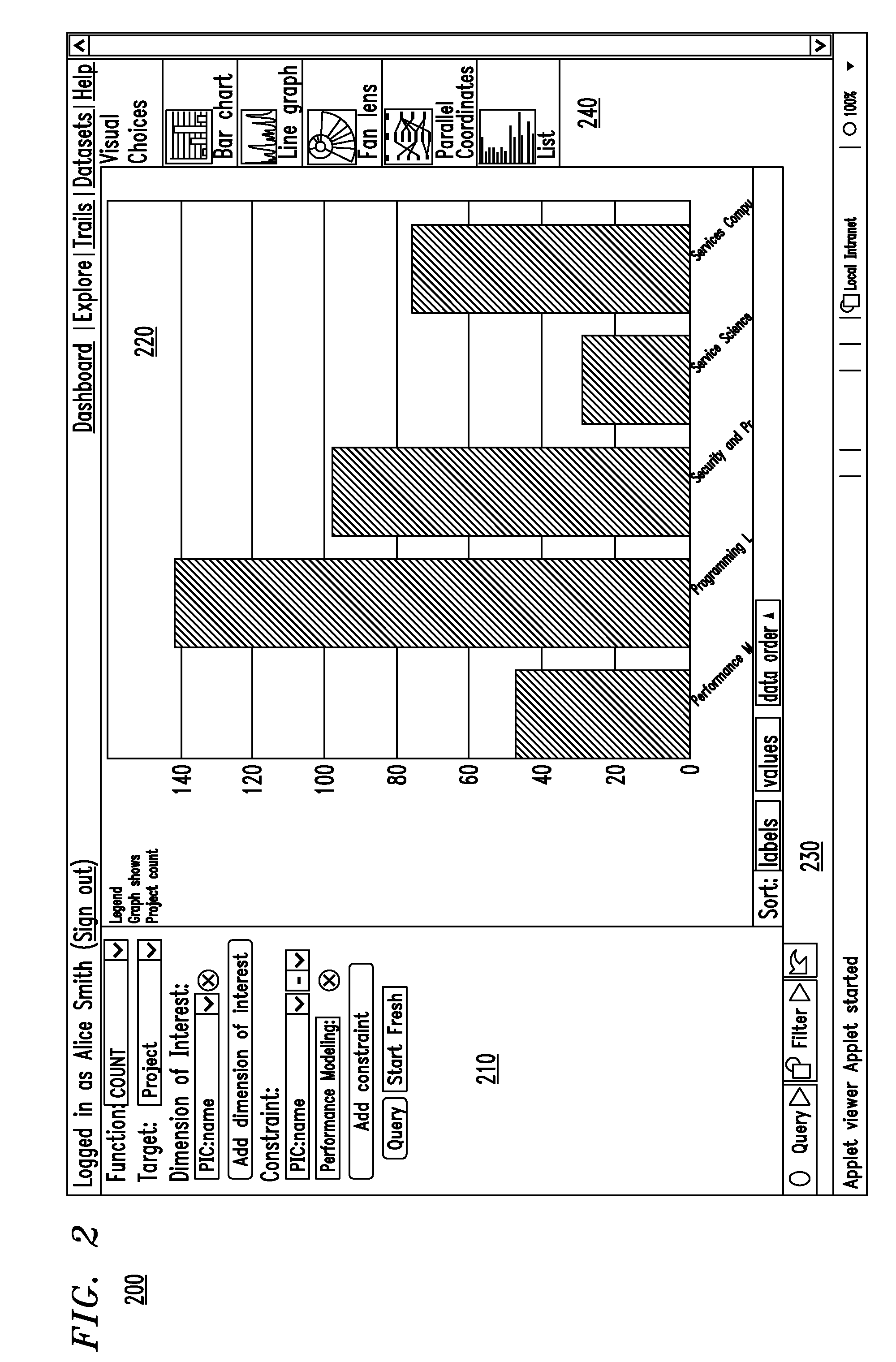Patents
Literature
195 results about "Applications architecture" patented technology
Efficacy Topic
Property
Owner
Technical Advancement
Application Domain
Technology Topic
Technology Field Word
Patent Country/Region
Patent Type
Patent Status
Application Year
Inventor
In information systems, applications architecture or application architecture is one of several architecture domains that form the pillars of an enterprise architecture (EA). An applications architecture describes the behavior of applications used in a business, focused on how they interact with each other and with users. It is focused on the data consumed and produced by applications rather than their internal structure. In application portfolio management, the applications are usually mapped to business functions and to application.
Dynamically distributed, portal-based application services network topology for cellular systems
InactiveUS20060111095A1Increase incomeEasily augment and/or customize the “look and feel”Network topologiesAutomatic exchangesHuman–machine interfaceData acquisition
Methods, apparatuses and systems directed to a portal-based, dynamically distributed application topology for cellular systems. The portal-based application topology, in one implementation, is an application architecture featuring strategic dynamic distribution of the man-machine interface (such as data acquisition and information presentation) and the backend processing aspects, of a particular application. In one implementation, all terminal interfacing aspects (such as data acquisition, data presentation) are formatted and handled by systems associated with a cellular system operator, as described below, while background processing is performed by a processing facility remote to the cellular system operator. In one implementation, the distributed application topology allows a mobile station, such as a cellular telephone, to simply act as a thin-client accessing an application server via a cellular systems operator's web portal for page-based interface screens.
Owner:GLENN PATENT GROUP
Meta-application architecture for integrating photo-service websites for browser-enabled devices
ActiveUS7197531B2Function increaseOvercome limitationsMultiple digital computer combinationsSpecial data processing applicationsWeb applicationApplication software
A method and system for integrating web photo-services for a browser-enabled device is disclosed. The method and system include providing a server that communicates with the device over a network, and associating images stored on at least one photo-service site with a user account. Thereafter, an inventory of images stored on the device is received from the device, and an image-related web application is provided to the device over the network, where the web application requires access to the user's images. The method and system further include providing a list of the images associated with a user's account to the web application, wherein the list of images includes an image reference for each image and an indication of whether each image is stored on the device or on the photo-service site, such that the web application may perform at least one function on the user's images regardless of where the images are stored.
Owner:IPAC SUB
Secure and Authenticated Transactions with Mobile Devices
Embodiments of the invention include a platform for using 2D barcodes to establish secure authenticated communication between two computing devices that are in proximity to each other. A two-tier application architecture using a single base app and dynamic add-on applets is used. 2D barcodes can be distinctively visually branded. According to other aspects, the security of mobile payment systems are enhanced by (1) a triangular payment settlement in which the sender and receiver of payment each submit transaction information independently to the same payment server; (2) sensitive information is split into two parts, one of which is stored on a mobile device, and the other of which is stored on a payment server, and the two parts are only combined and exist transiently in the payment server's volatile memory when executing a transaction; and (3) a process to securely update profile pictures associated with payment accounts.
Owner:NETABPECTRUM
Method and apparatus for generating transactions and a dialog flow manager
InactiveUS6115711AImprove productivityReduce needData processing applicationsProgram control using stored programsApplication procedureTheoretical computer science
A method for generating distributed application architecture transactions includes providing menus to obtain names and relationships of variables for desired transaction and input data form from an application developer. The input data is stored At least one transaction definition table, information interchange panel and application procedure in binary form is constructed based on the input data. The binary form is link-edited into an executable transaction.
Owner:COMP ASSOC THINK INC
System and method providing multi-tier applications architecture
InactiveUS6996599B1Capability facilitatedImprove performanceMultiple digital computer combinationsProgram loading/initiatingApplication softwareClient-side
A network-based distributed application system is provided in accordance with the present invention for enabling services to be established locally on a client system. The system may include an application and presentation logic, at least a portion of which is interchangeably processed by a server or a client without modification to the portion. The core functionality provided by the application may be preserved between the client and the server wherein improved network performance may provided along with improved offline service capabilities.
Owner:MICROSOFT TECH LICENSING LLC
Portable and dynamic distributed transaction management method
InactiveUS6115710AImprove productivityReduce needData processing applicationsProgram control using stored programsComputer resourcesGoal system
A system and method is shown for enabling a plurality of computers and associated computer resources, some or all of which may be of heterogeneous configuration, to cooperatively process various applications such that the execution is transparent to the user regardless of where the application is actually executing. This distributed applications architecture performs an information distribution service between multiple transaction processing systems by working with a transaction processor via communication channels to other hosts within the network and a dialog manager which uses a transaction processor interface to communicate with the transaction processor. The architecture employs a map service which provides an editor to create the maps for the application panels, a compiler to generate the maps into a linkable form, and a linkable interpreter which translates the linkable form into the screen presentation format for that platform. To distribute an application, the source code for the procedures, view and panels are moved as a block to the new system. This is possible because once the application source code is complete, all application logic, user interface control tables, view definitions, and other application-specific tables for one transaction definition are packaged by the present invention in a single load module on the system where the application will reside. The load module is then compiled using the target system's compiler, link editor, and bind process. Thus, all environment-dependent variations of import / export are automatically integrated with the application at load module bind time, requiring no source code changes.
Owner:COMP ASSOC THINK INC
Patient Video and Audio Monitoring System
InactiveUS20070271122A1Data processing applicationsDiagnostic recording/measuringMedical recordPan tilt zoom
A user interface and software system and architecture enables linking medical record information and patient location to a camera associated with that location when a particular patient is selected by a clinician using a health information system. The image of the patient as recorded by an in-room camera is displayed within a picture-in-picture display on a large plasma screen located at a command station, for example. The image may be controlled by a remote camera controller employing a Web-based user interface that allows a user to implement a pan-tilt-zoom (PTZ) camera controller via mouse control, for example. Information relating to patient location is used to remotely control, via Web-based application, the selection of the appropriate camera and the type of display in which to show the image. The user interface associated with this architecture provides an efficient and intuitive means of selecting specific images and specific display styles. The system operates in a parent-child relationship in which information associated with a parent application (HIS, for instance) is passed to the application architecture, thereby providing a direct, error-free and positive link to the application.
Owner:SIEMENS MEDICAL SOLUTIONS USA INC
System and method providing virtual applications architecture
InactiveUS6961681B1Flexibly and easily define/identifyEase administrative burdenResource allocationDigital computer detailsApplication softwareDistributed computing
A virtual applications architecture is provided according to the present invention. The architecture includes a topology manager for managing applications across a plurality of members, and a virtual applications manager for defining a plurality of resources comprising the applications. The topology manager communicates with the plurality of members to initiate scaling of the applications associated with the virtual applications manager to the members. The architecture may also include a replication system for deploying the applications to the members.
Owner:MICROSOFT TECH LICENSING LLC
Micro service servitization application system
ActiveCN107193546AImplement microservice designClear structureSoftware designTransmissionService product managementComputer terminal
The present invention discloses a micro service servitization application system. The system is constructed by using a micro service architecture and carries out unified configuration and management on micro-applications and micro services according to a unified application architecture. The system comprises: an infrastructure unit, for providing soft hardware resources and realizing virtual management of the network; a service unit, for realizing atomic services and carrying out classification management, carrying out service realization and service management by using the technology provided in an integrated platform, and providing unified service access support for the realization of the micro-applications; and an application unit, for carrying out groupware encapsulation of interactive interfaces on the applications and services, and realizing the micro-applications capable of directing operating according to actual needs, carrying out pool management on the micro-applications, clustering to form the application, and providing a unified access entry for various types of terminals. According to the system disclosed by the present invention, problems existing in the transformation of existing large-scale traditional enterprise information can be overcome, micro-service design of the information system is realized, and stability and reliability of the system are improved.
Owner:STATE GRID TIANJIN ELECTRIC POWER
Dynamically distributed, portal-based application services network topology for cellular systems
InactiveUS20050070262A1Increase incomeEasily augment and/or customize the “look and feel”Network topologiesSpecial service for subscribersHuman–machine interfaceData acquisition
Methods, apparatuses and systems directed to a portal-based, dynamically distributed application topology for cellular systems. The portal-based application topology, in one implementation, is an application architecture featuring strategic dynamic distribution of the man-machine interface (such as data acquisition and information presentation) and the backend processing aspects, of a particular application. In one implementation, all terminal interfacing aspects (such as data acquisition, data presentation) are formatted and handled by systems associated with a cellular system operator, as described below, while background processing is performed by a processing facility remote to the cellular system operator. In one implementation, the distributed application topology allows a mobile station, such as a cellular telephone, to simply act as a thin-client accessing an application server via a cellular systems operator's web portal for page-based interface screens.
Owner:EXPHAND
Location-based promotion of applications
InactiveUS20130045729A1Well formedService provisioningAutomatic exchangesPosition dependentLocation based information
Architecture that integrates location-based information and application-driven devices (e.g., cell phones). Users can now be provided the most relevant application and / or application data based on the user location. Thus, users are assisted in finding the relevant application(s) to accomplish a task based on their current location. More specifically, given a location (e.g., business) registered to a service, the user's client application is automatically updated to comprise the data relevant to that location. Alternatively, or in combination therewith, the service can suggest installing a new application relevant to the location.
Owner:MICROSOFT TECH LICENSING LLC
Resource manifest
InactiveUS20050108433A1Maintain integrityIncreased efficiency in file management serviceMultiple digital computer combinationsExecution for user interfacesHuman languageSoftware
An improved application architecture comprises a bifurcated structure having a language neutral portion and a localizable portion, compacted for efficiency into a smaller set of larger files. This bifurcated structure allows for easier distribution and updating of the application, while the reduced set of files provides for more efficient file management. A resource manifest can be specified during the compile stage to identify elements that are language specific and elements that remain language neutral. Furthermore, additional software can be used after compilation for compacting multiple localizable elements into a single file. Such compacting software can receive inputs specifying the language specific resources which are to be compacted into larger files, and the identity of those larger files. In addition, a file format can be used that can contain multiple language specific resources and can facilitate retrieval and access of individual language specific resources by the relevant language independent code.
Owner:MICROSOFT TECH LICENSING LLC
Robotic hybrid system application frame based on multi-core processor architecture
InactiveCN105278940ARun independently of each otherDebug each other independentlySpecific program execution arrangementsFrame basedStructure of Management Information
The invention describes a robotic hybrid system application frame based on a multi-core processor architecture. In a robotic system which takes an ARM (Advanced RISC Machines) / X86 multi-core processor as a controller, a multi-core parallel processing structure of the ARM / X86 multi-core processor is used for operating the robotic hybrid system application architecture consisting of a real-time operating system, non-real-time operating systems and a system supporting frame on a whole robotic controller so as to provide improved operating system service, wherein the real-time operating system, non-real-time operating systems and the system supporting frame simultaneously operate. In the application frame, one real-time operating system independently operates in one ARM / X86 core, meanwhile, a plurality of non-real-time operating systems operate in other ARM / X86 cores, the operating systems mutually individually occupy processor resources and peripherals, robotic application programs with different real time requirements are independently operated, and the application programs can be used (drawing 1) in a uniform ROS (Robotic Operating System) application node form.
Owner:BEIHANG UNIV
Resource compaction
InactiveUS20050102253A1Maintain integrityIncreased efficiency in file management serviceData processing applicationsDigital data processing detailsHuman languageSoftware
An improved application architecture comprises a bifurcated structure having a language neutral portion and a localizable portion, compacted for efficiency into a smaller set of larger files. This bifurcated structure allows for easier distribution and updating of the application, while the reduced set of files provides for more efficient file management. A resource manifest can be specified during the compile stage to identify elements that are language specific and elements that remain language neutral. Furthermore, additional software can be used after compilation for compacting multiple localizable elements into a single file. Such compacting software can receive inputs specifying the language specific resources which are to be compacted into larger files, and the identity of those larger files. In addition, a file format can be used that can contain multiple language specific resources and can facilitate retrieval and access of individual language specific resources by the relevant language independent code.
Owner:MICROSOFT TECH LICENSING LLC
Method and Device for Rejecting Redundantly Retransmitted SIP Messages
InactiveUS20090092131A1Improve throughputQuality improvementNetwork connectionsSession Initiation ProtocolApplication server
A method for rejecting received SIP messages which are redundantly retransmitted used in a Session Initiation Protocol (SIP) application architecture. In one embodiment, the method comprises: forwarding all the messages transmitted from a SIP application server to a SIP terminal, and dropping all the received SIP messages redundantly retransmitted from the SIP terminal to the SIP application server according to the transmission direction of said SIP messages; and correspondingly replying to the dropped SIP messages according to the message type thereof. The present invention also provides a corresponding retransmission rejection device and a network device comprising the same, and further provides a method and device for rapidly rejecting redundantly retransmitted SIP messages in the case where the memory space is limited. The present invention can be applied to a network device such as a SIP stateless proxy at a front end of a SIP application server cluster.
Owner:IBM CORP
Performing security analysis on a software application
ActiveUS20120042384A1Not addressMemory loss protectionError detection/correctionSafety testingSecurity analysis
A system and method for performing security analysis on a software application. In one embodiment, a method includes receiving application architecture information for a software application; and determining an application type based on the application architecture information. The method also includes performing one or more security tests on the software application based on the application type and the application architecture information; and approving the software application to be available in an online marketplace if the software application passes the one or more security tests.
Owner:SALESFORCE COM INC
Dynamically distributed, portal-based application services network topology for cellular systems
InactiveUS7054637B2Increase incomeEasily augment and/or customize the “look and feel”Network topologiesTime-division multiplexHuman–machine interfaceData acquisition
Methods, apparatuses and systems directed to a portal-based, dynamically distributed application topology for cellular systems. The portal-based application topology, in one implementation, is an application architecture featuring strategic dynamic distribution of the man-machine interface (such as data acquisition and information presentation) and the backend processing aspects, of a particular application. In one implementation, all terminal interfacing aspects (such as data acquisition, data presentation) are formatted and handled by systems associated with a cellular system operator, as described below, while background processing is performed by a processing facility remote to the cellular system operator. In one implementation, the distributed application topology allows a mobile station, such as a cellular telephone, to simply act as a thin-client accessing an application server via a cellular systems operator's web portal for page-based interface screens.
Owner:EXPHAND
Omnimodal messaging system
InactiveUS7277951B2Multiple digital computer combinationsData switching networksComputer networkTransformer
A messaging server application system handles message creation, receipt, and response for any sort of digitizable message in any format. It typically operates as a core application and application infrastructure in a communications network or networks in the multiple sender, receiver and user modes of the same or varying design and operational characteristics. The system uses an application architecture organized using a set of ten loosely-coupled subsystems falling into three general functional groups: interface / connector subsystems, core subsystems, and storage subsystems. The interface / connector subsystems include Voice, Data and Multimedia Gateways as well as Message Connectors and aMultimodal Authenticator. The core subsystems include a Multimedia Messaging Bus, an independent Metadata Messaging Bus, and a Content Transformer. The Storage Subsystem can include various Storage Subsystems. The core subsystems extract message metadata and combine this metadata with information about the delivery and routing of the message to form a “Metamessage”.
Owner:KREIMAN BORIS
Application framework for use with net-centric application program architectures
InactiveUS20060064574A1Speed up the processFacilitate modification and maintenanceProgram initiation/switchingDigital computer detailsTechnical standardApplication software
A robust toolkit provides facilities that can be assembled in a modular manner to specify the fundamental architecture of a net-centric application. A bootstrapping process assembles various facilities within the architecture. A configuration facility defines an API for getting properties that can be defined in any number of different types of sources. A factory de-couples how a resource is produced from where the resource is used. A selector framework applies standard query language to contexts other than querying a database. A pipeline architecture defines a model view controller-like framework for a processing pipeline. Selectors are used to specify when certain portions of a Web conversation should be made available to a user. An authorization facility associates permissions with a user to specify which portions of an application a user is authorized to use.
Owner:ACCENTURE GLOBAL SERVICES LTD
Systems and methods for monitoring a computing environment
InactiveUS20050193376A1Effective monitoringHardware monitoringSpecific program execution arrangementsGraphicsData stream
Owner:DELL PROD LP
Supervisory process control and manufacturing information system application having a layered architecture
InactiveUS7650607B2Program initiation/switchingComputer controlSoftware engineeringApplication software
A supervisory process control and manufacturing information system application is disclosed. The components of the application are distributable to a plurality of networked computer devices in a multi-layered hierarchical manner wherein lower layers host higher installed layers of application components. Application objects reside at a relatively high level of the distributed application architecture and model entities within a process control system. Engine objects host execution of the application objects in a run-time environment. Thus, application objects are not deployed until a host engine object with which they are associated have been deployed. Engine objects are hosted by platform objects. The platform objects correspond to a physical computer system component for executing the engine objects and associated application objects. A configuration facility presents a variety of views including deployment and model views of the application. The views incorporate the relationships of the objects that make up the distributed application.
Owner:SCHNEIDER ELECTRIC SOFTWARE LLC
E2 automobile dealership information management system
The present invention provides for the first time, an integrated software application architecture with all functions required by an automobile dealership, including sales, F&I (finance and insurance), accounting, HR (Human Resources) / payroll, parts, service, and E2 core (including functions in customer management, vehicle management, activity / processors, roles, user / departments, security, user interface, reports, printing, and instant messaging), together with e-business enablers, supply chain integration, and a dealer communication system. The present invention also provides relational databases, GUI's (graphical user interfaces, that is, browser based application program interfaces). The present invention also may be implemented by an operations center with a Microsoft Windows NT server providing local Ethernet or other electronic connections to several multiple remote stores for the operator, and is scalable.
Owner:DEUT BANK AG NEW YORK BRANCH
Social music system and method with continuous, real-time pitch correction of vocal performance and dry vocal capture for subsequent re-rendering based on selectively applicable vocal effect(s) schedule(s)
ActiveUS20140039883A1Compelling user experienceFacilitates musical collaborationElectrophonic musical instrumentsSpeech analysisEngineeringSocial network
Vocal musical performances may be captured and, in some cases or embodiments, pitch-corrected and / or processed in accord with a user selectable vocal effects schedule for mixing and rendering with backing tracks in ways that create compelling user experiences. In some cases, the vocal performances of individual users are captured on mobile devices in the context of a karaoke-style presentation of lyrics in correspondence with audible renderings of a backing track. Such performances can be pitch-corrected in real-time at the mobile device in accord with pitch correction settings. Vocal effects schedules may also be selectively applied to such performances. In these ways, even amateur user / performers with imperfect pitch are encouraged to take a shot at “stardom” and / or take part in a game play, social network or vocal achievement application architecture that facilitates musical collaboration on a global scale and / or, in some cases or embodiments, to initiate revenue generating in-application transactions.
Owner:SMULE
System structure of power generation group-level hydro-power generating unit distributed state monitoring and diagnosis platform construction
ActiveCN105278504AImprove real-time performanceRelieve pressureTotal factory controlProgramme total factory controlThree levelData center
The invention relates to a system structure of power generation group-level hydro-power generating unit distributed state monitoring and diagnosis platform construction. The system structure includes an overall technical architecture, a business architecture, an information / data architecture, an application architecture, a technical architecture, infrastructure and the like. According to a platform, based on unified codes, three levels of data centers are established to realize distributed data acquisition, storage and application; data are divided, pushed and extracted according to data characteristics and application requirements, so that network communication pressure and data maintenance quantity can be can effectively reduced, and therefore, the real-time performance of the data can be enhanced; application modules of the platform provide an application market which can provide application services for 9 levels of user roles according to needs; and mutual communication and sharing of information such as monitoring data, control dispatching, diagnosis results and policy-making instructions between a monitoring and control system, a regional centralized control analysis and diagnosis system and a group monitoring and diagnosis system of a station can be realized, and solutions can be provided for the power generation group-level hydro-power generating unit distributed state monitoring and diagnosis platform construction.
Owner:HUADIAN ELECTRIC POWER SCI INST CO LTD
Real-time monitoring device for operation and maintenance of electric power customer service system
InactiveCN102523140AComprehensive monitoring objectIntuitive form of monitoringData switching networksElectric powerSoftware
The invention discloses a real-time monitoring device for the operation and maintenance of an electric power customer service system. The device comprises an acquisition module, a processing module and a display module, wherein the acquisition module is connected with the display module through the processing module, acquires monitoring data in real time according to configured monitoring indexes and configured monitoring strategies such as a configured monitoring time interval, a monitoring result warehousing time interval and the like, and regularly transmits monitoring results to the processing module; the processing module compares the received monitoring results with preset index values for analysis, performs health status calculation, and transmits the monitoring data to the display module; and the display module generates alarming information according to the monitoring data provided by the processing module and a defined alarming strategy, and transmits the alarming information. The unified planning of the application architecture, data deployment, software and hardware planning, application integration, security and the like of the customer service system is realized, and objects are comprehensively monitored in a direct and simple monitoring way; and the monitoring data can be held out.
Owner:JIANGSU ELECTRIC POWER INFORMATION TECH +1
Enterprise-class information system
ActiveCN107203376AClear structureClear functionVersion controlResourcesInformatizationVirtualization
The invention discloses an enterprise-class information system. The enterprise-class information system is established through micro-service architecture, and micro applications and micro services are uniformly configurated and managed through uniform application architecture. The enterprise-class information system comprises an infrastructure unit, a service unit and an application unit, wherein the infrastructure unit is used for providing software and hardware resources and achieving virtualization management of a network; the service unit is used for achieving atom services and conducting classification management, conducting service achievement and service management with the technology provided in an integrated platform and providing an uniform service access support for achievement of the micro applications; the application unit is used for conducting modularization packaging of interactive interfaces of the applications and the services, achieving directly-operable micro applications according to actual demands, conducting pooling management for micro applications, forming the applications in a clustering mode and providing an uniform access entrance for all kinds of terminals. By means of the enterprise-class information system, problems appearing in information transformation of existing large traditional enterprises can be solved, micro-service design of the information system is achieved, and the stability and the reliability of the system are improved.
Owner:STATE GRID TIANJIN ELECTRIC POWER
Pipeline architecture for use with net-centric application program architectures
ActiveUS20060064573A1Speed up the processFacilitate modification and maintenanceProgram initiation/switchingDigital computer detailsTechnical standardModularity
A robust toolkit provides facilities that can be assembled in a modular manner to specify the fundamental architecture of a net-centric application. A bootstrapping process assembles various facilities within the architecture. A configuration facility defines an API for getting properties that can be defined in any number of different types of sources. A factory de-couples how a resource is produced from where the resource is used. A selector framework applies standard query language to contexts other than querying a database. A pipeline architecture defines a model view controller-like framework for a processing pipeline. Selectors are used to specify when certain portions of a Web conversation should be made available to a user. An authorization facility associates permissions with a user to specify which portions of an application a user is authorized to use.
Owner:ACCENTURE GLOBAL SERVICES LTD
Method for improving temporal consistency and snapshot recency in a monitored real-time software-reporting-application architecture
ActiveUS7434229B2Great customizationFinanceMultiprogramming arrangementsTemporal consistencyDatabase application
An object-oriented software application is provided for receiving updates that change state of an object model and reporting those updates to requesting users. The application includes a database application for storing data; an object model driver for writing updates into the database; a notification system for notifying about the updates; and, a plurality of external monitors for reading the updates. In a preferred embodiment the object model produces multiple temporal snapshots of itself in co-currency with received events, each snapshot containing associated update information from an associated event and whereupon at the time of occurrence of each snapshot coinciding with an event the notification system notifies the appropriate external monitor or monitors, which in turn access the appropriate snapshot, performs calculations thereupon if required and renders the information accessible to the users.
Owner:GENESYS TELECOMMUNICATIONS LABORATORIES INC
Resource manifest
InactiveUS7516442B2Maintain integrityError detection/correctionExecution for user interfacesApplication softwareHuman language
An improved application architecture comprises a bifurcated structure having a language neutral portion and a localizable portion, compacted for efficiency into a smaller set of larger files. This bifurcated structure allows for easier distribution and updating of the application, while the reduced set of files provides for more efficient file management. A resource manifest can be specified during the compile stage to identify elements that are language specific and elements that remain language neutral. Furthermore, additional software can be used after compilation for compacting multiple localizable elements into a single file. Such compacting software can receive inputs specifying the language specific resources which are to be compacted into larger files, and the identity of those larger files. In addition, a file format can be used that can contain multiple language specific resources and can facilitate retrieval and access of individual language specific resources by the relevant language independent code.
Owner:MICROSOFT TECH LICENSING LLC
Methods and apparatus for intelligent exploratory visualization and analysis
Methods and apparatus are provided for intelligent exploratory visualization and analysis. A semantics-based client-server application architecture is provided that enables interactive visualization and analysis applications over the web. From the client perspective, user activities are observed and the client determines if a sequence of user activities comprises one or more predefined semantics-based user actions. Semantics-based action descriptor are then sent to the server, optionally with any related parameters, and a response is then received from the server. From the server perspective, one or more semantics-based action descriptors are received from the client with an action type selected from a predefined set of types, wherein the semantics-based action descriptors are based on a sequence of activities of a user. The server processes the semantics-based action descriptors and sends a response to the client in response to the one or more semantics-based action descriptors.
Owner:IBM CORP
Features
- R&D
- Intellectual Property
- Life Sciences
- Materials
- Tech Scout
Why Patsnap Eureka
- Unparalleled Data Quality
- Higher Quality Content
- 60% Fewer Hallucinations
Social media
Patsnap Eureka Blog
Learn More Browse by: Latest US Patents, China's latest patents, Technical Efficacy Thesaurus, Application Domain, Technology Topic, Popular Technical Reports.
© 2025 PatSnap. All rights reserved.Legal|Privacy policy|Modern Slavery Act Transparency Statement|Sitemap|About US| Contact US: help@patsnap.com
